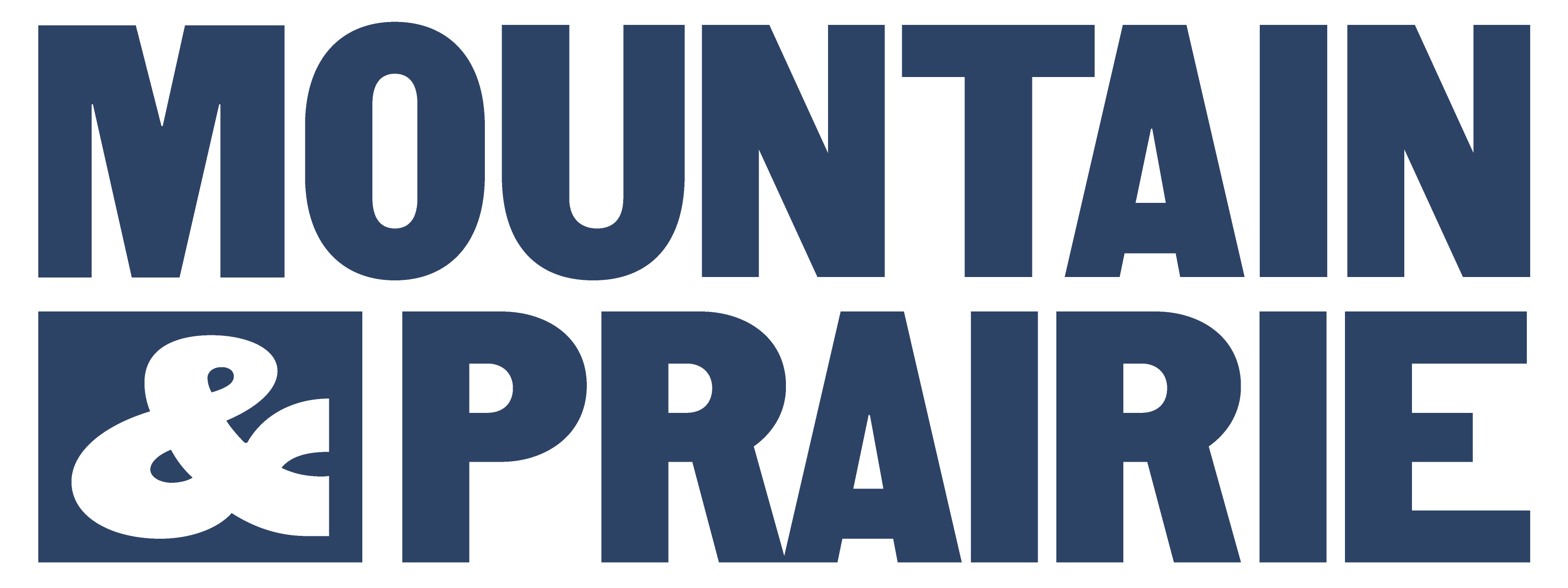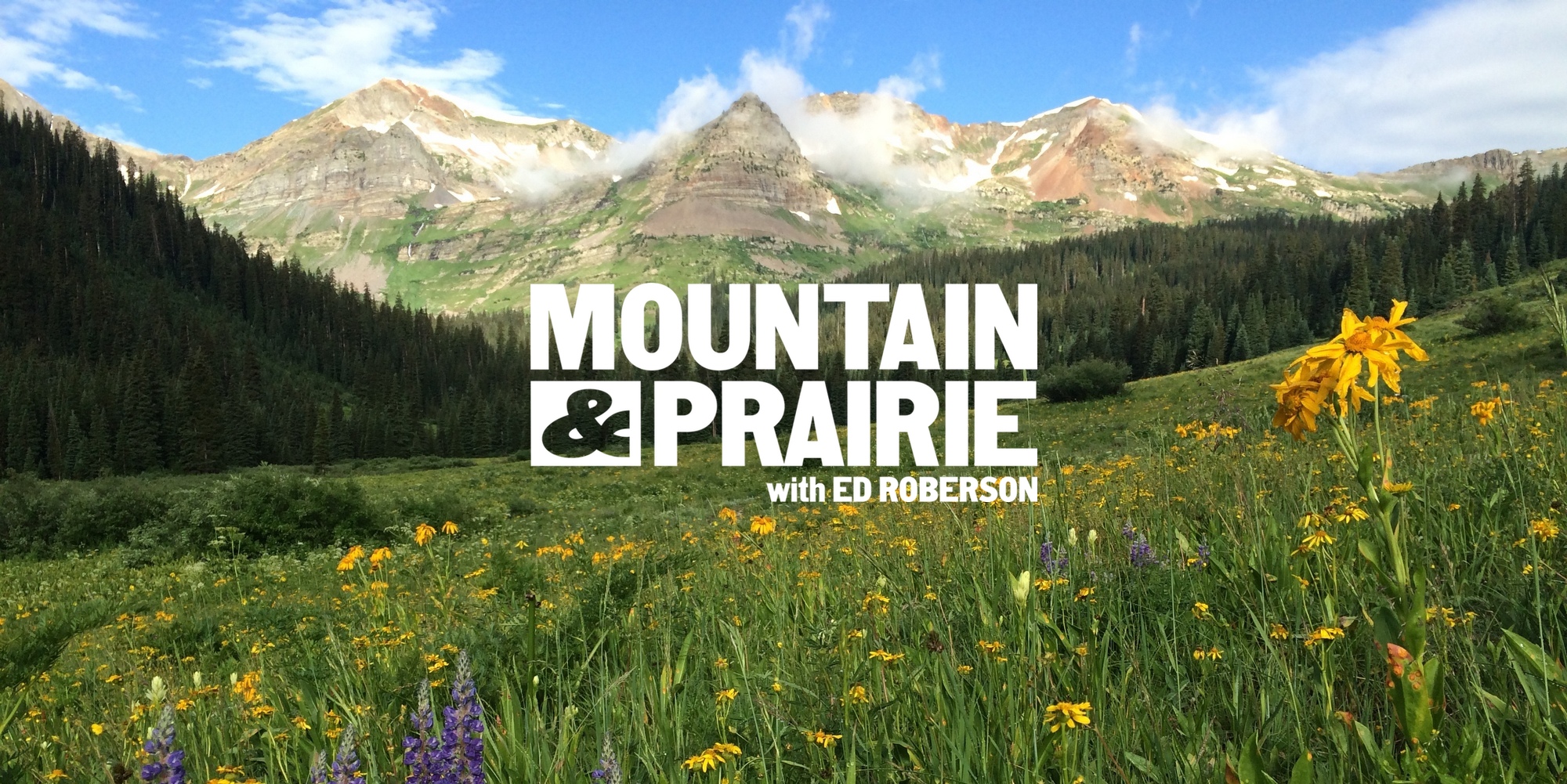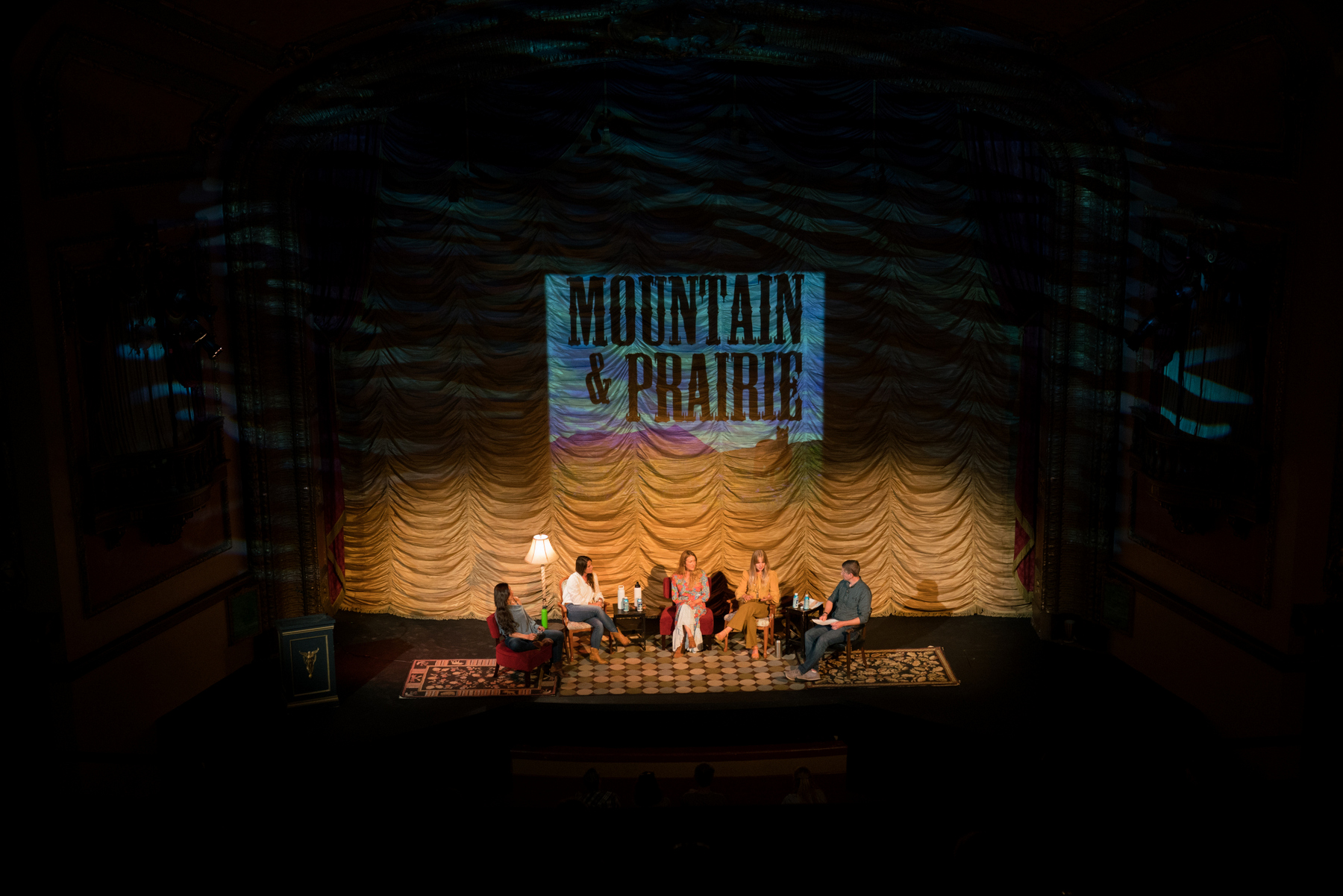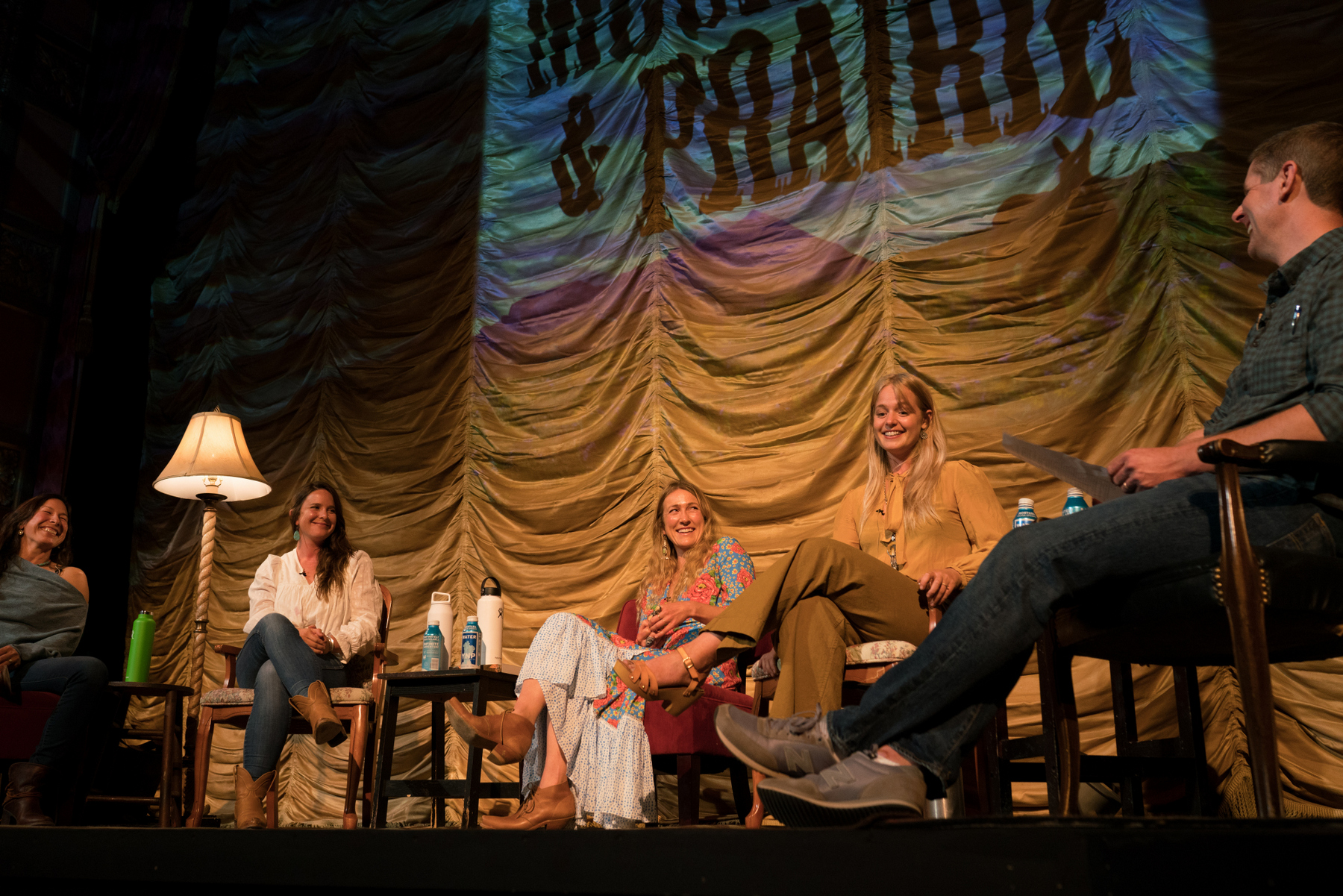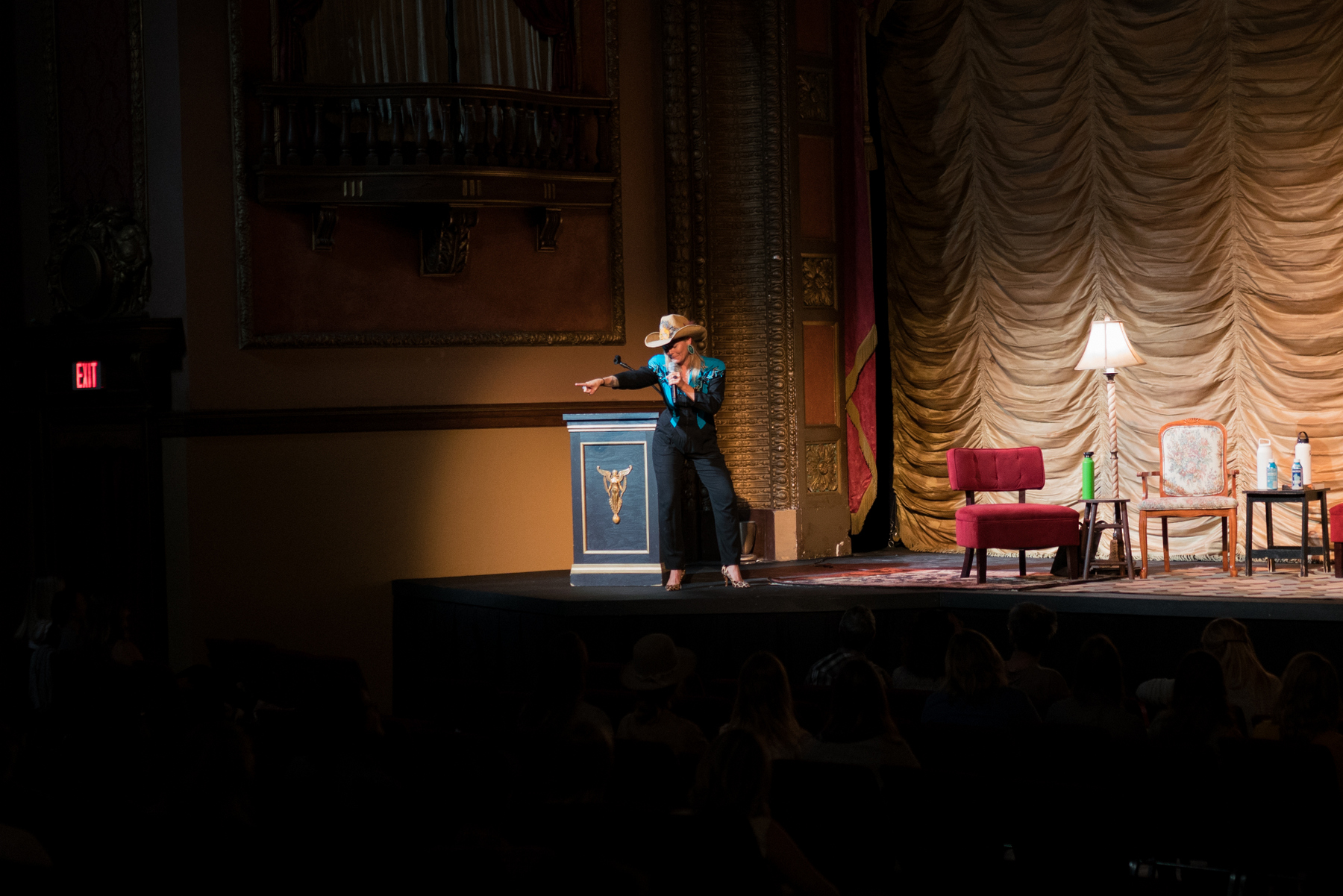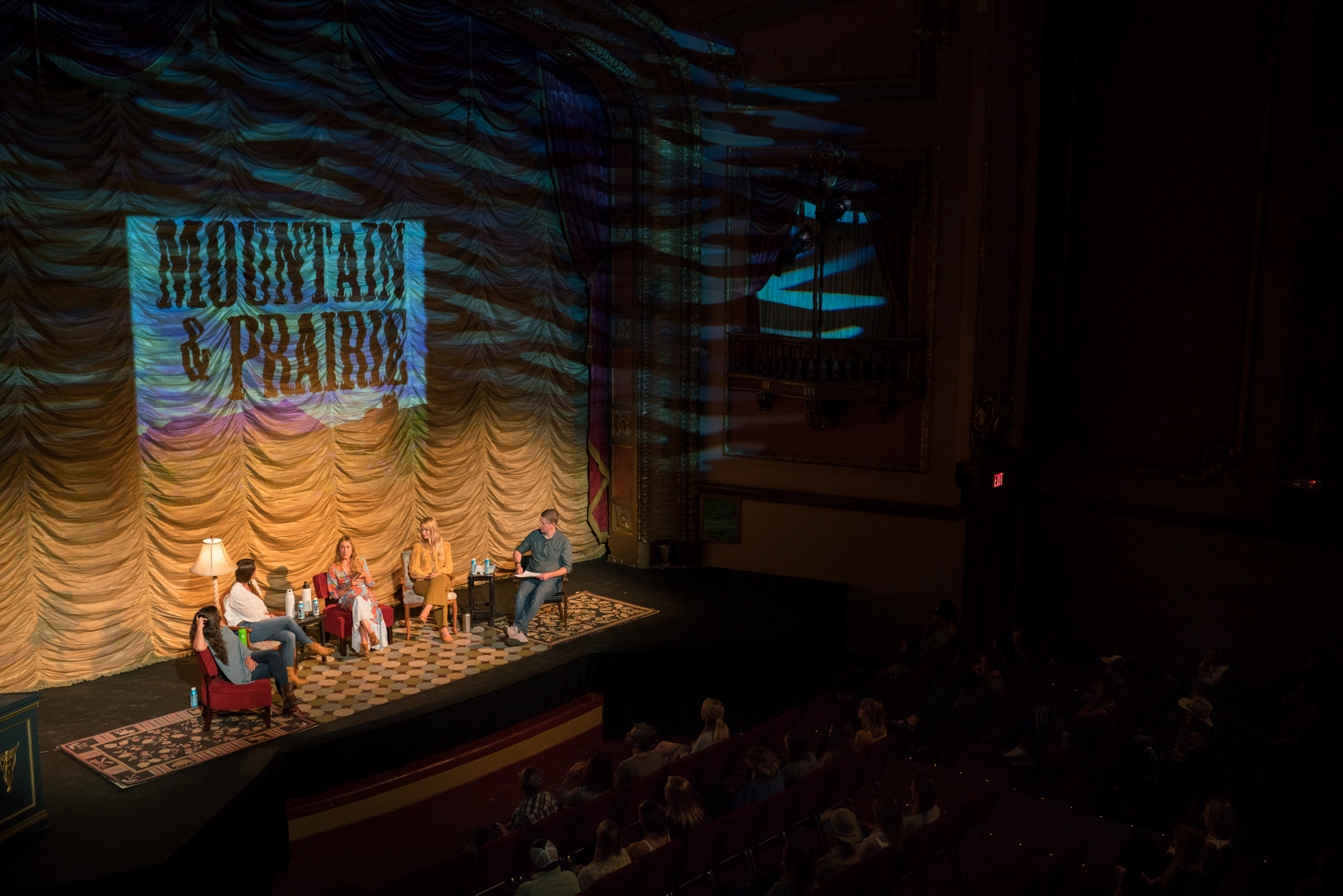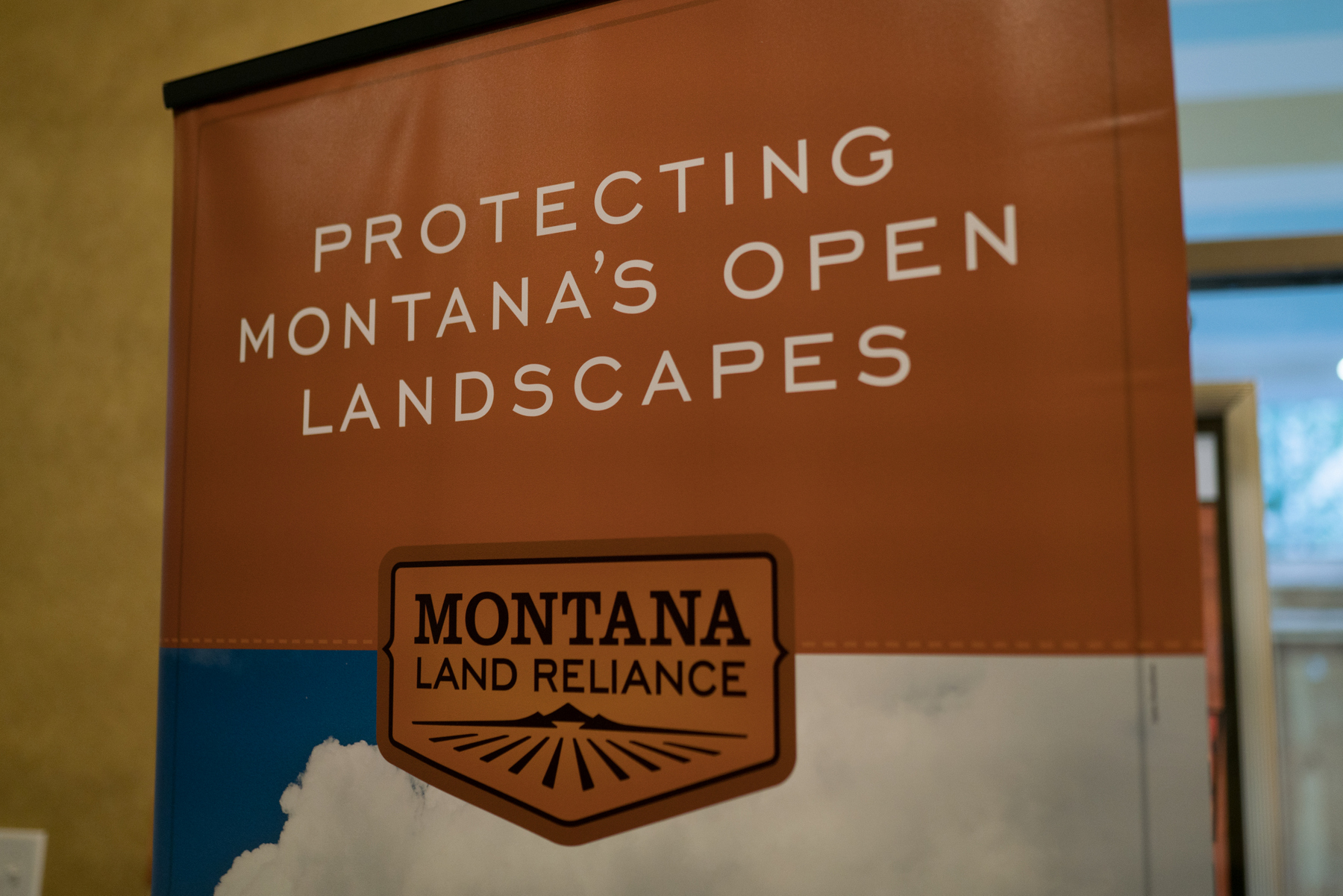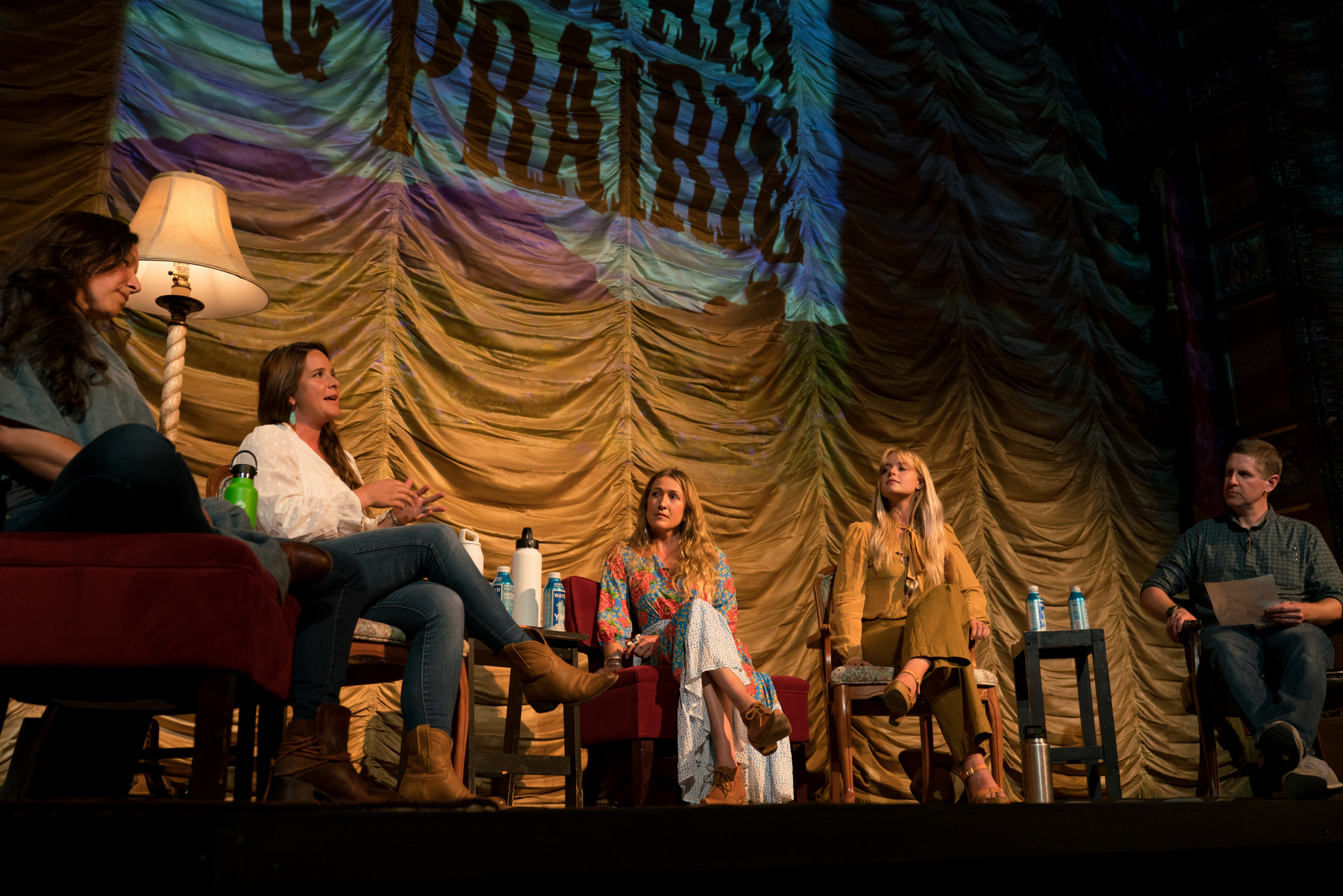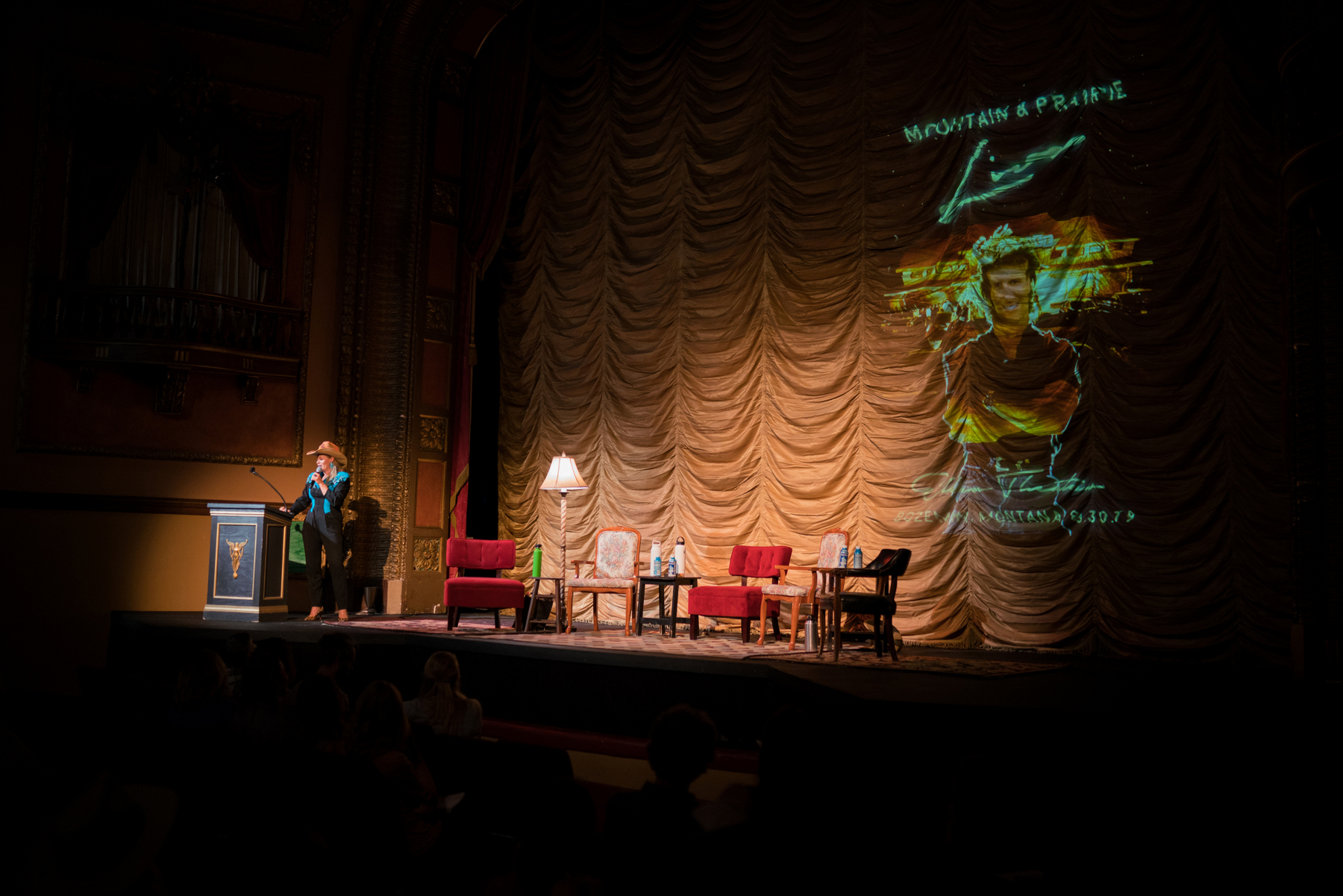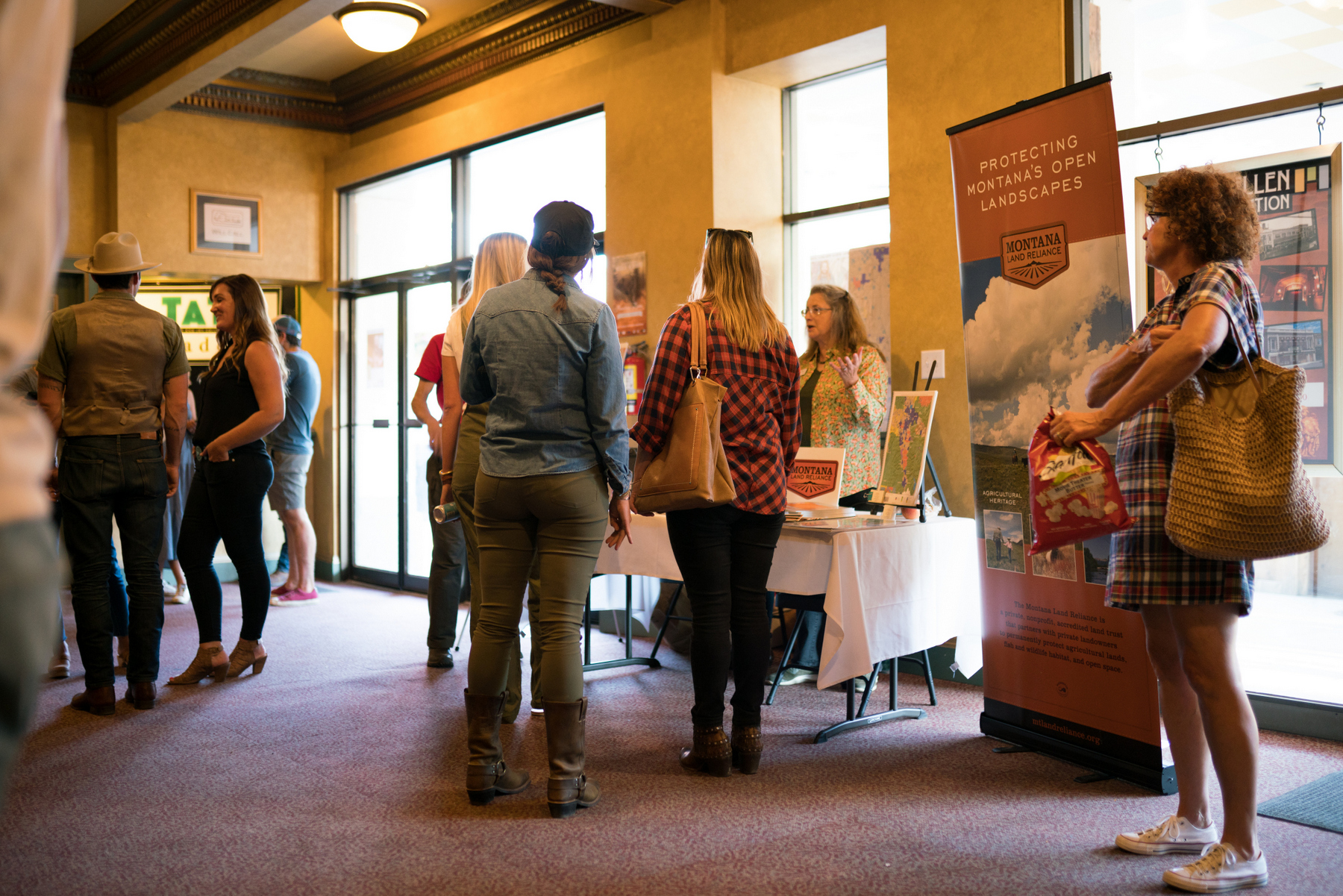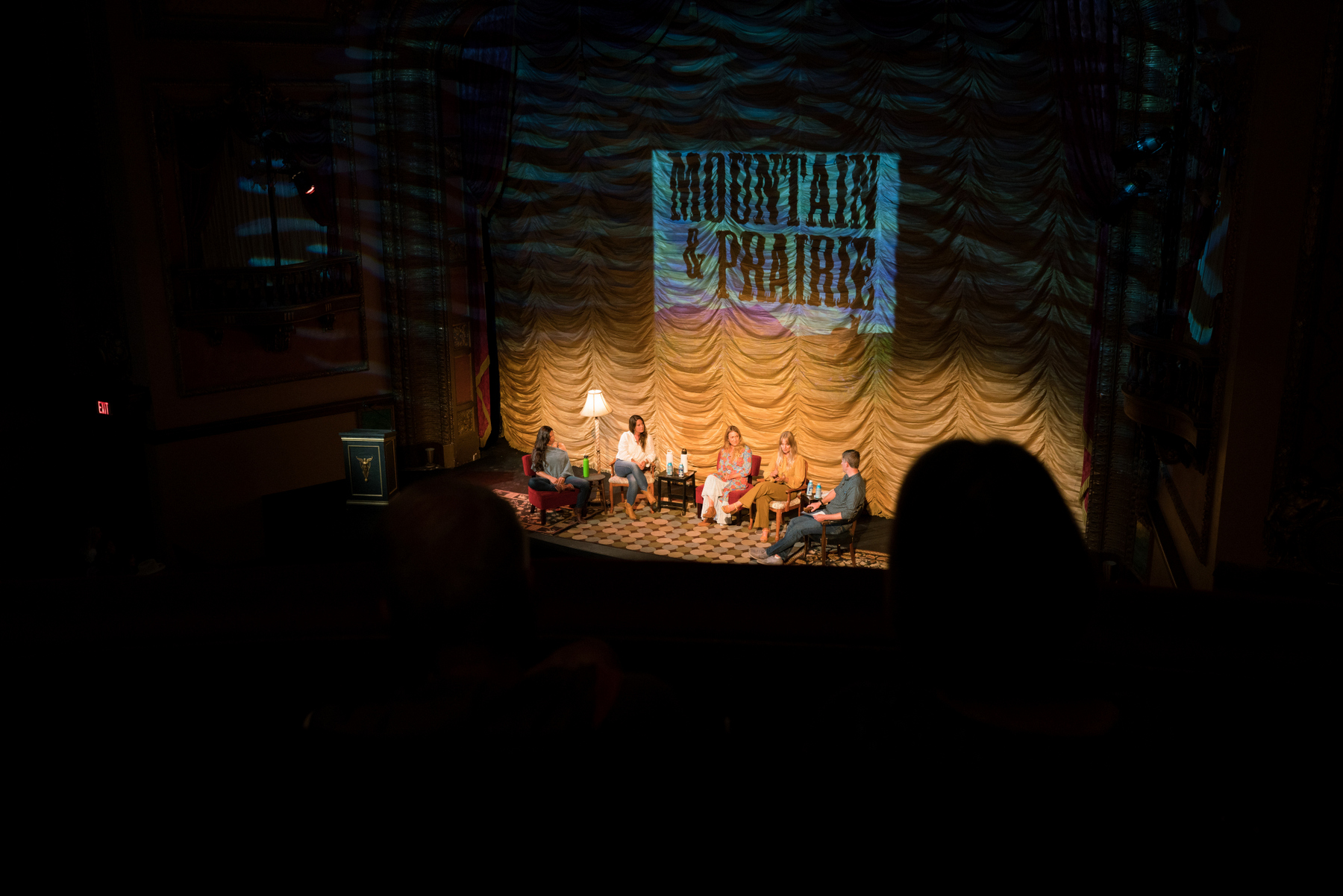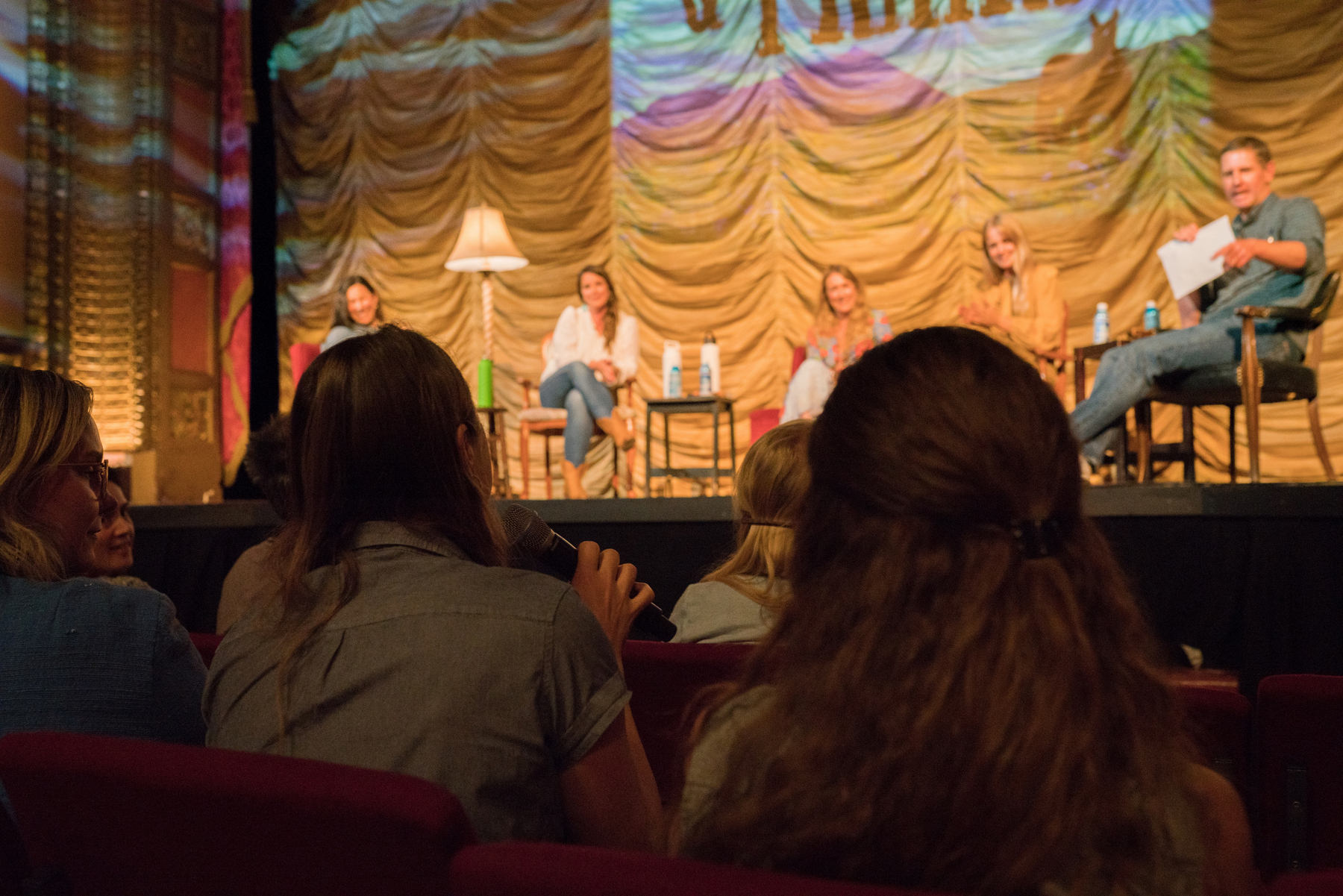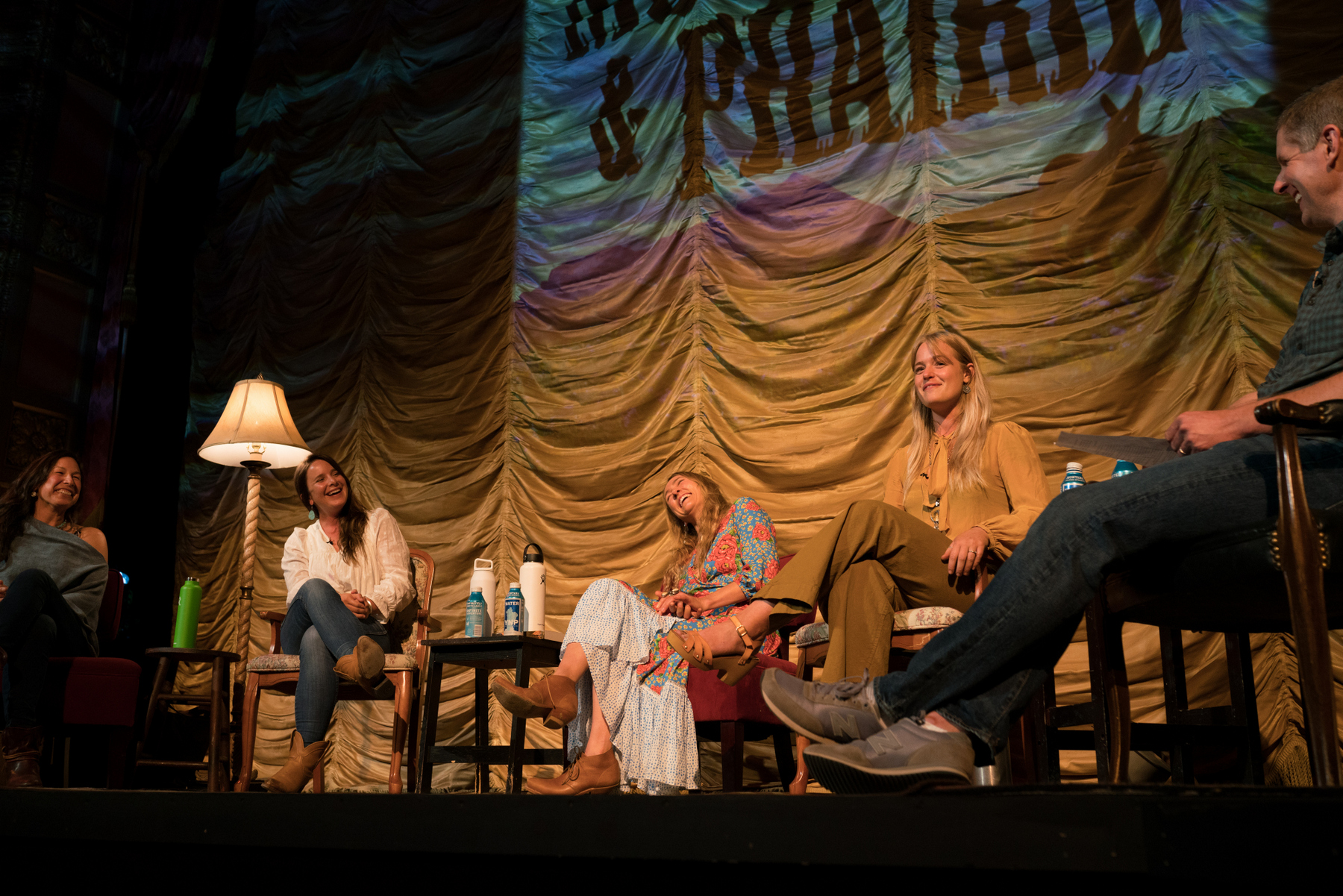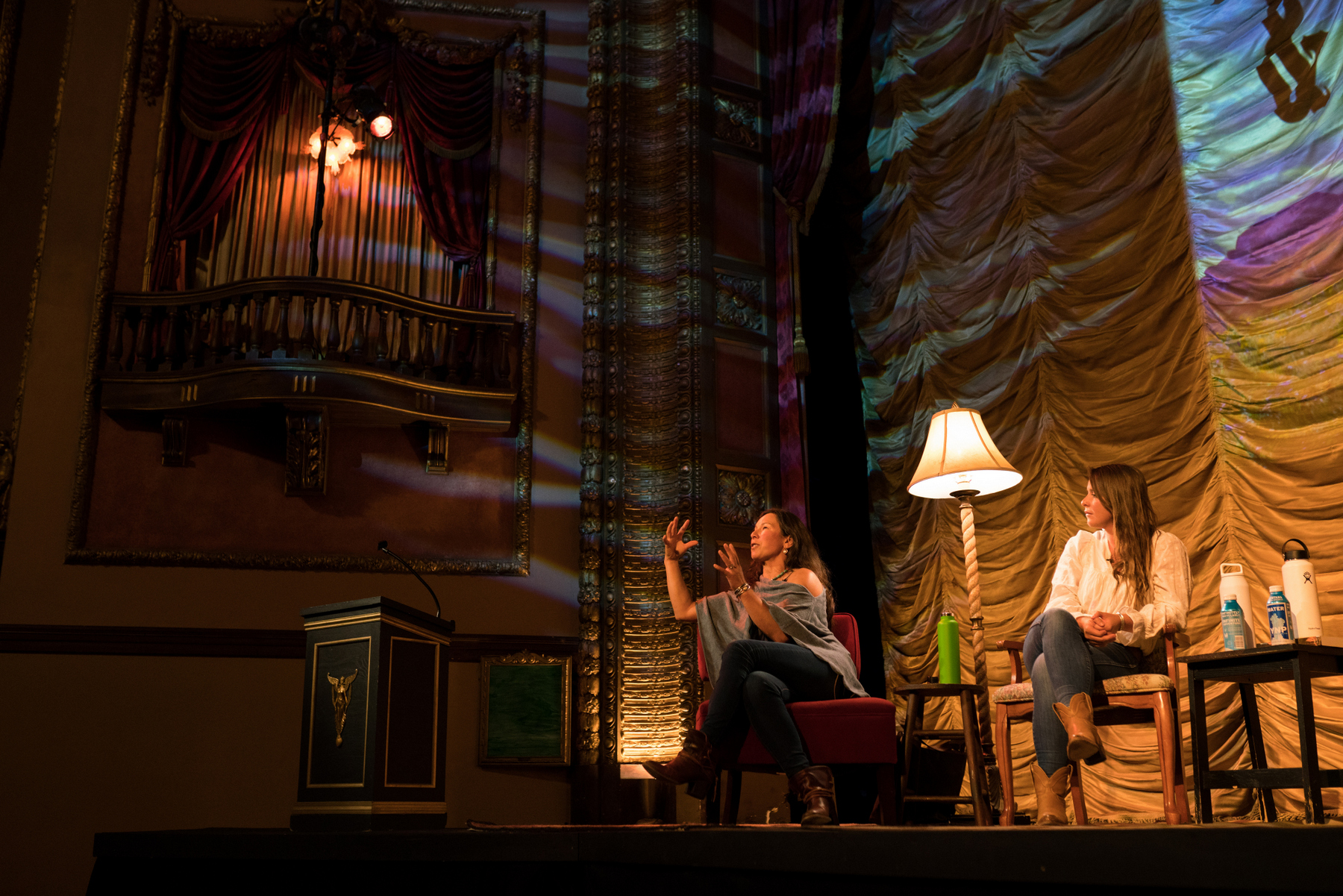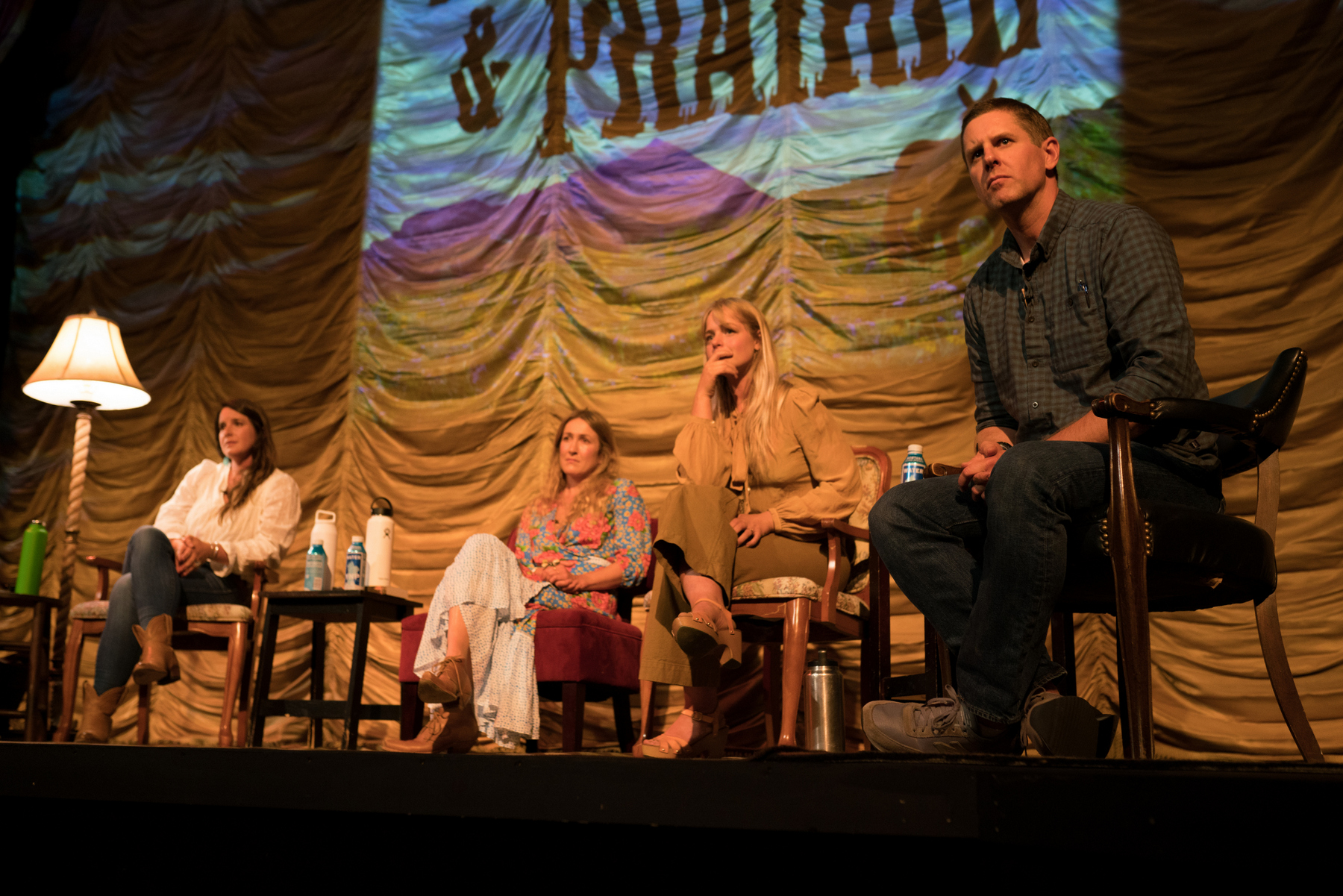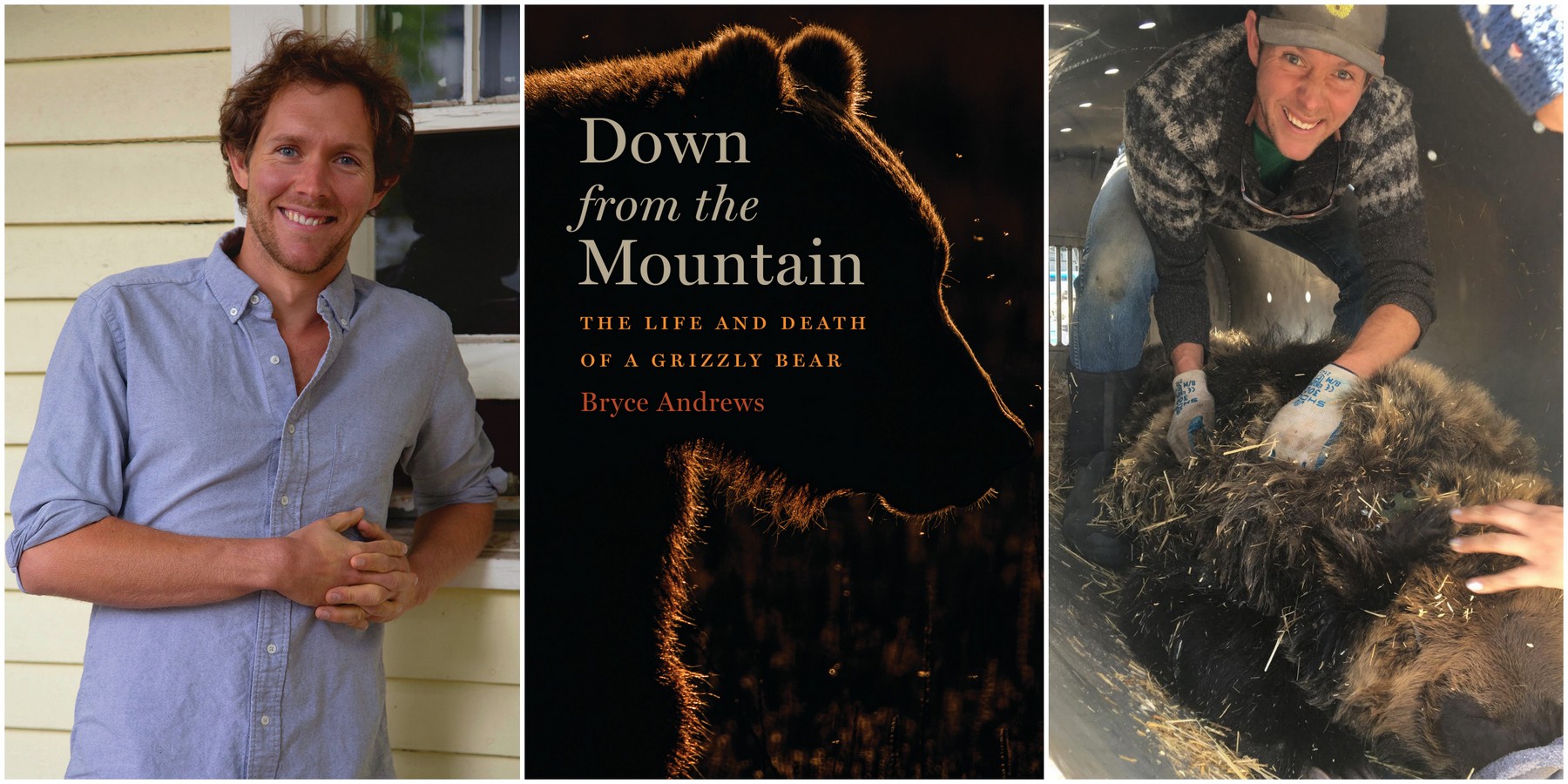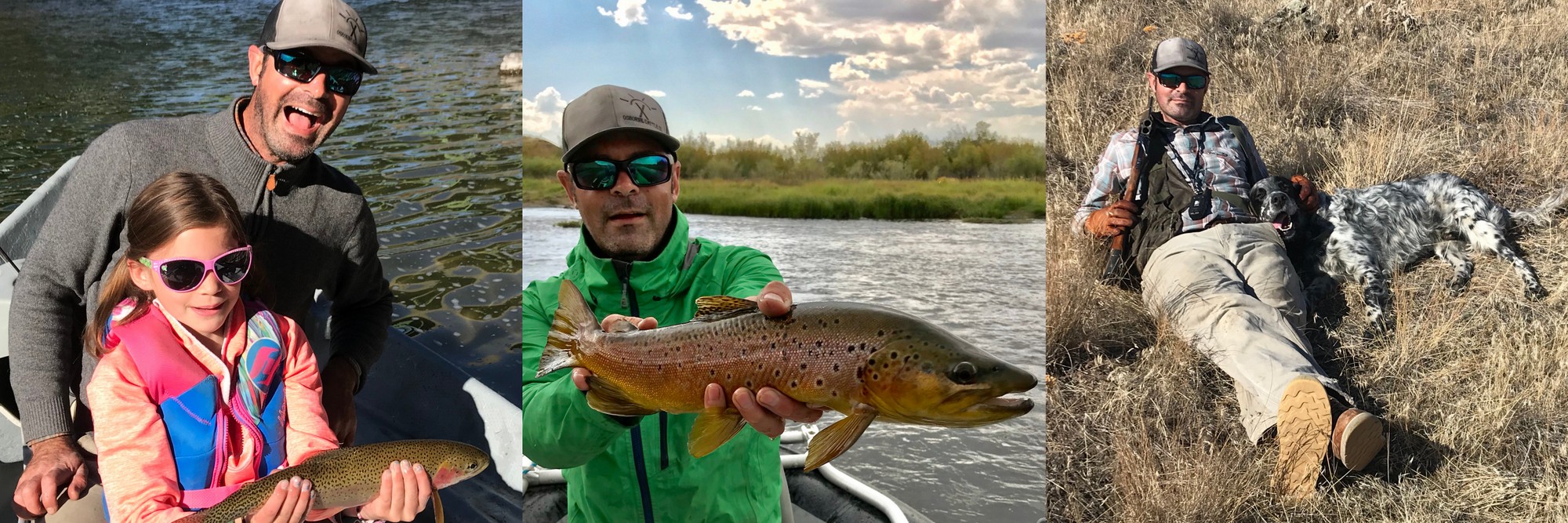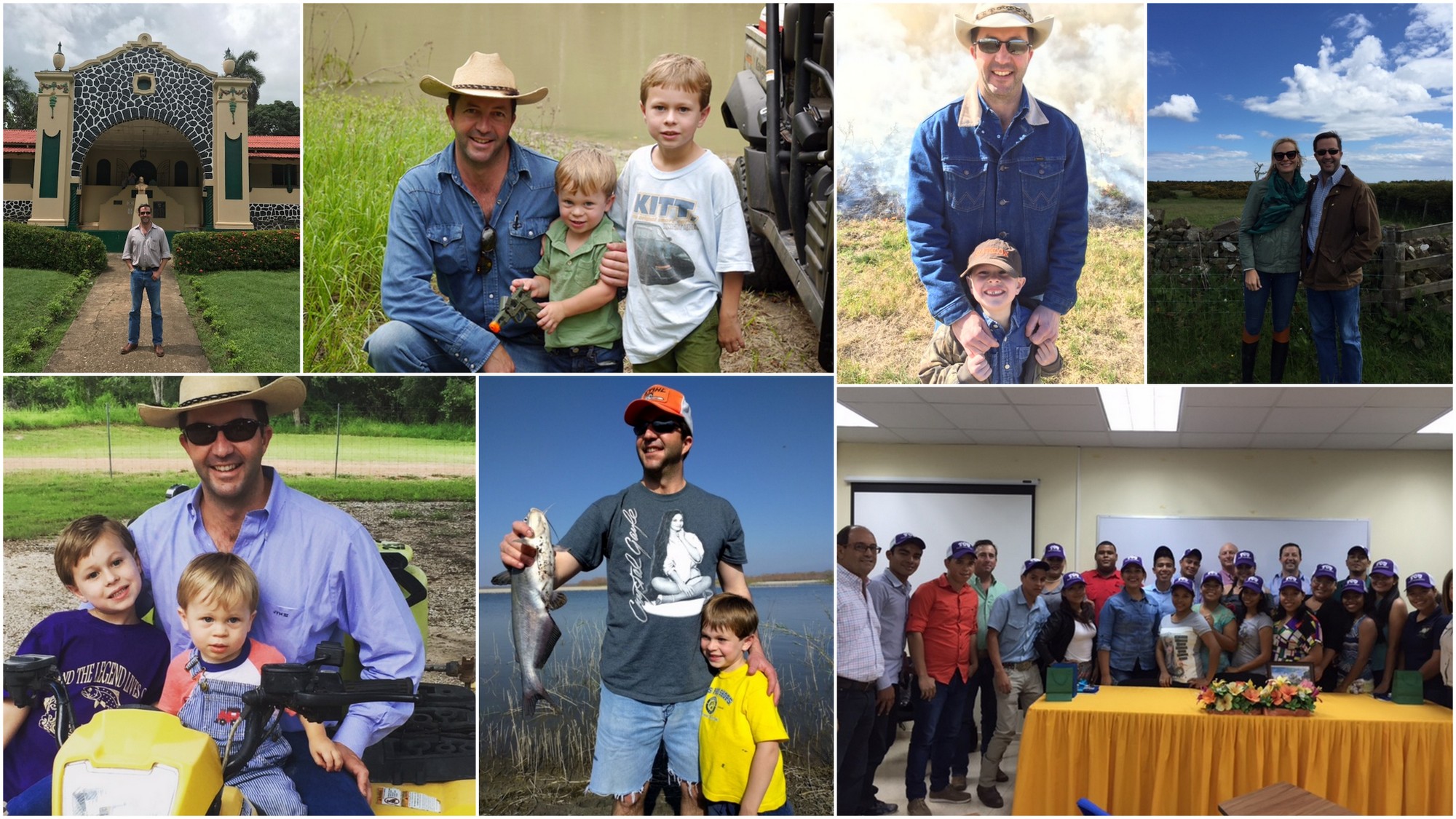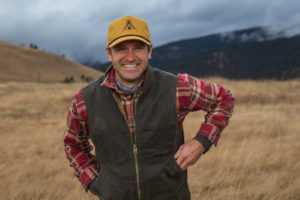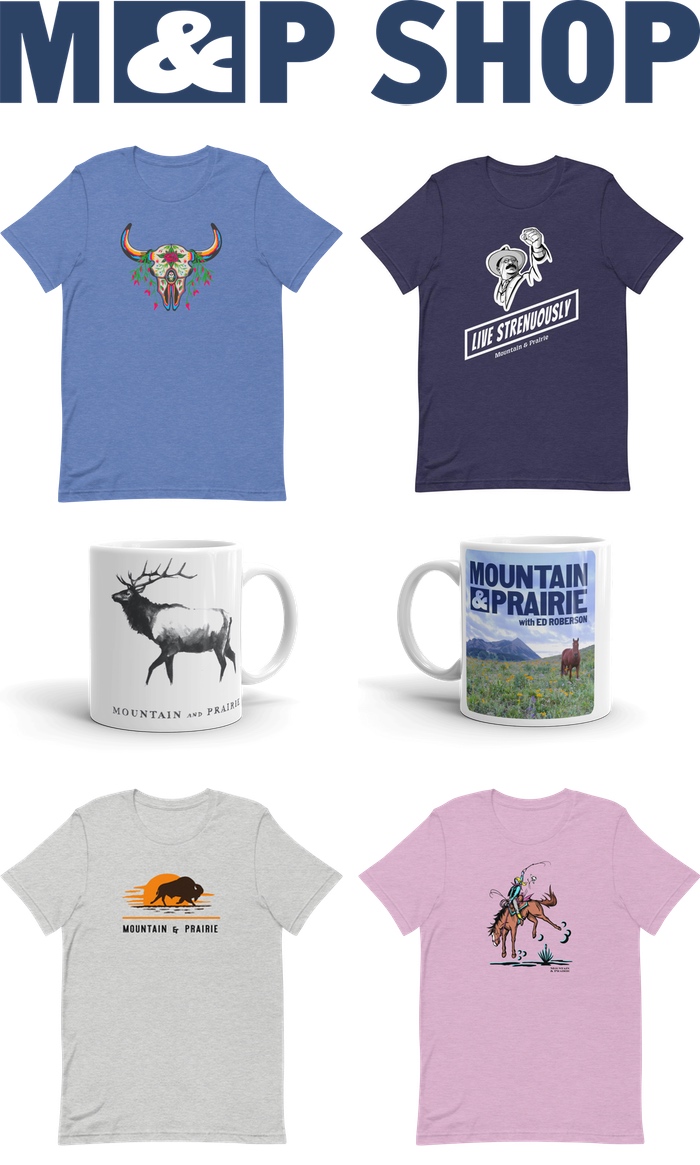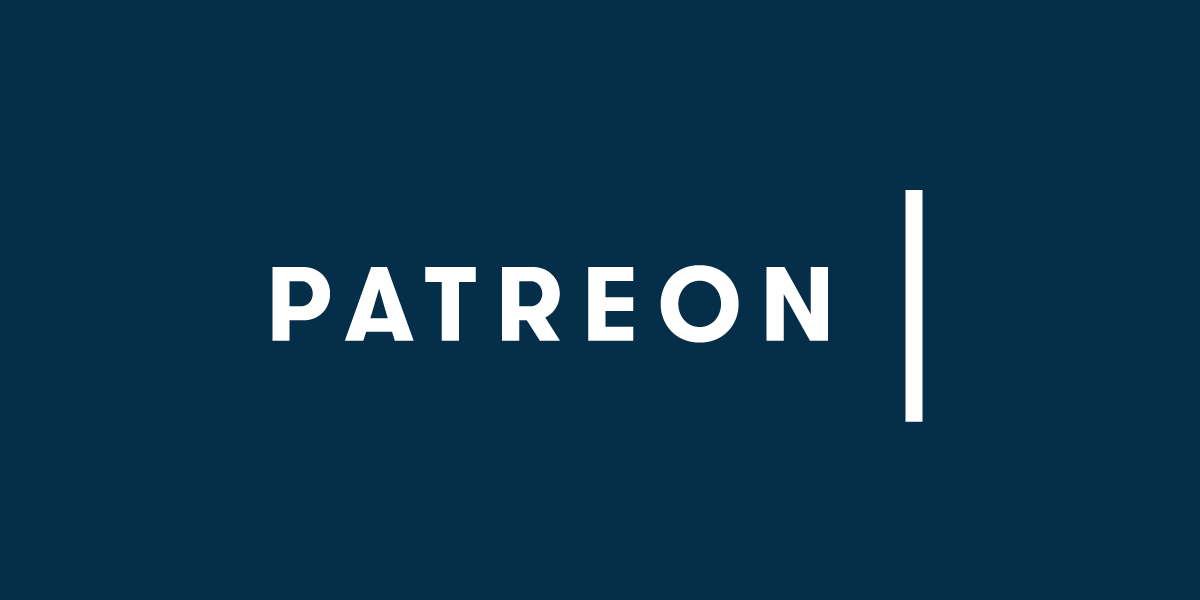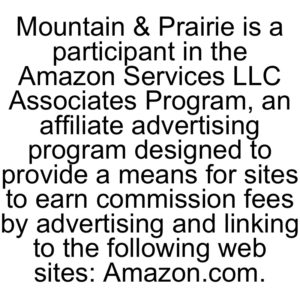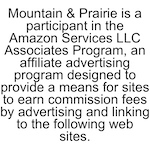Becca Aceto – Forging Her Own Path in the West

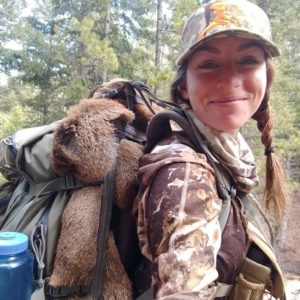
Becca Aceto is an Idaho-based conservationist and is currently the Communications and Outreach Coordinator for the Idaho Wildlife Federation. Prior to this position with IWF, she worked in a variety of jobs closely connected to Idaho’sIdaho’s rugged landscapes—as a naturalist, Forest Service wilderness ranger, and a Forest Service Wildlife Technician. Given her professional commitment to the lands and wildlife of the northern Rockies, you might assume that she’s a native westerner, but in fact, she grew up in Ohio and attended the University of Kentucky before heading West after graduation.
As the oldest of six siblings, Becca has never been shy about “putting herself out there,” learning new skills, or diving head-first into new experiences. She’s studied various types of conservation in far-flung places like Thailand and Costa Rica, and she moved to the small town of Stanley, Idaho, without knowing a soul who lived there. Most recently, in 2017, she took up hunting and has fallen in love with the sport, becoming the Idaho ambassador for the sportswomen’s group Artemis. Becca’s willingness to step outside her comfort zone both professionally and personally can serve as a blueprint for many non-western young people who want to build a fulfilling life and career for themselves in the Rocky Mountains.
Becca and I caught up between a few of her fall hunts and had a wonderful conversation, discussing everything from her early days in Ohio to her current life and work in Idaho. We started by chatting about her upbringing—her childhood spent fishing in a small neighborhood creek, her love of horses, and the positive influence of her grandmother (who happens to be a Buddhist and a vegetarian). We talked about her time working as a ranger and some of the hard-won lessons she learned by suffering in the backcountry. We talk a lot about her relatively new journey becoming a hunter and some of the challenges and opportunities that come with learning to hunt as an adult. We also discuss the important conservation work of the IWF, in politics, on-the-ground stewardship, and public lands advocacy. As usual, we discuss lots of books and the best advice she’s ever received.
We cover a lot in a little over an hour, and I jump around with my questions even more than usual, so be sure the check out the episode notes for a list of everything we discuss. Enjoy!
All photos courtesy of Becca Aceto
Click Here to Download on iTunes
—
Click Here to Download on Spotify
—
Click Here to Download on Google Play
—
Click Here to Download on Stitcher
—
Episode Notes
Topics Discussed:
- 4:00 – Where Becca grew up
- 6:10 – Decision to study natural resources at University of Kentucky
- 8:45 – Working in Costa Rica
- 10:00 – Decision to move West
- 11:30 – First jobs in Idaho
- 14:30 – Bravery to move out West on her own
- 16:30 – Becca’s Buddhist, vegetarian grandmother’s influence
- 19:30 – Working conditions as a forest ranger
- 21:00 – Importance of discomfort and fear
- 25:00 – Starting to work at the Idaho Wildlife Federation
- 29:15 – Importance of politics
- 30:00 – Threat to public lands
- 34:30 – Learning to hunt
- 38:30 – Hunting lessons learned from year to year
- 42:45 – Artemis sportswomen
- 45:20 – Need for diversity in hunting and conservation
- 47:00 – Advice for novice hunters
- 49:15 – Becca’s most recent hunting trip
- 57:00 – Writing
- 1:00:15 – Favorite books
- 1:02:30 – Favorite films
- 1:04:30 – Out-of-the-ordinary hobbies
- 1:06:00 – Favorite location in the West
- 1:07:00 – Best advice ever received
- 1:08:30 – Words of wisdom
- 1:10:00 – Connect with Becca
Information Referenced:
- Idaho Wildlife Federation
- Artemis Sportswomen
- University of Kentucky
- Stanley, Idaho
- Frank Church Wilderness
- Conservation Leaders for Tomorrow conference
- National Wildlife Federation
- Coming Into the Country by John McPhee
- Encounters with the Archdruid by John McPhee
- Draft No. 4 by John McPhee
- The Solace of Open Spaces by Gretle Erhlich
- The Snow Leopard by Peter Matthiessen
- Never Cry Wolf
- 265 Images of Northern Rocky Mountain Wildflowers by Scott Earle
Enjoy this episode? Then you might like these as well:
- Melissa DiNino – Building a Unique Life in Big Sky Country
- Jillian Lukiwski – Art and Adventure in the American West
- Sarah Calhoun – Community Building Through Commerce
- Sarah Wentzel-Fisher – Conservation in the Radical Center
Duke Phillips III – A Vision for the New West

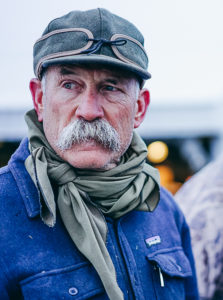
Duke Phillips III is the founder and CEO of Ranchlands, a Colorado-based, family-owned ranch management company. If Ranchlands sounds familiar, that’s because last week’s episode was with Duke’s son, Duke Phillips IV. You may remember that the younger Duke referenced his father’s philosophies around business and leadership several times, so I thought it would be fun to have the elder Duke on the podcast for an in-depth conversation. And in-depth it was—in a little under an hour we covered a wide range of subjects, everything from the future of ranching to world travels to poetry.
Duke has led a fascinating life, starting with his early years spent growing up on a remote cattle ranch in rural Mexico. His twenties were devoted to traveling and working around the world, including places like Europe, Central America, Australia, and the Bering Sea. Around age thirty he started his first “real job” in ranching, which eventually led to the formation of his company Ranchlands. Since its beginnings over two decades ago, Ranchlands has set a new standard what is possible when ranching, conservation, education, and business are successfully combined. And Ranchlands partnership with Colorado’s State Land Board is a case study in effective, mutually beneficial public-private partnerships.
I caught up with Duke on the phone, where he was gracious enough to take time away from one of his New Mexico operations to chat with me. We started by talking about his childhood in Mexico and the lessons he learned from growing up in such a wild and remote landscape. Then we discussed the series of travels and jobs that led to his founding Ranchlands in his mid-forties. From there, our conversation hits on a variety of subjects, including the joys of working with his kids, Duke III and Tess, the ins-and-outs of the bison ranching business, and his thoughts on the recent popularity of regenerative agriculture. There’s minimal overlap between the topics covered in this conversation and my conversation with young Duke, so be sure to check the episode notes for a full list of all the interesting information discussed.
Palmer Land Trust will be honoring Duke and his family at the 10th Annual Southern Colorado Conservation Awards on October 3rd in Colorado Springs. It’s going to be a fun and inspiring evening, so follow the link in the episode notes for more information and tickets. Hope to see you there
All photos courtesy of Charles Post, who also generously donated his Ranchlands photos to Palmer Land Trust for promotion of the 2019 Southern Colorado Conservation Awards.
Click Here to Download on iTunes
—
Click Here to Download on Spotify
—
Click Here to Download on Google Play
—
Click Here to Download on Stitcher
—
Episode Notes
Topics Discussed:
- 3:30 – Where Duke grew up
- 6:30 – Lessons learned from growing up in Mexico
- 8:30 – Having patience with those new to ranching
- 9:45 – Leaving Mexico
- 11:50 – World travels and adventures in his 20s
- 14:30 – First “real job”
- 15:45 – Lead-up to Chico Basin
- 17:00 – Ranchlands explained
- 22:00- Ranchlands’ grazing philosophy
- 26:00 – Joys of working with Tess and Duke IV
- 27:30 – Keys to running a successful family business
- 29:30 – Keeping kids humble
- 31:20 – Importance of positivity in life and business
- 35:00 – Importance of honesty in business
- 37:40 – Successful partnerships with Colorado’s State Board and The Nature Conservancy
- 41:30 – Running a bison ranch
- 45:00 – Regenerative agriculture
- 48:30 – Heroes and mentors
- 52:00 – The future of ranching
- 54:00 – Favorite books and poetry
- 56:30 – Most powerful outdoor experience
Information Referenced:
- Ranchlands
- Chico Basin Ranch
- Medano Zapata Ranch
- Colorado State Land Board
- The Nature Conservancy
- Bud Williams
- Ray Hunt
- Tom Lasater
- Bill Sanders
- Allan Savory
- Duke Phillips IV podcast
- Tess Leach
- Ronald Tobias
- Pablo
Naruda - Chris Dombrowski podcast
- 10th Annual Southern Colorado Conservation Awards
- SCCA Film Trailer
Enjoy this episode? Then you might like these as well:
- Duke Phillips IV – Living with the Land
- Jim Howell, Part II – Restoring Ecological Capital Through Grazing
- Jesse Womack – Land Stewardship is in His Blood
- Alexis Bonogofsky – Taking a Stand for the West
- Charles Post – Stewardship, Science & Storytelling
Duke Phillips IV – Living with the Land
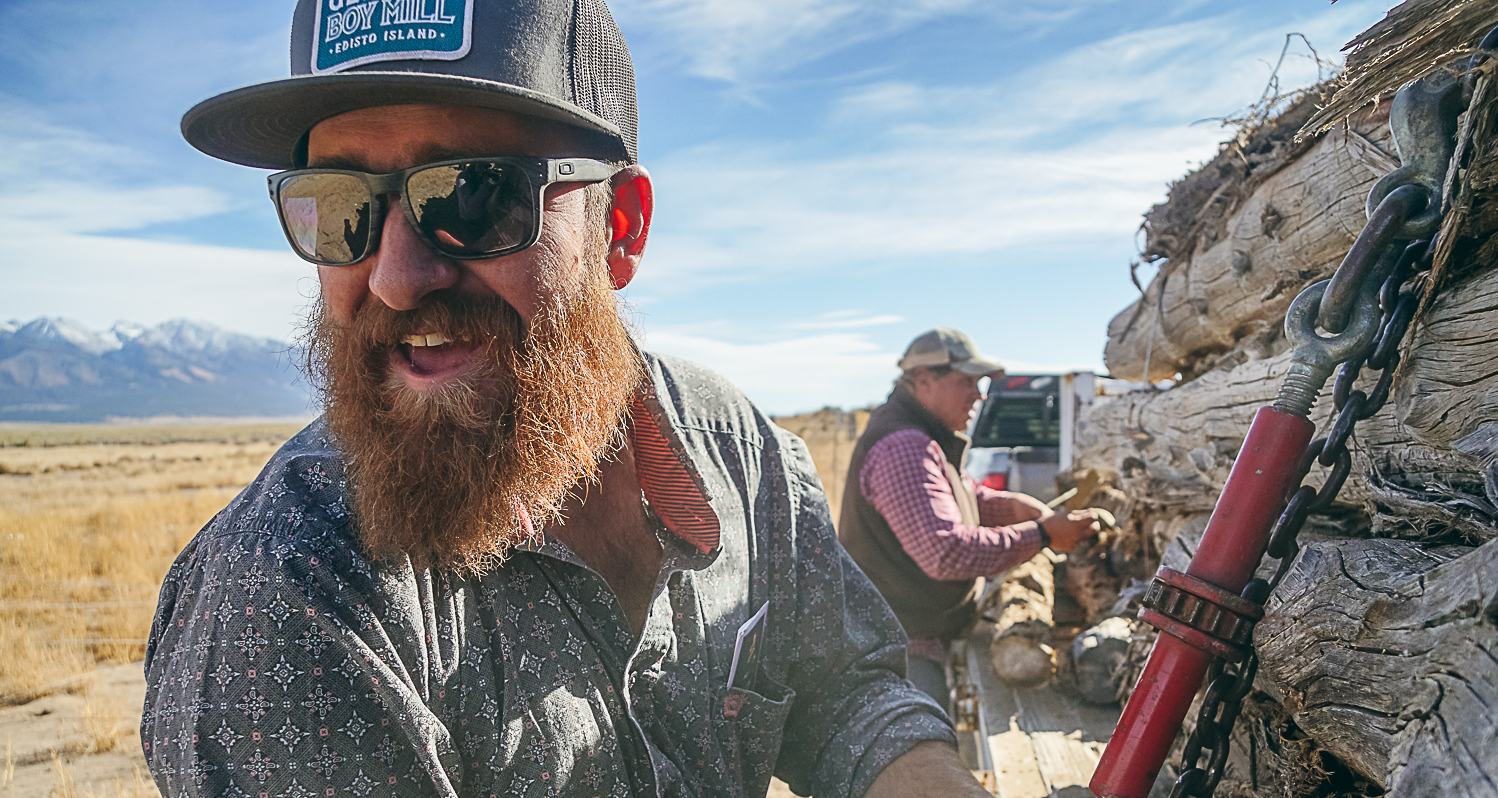
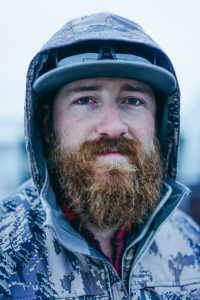
Duke Phillips IV is the Chief Operating Officer of Ranchlands, a Colorado-based ranching and ranch management company that is widely celebrated for its deep conservation ethic. Duke oversees all operations across Ranchlands’ properties, which include the renowned 87,000-acre Chico Basin Ranch and the 103,000-acre Medano Zapata Ranch. Working closely with his father Duke III and his sister Tess, the Duke and his family share a commitment to long-term land stewardship, and they embody the Ranchlands philosophy of “Working together to live with the land.”
As part of a multi-generational ranching family in southeastern Colorado, Duke grew up with one foot in the ranching culture and the other in a more traditional life of
I met Duke out at the Chico where we sat around his kitchen table and chatted– and it was truly a delightful conversation. We talked about the operations at their ranches, delving into some of the details around their breed of cattle, the Beefmaster. We discussed the apprentice and intern programs at Ranchlands, and why he and his family value teaching and educating both the general public and the next generation of land stewards. We discussed Duke’s thoughts on leadership and the importance of being humble and calm in all situations. He also explains Ranchlands open gate policy, and how that philosophy differs from some of the conventional wisdom around access to land in the West. We also discuss books, his heroes and mentors, flying helicopters, lessons learned from living and working internationally, and much more.
Finally, I wanted to note that Ranchlands will be honored at Palmer Land Trust’s 10th Annual Southern Colorado Conservation Awards on October 3rd in Colorado Springs. We’ll be debuting a short film about the Phillips family that highlights some of their innovative conservation work throughout the state. I guarantee it will be an inspiring and fun evening.
There are many important lessons to be learned from this conversation with Duke– check the episode notes below for a full list of everything we discussed. Hope you enjoy!
All photos courtesy of Charles Post, who also generously donated his Ranchlands photos to Palmer Land Trust for promotion of the 2019 Southern Colorado Conservation Awards.
Click Here to Download on iTunes
—
Click Here to Download on Spotify
—
Click Here to Download on Google Play
—
Click Here to Download on Stitcher
—
Episode Notes
Topics Discussed:
- 3:30 – Background on Chico Basin
- 6:00 – Chico Basin’s open gate policy
- 8:00 – Education and birding programs on the ranch
- 11:15 – Background on open gate policy
- 14:00 – Beefmaster cattle breed
- 19:00 – Ideal characteristics of the Beefmaster breed
- 22:15 – Good books about grazing and ranching
- 23:30 – How travel and education have shaped their business
- 25:00 – Finishing high school and starting college
- 28:00 – Choice to study liberal arts
- 30:00 – Internship and apprentice program
- 34:00 – Traits Duke looks for in employees
- 40:00 – Duke’s evolution as a leader
- 42:00 – Importance of good communication
- 44:00 – Heroes and mentors
- 49:00 – Importance of being positive
- 54:00 – Importance of controlling anger
- 56:30 – Favorite books
- 59:00 – Flying helicopters and planes
- 1:01:30 – Using helicopters in ranching
- 1:03:10 – Most powerful outdoor experience
- 1:07:30 – Favorite place in the West
Information Referenced:
- Ranchlands
- Chico Basin Ranch
- Medano Zapata Ranch
- Colorado State Land Board
- The Nature Conservancy
- Charlie Russell
- Lasater Family
- Becca Frucht
- The Lasater Philosophy of Raising Cattle by Laurance M Lasater
- Endurance by Alfred Lansing
- Empire of the Summer Moon by SC Gwynne
- Jim Kane by JPS Brown
- The Outfit by JPS Brown
- Forests of the Knight by JPS Brown
- Tribe by Sebastian Junger
- 10th Annual Southern Colorado Conservation Awards
- SCCA Film Trailer
Enjoy this episode? Then you might like these as well:
- Jim Howell – Conserving and Restoring the World’s Grasslands
- Jim Howell, Part II – Restoring Ecological Capital Through Grazing
- Sarah King – Collaborative Conservation in the American Southwest
- Jay Kleberg – True Dedication to Conservation, Adventure & Texas
- Duke Beardsley – Art in the Big, Bold American West
- Charles Post – Stewardship, Science & Storytelling
Live in Bozeman!
Live in Bozeman!
This episode is a special recording from a Mountain & Prairie live podcast in Bozeman, Montana. On August 30th more than 300 folks gathered at the historic Ellen Theatre in downtown Bozeman to watch, listen, and participate in a wide-ranging conversation with four amazing women of the West—hat-maker and farmer Cate Havstad; silversmith and all-around artist Jillian Lukiwski; adventure photographer and writer Becca Skinner; and rancher and county commissioner Juanita Vero. We also held a raffle that benefited the Montana Land Reliance and the critical conservation work it is doing throughout the state of Montana.
The show started out with a hilarious, high-energy welcome from the amazing Becca Frucht, who is one of the funniest and most unique human beings I’ve ever met. Then I spent about an hour and fifteen minutes asking the women questions about their lives, work, and a shared love of western landscapes. After that, we had some excellent questions from the audience, followed by a few words from the Jessie Weisse from the Montana Land Reliance. As you’ll hear, a good bit of our conversation centered around the land, conservation, and agriculture, so it was very fitting that the Montana Land Reliance was such an important part of the evening. My only complaint about the event is that I wish it could’ve been much longer—as you’d expect, we only scratched the surface of all the fascinating topics we could’ve discussed.
A heartfelt thank you to Cate, Jillian, Becca, and Juanita for being so open, thoughtful, and funny with all of their answers—the evening would not have been even a fraction of the success it was without their participation. Thanks to Becca Frucht for her energizing welcome and for figuring out a way to work Road House into her remarks. Thank you to the Montana Land Reliance for all of their important work throughout the state and for being part of the evening. A huge thanks to our sponsors—Chris Dombrowski Fly Fishing, Tom Morgan Rodsmiths, ONDA Wellness, Modern Huntsman, Beargrass Writing Retreat, Heyday, Head West Bozeman, and Big Agnes. And last but definitely not least, thanks to everyone who attended the event—I know we had people travel to Bozeman from many other states and even Canada for the show, so I can’t thank you all enough for being such important members of this podcast community.
It was truly a night to remember, and I’m excited to do more live shows in 2020, so stay tuned for that. But in the meantime, enjoy this audio version of the Mountain & Prairie Podcast, live in Bozeman!
All photos by Jasper Poore
Click Here to Download on iTunes
—
Click Here to Download on Spotify
—
Click Here to Download on Google Play
—
Click Here to Download on Stitcher
—
Episode Notes
Topics Discussed:
- 3:30 – Welcome from the great Becca Frucht
- 8:30 – A few words from Ed
- 11:30 – Quick intros
- 13:00 – Update on Cate’s involvement in farming
- 15:30- Juanita’s entrance into county politics
- 20:00 – Jillian’s evolving connection to her place
- 21:00 – Becca’s immersion in private land conservation
- 27:30 – Juanita’s thoughts on private land conservation
- 32:00 – Jillian discusses the importance of hard work and adventure in wild places
- 35:30 – Cate discusses the business realities of farming
- 44:00 – Jillian and Becca talk about “putting herself out there”
- 47:30 – Using social media productively
- 50:00 – Other places the ladies would choose to live
- 55:30 – Best books read in the past year
- 1:01:30 – How their husbands/partners bolster them as individuals
- 1:06:30 – Jillian’s “Big Enough Theory”
- 1:12:00 – Q&A – Mentors and mentoring
- 1:17:00 – Q&A – Roots to the past in the women’s trades
- 1:20:30 – Q&A – Role of horses in the ladies lives
- 1:28:00 – Q&A – Balancing development and conservation in Montana
- 1:35:30 – Q&A – How do we connect people with their food
- 1:40:15 – A few words from the Montana Land Reliance
Information Referenced:
- Cate Havstad
- Jillian Lukiwski
- Becca Skinner
- Juanita Vero
- Becca Frucht
- Montana Land Reliance
- Road House clip
- Robert Krapfel podcast
- Jim Howell podcasts 1 and 2
- For the Love of Land by Jim Howell
- Montana block management
- “Extinction of Experience” by Pyle, explained
- Wendell Berry
- Palmer Land Trust
- The Unsettling of America by Wendell Berry
- It All Turns on Affection by Wendell Berry
- Dirt by David Montgomery
- The Hidden Half of Nature by David Montgomery
- Growing a Revolution by David Montgomery
- American Serengeti by Dan Flores
- Neither Wolf Nor Dog by Kent Nerburn
- Short Nights of the Shadow Catcher by Timothy Egan
- Lentil Underground by Liz Carlisle
- Grain by Grain by Liz Carlisle
- Claiming Ground by Laura Bell
- The Biggest Little Farm
- Dare to Lead by Brene Brown
- Tom Morgan Rodsmiths podcast
- Seth Godin
- Sarah Wentzel-Fisher podcast
- Stacy Townsend (who made the epic Road House poster)
THANKS AGAIN TO OUR SPONSORS!
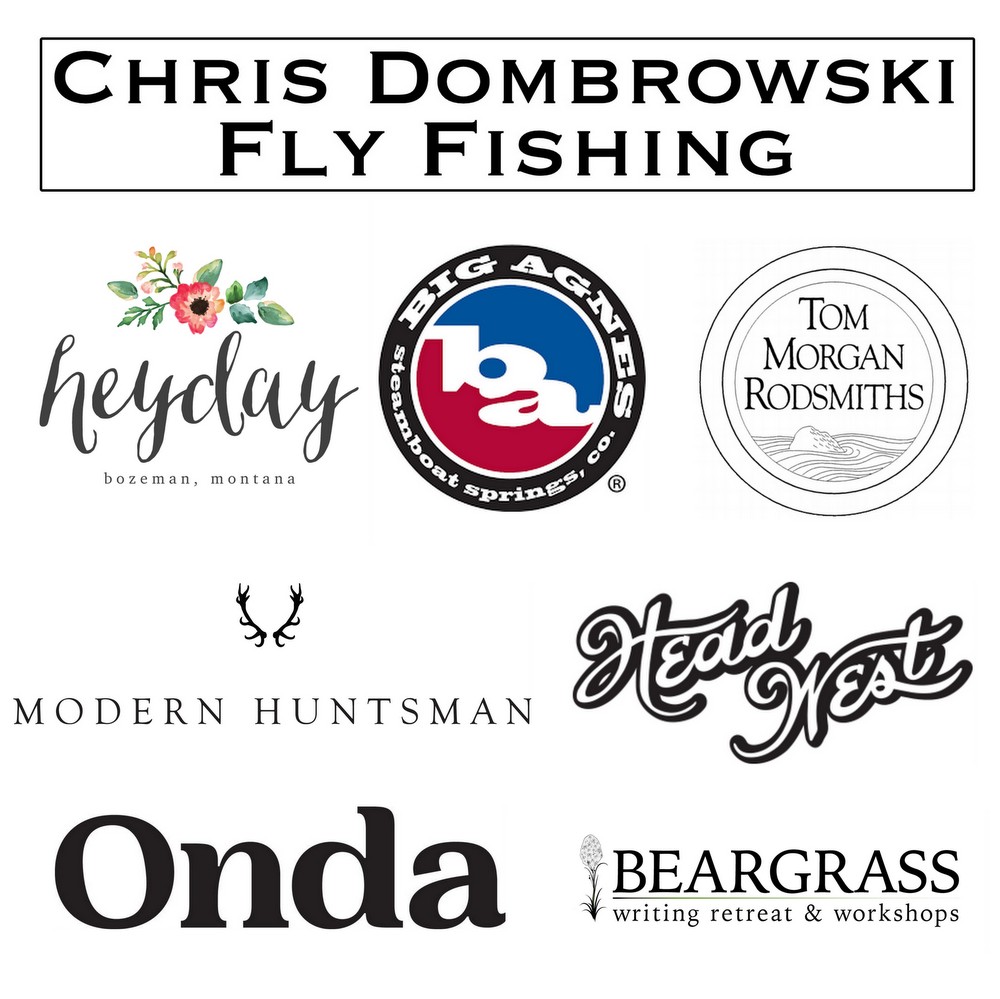
Enjoy this episode? Then you might like these as well:
- Jessica Lewis – Doing More With Less
- Alexis Bonogofsky – Taking a Stand for the West
- Mary Rondepierre – Melding Work, Play, and Purpose
- Morgan Irons – Finding Her Muse
- Rebecca Jewett – Big Ideas for the New West
- Christine Su – The Business of Healthy Grasslands
- Hampton Sides – Live at the Aspen Institute
William deBuys – Sage of the Southwest

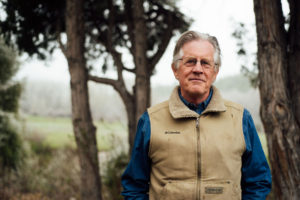
William deBuys is a renowned writer and
Bill was born and raised on the east coast but moved to New Mexico after college to take a job as a research assistant with writer Robert Coles. Bill found himself immersed in the arid landscape of the American Southwest and very quickly fell in love with the people, culture, and terrain. From then on, Bill’s life and work centered around the land, whether earning his Ph.D., working for the Nature Conservancy and The Conservation Fund, or pursuing full-time writing. His life serves as an inspiring case study of how to meld on-the-ground conservation work with high-level aspirational writing and journalism.
My biggest challenge with this conversation was figuring out how to fit five hours of questions into a single hour! We start by discussing how Bill ended up in New Mexico, and then chat a good bit about his farm. We discuss lessons learned from his work in land conservation, and techniques he uses to find common ground among competing stakeholders. We talk a lot about his writing process and routine, including Bill’s excellent advice related to the technical and psychological aspects of writing. We also discuss several of his books, and how writing each book has influenced his perspective and appreciation for his beloved New Mexico home. Bill offers up a useful and completely unique technique for summoning gratitude, a practice I believe we all can benefit from. And as usual, we discuss his favorite books, his favorite location in the West, and the best advice he ever received.
It was a dream come true to spend time with Bill at his farm, so I hope you enjoy this conversation as much as I did. Be sure the check the episode notes for links to everything we discussed!
Header photo courtesy of Bill deBuys, headshot by Ben Moscona
Click Here to Download on iTunes
—
Click Here to Download on Spotify
—
Click Here to Download on Google Play
—
Click Here to Download on Stitcher
—
Episode Notes
Topics Discussed:
- 4:30 – El Valle, New Mexico, described
- 5:45 – How Bill ended up in New Mexico
- 10:30 – Work with The Nature Conservancy and The Conservation Fund
- 12:30 – Lessons learned from conservation work
- 14:30 – Early writing experience
- 15:25 – Looking back at old work
- 16:30 – Understanding and appreciating “place”
- 19:45 – How Bill wrote “The Walk”
- 22:15 – Dealing with feedback on his writing
- 23:15 – The writer’s mindset
- 24:30 – Bill’s writing process
- 29:00 – Decision to focus mostly on writing
- 30:15 – Discussion of his book “A Great Aridness”
- 34:25 – Actionable ideas for dealing with climate change
- 38:00 – Valles Caldera Trust
- 42:00 – Techniques for finding common grounds
- 45:30 – “The Last Unicorn” and other international adventures
- 46:50 – Influentials writers and thinkers
- 49:00 – Teaching and its influence on his work
- 51:00 – Favorite books
- 53:00 – Practice of writing down all the “aunts and uncles”
- 55:00 – Most powerful outdoor experience
- 56:10 – Threats to ANWR and the Rio Grand corridor
- 59:25 – Favorite location in the West
- 59:30 – Best advice ever received
Information Referenced:
- William deBuys
- River of Traps: A New Mexico Mountain Life by William deBuys
- The Walk by William deBuys
- A Great Aridness: Climate Change and the Future of the American Southwest by William deBuys
- The Last Unicorn: A Search for One of Earth’s Rarest Creatures by William deBuys
University of North Carolina at Chapel Hill- Robert Coles
- The Nature Conservancy
- The Conservation Fund
- Dante’s Inferno
- Quivira Coalition
- Bill McKibben
- Valles Caldera
- Peter Matthiessen
- John McPhee
- Henry David Thoreau
- Wallace Stegner
- John Wesley Powell
- Edward Abbey
- Moby Dick by Melville
- Joseph Conrad
- William Shakespeare
- Middle March by George Elliot
- Bill’s Op-Ed in the New York Times
Enjoy this episode? Then you might like these as well:
- Hampton Sides – Live at the Aspen Institute
- Sara Dant – A Deep Dive Into the History of the West
- Dan Flores – Chronicling the West’s Rich Natural History
- Bryce Andrews – People, Predators, and the American West
- David Gessner, Part 2 – Ambition, Art, and Arête
Emilene Ostlind – Storytelling for the New West
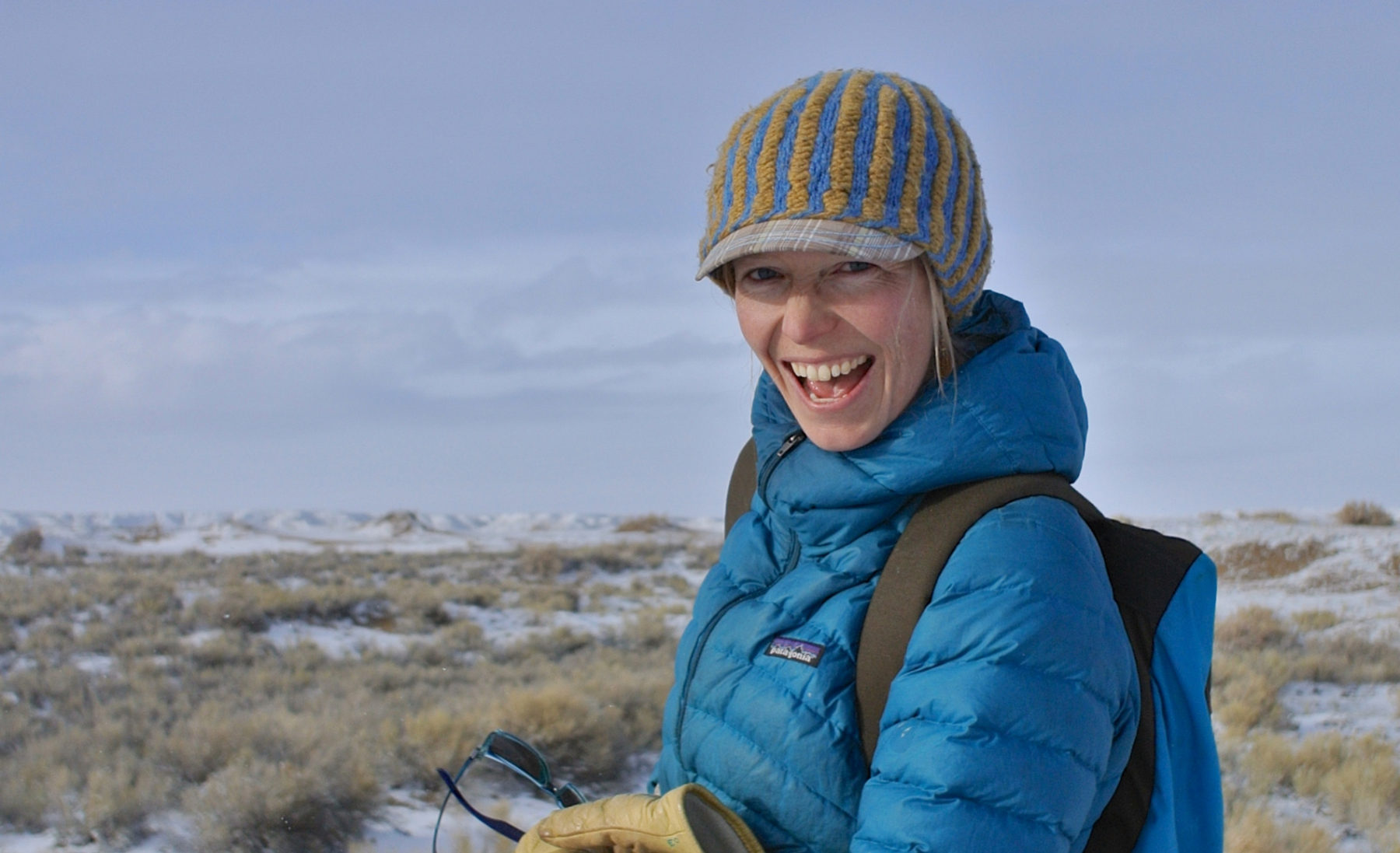
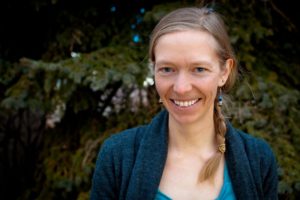
Emilene Ostlind is a Wyoming-based journalist and storyteller whose work focuses on the landscapes, natural resources, and communities of the American West. She may be best known for her work studying and documenting the long-distance migration of pronghorn antelope from Grand Teton National Park down into the Green River Valley—a topic that was the basis for her graduate school thesis, as well as her award-winning High Country News cover story about the “Path of the Pronghorn.” Emilene is also the editor of Western Confluence, an amazingly informative, entertaining, and free magazine published by the University of Wyoming’s Ruckelshaus Institute of Environment and Natural Resources. And if all of that is not enough, she is also working closely on the production of an upcoming documentary called Deer 139, which tells the story of a mule deer’s migration across Wyoming and a researcher’s attempt to follow that same path on foot.
Emilene grew up at the base of the Big Horn Mountains in Wyoming, a third-generation Wyomingite from a family closely connected to ranching and the land. After earning her undergraduate degree from the University of Wyoming, she landed a job in Washington DC with National Geographic, where she learned first hand the power of storytelling as a means of communicating important, complex issues. She returned to the University of Wyoming for a graduate degree in creative nonfiction writing, with a focus on understanding and documenting pronghorns’ migration patterns throughout her home state. Along with photographer Joe Riis, they explored the mountains of the Greater Yellowstone Ecosystem, shedding light on one of the lower 48’s last remaining big game migration corridors.
If you’ve enjoyed my conversations with folks like Dan Flores and Bryce Andrews, then you’ll love this episode. We dig deep into the specifics of pronghorns and discuss why they are one of the more interesting and impressive North American mammals. We talk about how Emilene initially became interested in pronghorn migrations, and how the project began and played out over several years. We also discuss her work editing Western Confluence and the 2018 book Wild Migrations. As you’d expect, we discuss her upbringing in Wyoming, her career path in storytelling, and she offers some excellent advice for aspiring journalists who’d like to follow a similar path. And of course we discuss favorite books, so be sure to check the episode notes for links to all of those– there are a lot of new titles.
I encourage you to subscribe to Western Confluence—it’s totally free which is quite a deal when you consider just how much you’ll learn from reading it. But in the meantime, enjoy my fun and educational conversation with Emilene Ostlind.
Photos courtesy of Emilene Ostlind
Click Here to Download on iTunes
—
Click Here to Download on Spotify
—
Click Here to Download on Google Play
—
Click Here to Download on Stitcher
—
Episode Notes
Topics Discussed:
- 4:30 – Emilene’s family history in Wyoming
- 7:00 – Her life-long interest in storytelling
- 8:00 – Experience at National Geographic
- 12:30 – Heading back West from DC
- 13:30 – Genesis of pronghorn migration idea
- 15:00 – Applying to grad school
- 17:00 – “Path of the Pronghorn”
- 21:50 – Pronghorns explained
- 26:30 – Reception of migration story by the general public
- 30:00 – Steps that landowners can take to help animal migrations
- 35:00 – Wyoming as a last major migration corridor
- 37:30 – “Deer 139”
- 41:20 – Storytelling through film
- 44:45 – Western Confluence
- 50:00 – Mentors, heroes, and books
- 53:30 – “Wild Migrations”
- 56:40 – Advice to aspiring storytellers
- 59:45 – Favorite books about the West
- 1:01:00 – Favorite films
- 1:02:00 – Most powerful outdoor experience
- 1:03:40 – Favorite location in the West
- 1:05:00 – Best advice she’s ever received
- 1:06:15 – Request of the listeners
- 1:07:40 – Connect with Emilene
Information Referenced:
- Emilene Ostlind
- “Path of the Pronghorn” story
- Deer 139
- Western Confluence
- Wild Migrations
- Ruckelshaus Institute of Environment and Natural Resources
- Padlock Ranch
- National Geographic
- Steve Winters
- Karsten Heuer
- Mark Jenkins
- Joe Riis
- Pronghorn Antelope
- American Serengeti by Dan Flores
- Unbranded
- Ben Masters podcast
- Walton Family Foundation
- High Country News
- Brian Calvert podcast
- The Snow Leopard by Peter Matthiessen
- A River Runs Through It by Norman Maclean
- Being Caribou by Karsten Heuer
- Illumination in the Flatwoods by Joe Hutto
- The Meadow by James Galvin
- This House of Sky by Ivan Doig
- Claiming Ground by Laura Bell
- MountainFilm
- Pilot Hill
Enjoy this episode? Then you might like these as well:
- Bryce Andrews – People, Predators, and the American West
- Dan Flores – Chronicling the West’s Rich Natural History
- Ben Masters – Conservation Through Innovative Filmmaking
- Charles Post – Stewardship, Science & Storytelling
- Adam Foss – Lessons Learned From a Life Afield
Behind the Scenes with Ed – Parts 1 & 2

PART 1: Behind the Scenes with Ed – Cutting-Edge Land & Water Conservation in the West

This episode is a little different—this is part one of a two-part series in which I’m the one in the hot seat. It’s a repost of my recent appearance on the Quivira Coalition’s excellent podcast called “Down to Earth – The Planet to Plate Podcast.” They were nice enough to invite me on to discuss some of my conservation work at Palmer Land Trust, particularly around our focus of conserving irrigated farmland in southeastern Colorado. It’s fascinating work that hits on many of the issues we’ve previously discussed here on Mountain & Prairie—water rights, pressures facing agricultural communities, holistic approaches to resource management, balancing the needs of agriculture with that of municipalities, and more. It’s what I spend the vast majority of my time doing, and I hope you’ll find it interesting and informative.
Regardless of whether or not you listen to my episode, I highly encourage you to check out Down to Earth. The host Mary-Charlotte is a journalistic pro who likes to dive deep in the nuances of agriculture and has interviewed some of the most impressive people working in agriculture today (present company excluded). If you’ve enjoyed my past episodes with folks like Jim Howell, Pat O’Toole, Christine Su, and, of course, Quivira Executive Director Sarah Wentzel-Fisher, then I can guarantee you’ll love the Down to Earth podcast. There’s a link to Down to Earth in the episode notes, so be sure to check it out and give them a great iTunes review if you’re so inclined.
Thanks again to Down to Earth for being interested in my work, and thanks to you all for listening. Feel free to reach out to me if you have any questions. Hope you enjoy!
Click Here to Download on iTunes
—
Click Here to Download on Spotify
—
Click Here to Download on Google Play
—
Click Here to Download on Stitcher
—
—
PART 2: Behind the Scenes with Ed – A Never-Boring, Often-Crazy Personal Journey
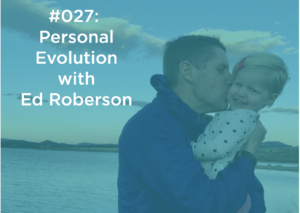
If you listened to the previous episode above, then you know that I’m mixing things up a bit. This is Part 2 of a two-part series in which I’m the one in the hot seat. This episode is a repost of my recent appearance on the Truth & Dare Podcast, a wonderfully inspiring show that features in-depth conversations about personal growth, risk-taking, and living life to the fullest.
In the first part of this two-part series, you’ll remember it being detailed discussion around my professional interests—land, water, and agriculture. This conversation on Truth & Dare is equally detailed and deep, but focused almost exclusively on my personal life—my journey from North Carolina to the West, my obsession with long-distance running, the crazy way that I met my wife, lessons learned for a semester of NOLS, how my wife and girls’ influence has made me a much better person, and much more. Many of the books and ideas that we’ve discussed on Mountain & Prairie play a big role in my personal evolution from wanna-be real estate developer to conservationist, so I wanted to share this with you all.
As you’ll hear, the host Camden is a curious, kind, and natural conversationalist who likes to talk deeply about subjects of substance—not surface-level nonsense. I was turned on to her podcast when she interviewed my friend—artist, surfer, and family-man Kevin Mirsky—and I was thrilled and a little nervous when she asked me to join her on the show. But we had an instant connection and a great conversation that I hope you’ll enjoy. But regardless of my episode, if you are interested in personal growth and stories of people who have taken unconventional paths, you should definitely give Truth & Dare a listen.
A huge thanks again to Camden for having me on, thanks to you all for listening, and I’ll be back with regular Mountain & Prairie episodes in the next few days.
Click Here to Download on iTunes
—
Click Here to Download on Spotify
—
Click Here to Download on Google Play
—
Click Here to Download on Stitcher
—
Morgan Irons – Finding Her Muse
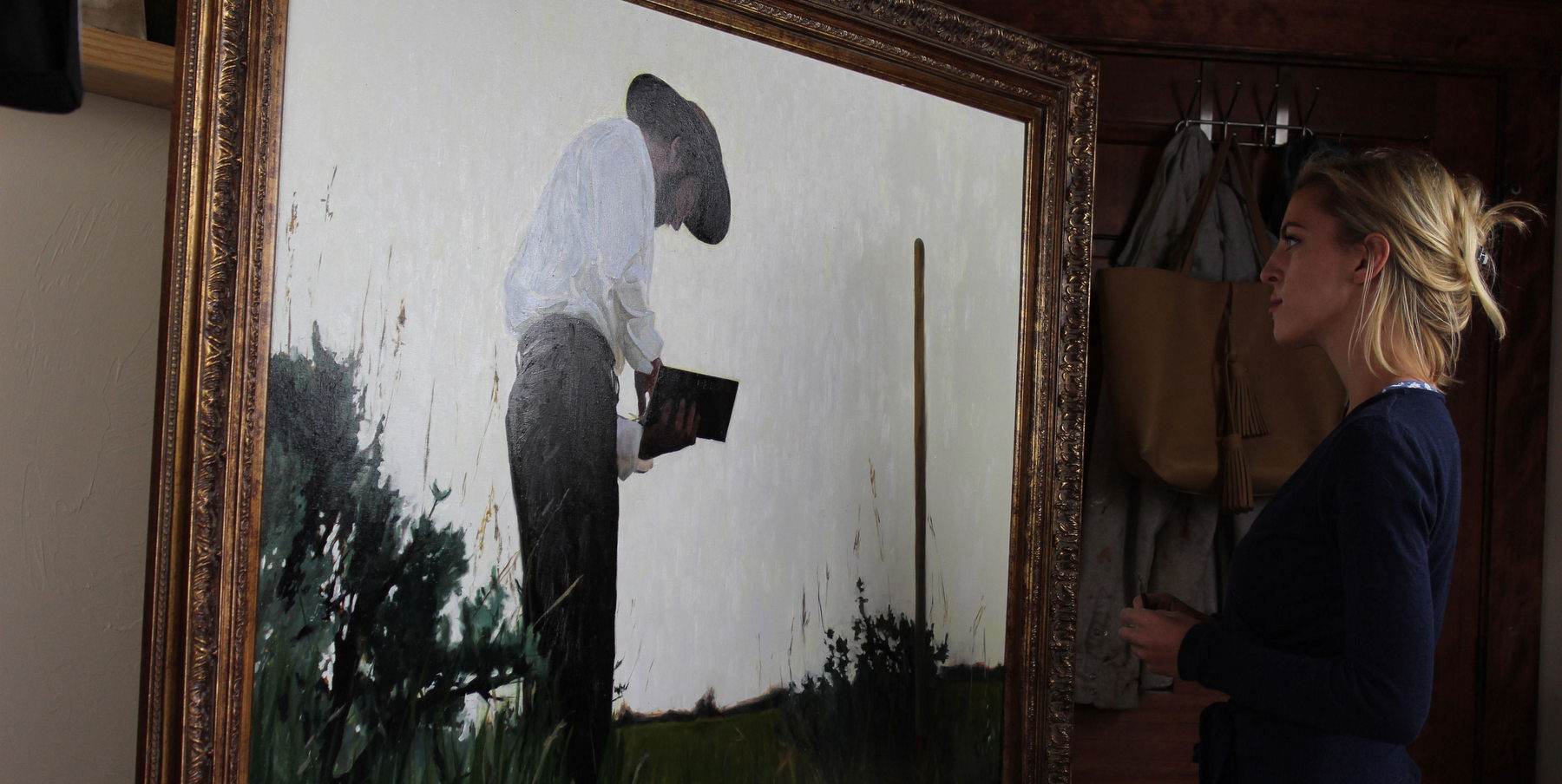
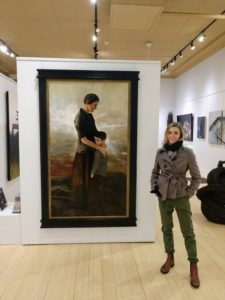
Morgan Irons is a Montana-based artist whose captivating oil paintings combine the classic style of late 19th-century painters with her own modern-day interpretation of the West’s people and places. When I first discovered Morgan’s art, I assumed I was looking at the work of a classically trained artist who’d been in the trenches of painting for decades… and I couldn’t have been more wrong. Morgan has only been painting since 2015, with virtually no artistic training prior. Her innate talent is matched only by her work ethic and commitment to the craft—she has built her life around the process of making art, which is inspiring and instructive for anyone with creative aspirations.
Morgan was born in Durango and spent her youth in various parts of the West, including Alaska and Idaho. After college in the flat midwest, she immediately returned to more rugged landscapes, working in Alaska and eventually landing in Bozeman. She tried her hand at a “normal” job but found the corporate world to be uninspiring and frustrating. So rather than wallow and complain, she moved on from that job and soon thereafter, discovered her talent for painting. Since then, she’s gone all-in on her career as an artist, and she is building quite a strong following in the art world.
If you are a person who dreams of pursuing your creative passion full time, then you will love this episode—it’s full of actionable ideas around art and the creative process. We talk about the remote cabin where Morgan lives and paints, and why she needs solitude and open spaces for maximum creative output. We discuss her daily routine and how she primes her artistic mindset through hiking, meditation, and writing. We also discuss how she blocks out distractions and her techniques for using the productive aspects of social media while avoiding the time-wasting traps. We obviously talk about the point when she discovered her talent for painting and how she has honed that talent through workshops and mentorships from top painters. Finally, Morgan tells some great stories about hunting for ghosts with her dad, her favorite books, a bear that broke into her car, and the importance of having no “Plan B.” Enjoy!
Photos courtesy of Morgan Irons
Click Here to Download on iTunes
—
Click Here to Download on Spotify
—
Click Here to Download on Google Play
—
Click Here to Download on Stitcher
—
Episode Notes
Topics Discussed:
- 5:00 – Where Morgan is based
- 6:00 – Why Morgan likes solitude
- 8:00 – Balancing technology—productivity vs. distraction
- 11:00 – Morgan’s younger years
- 12:00 – Heading to college in St. Louis
- 14:30 – Family history in Alaska
- 17:30 – Job in Alaska
- 22:00 – Lessons learned in Alaska
- 23:00 – Moving in Bozeman
- 25:15 – Discovering art
- 27:00 – Buying paint and starting to make art
- 30:00 – Feelings during the process of painting
- 32:30 – Learning from the masters while keeping the originality
- 35:30 – Formal learning from world-class artists
- 38:00 – Learning from fellow students as well as professors
- 40:00 – Daily routines
- 44:00 – Meditation practice
- 46:30 – Balancing friendships with her need for solo time
- 50:00 – How the West shapes her work
- 53:30 – Mentors and artists Morgan admires
- 56:00 – A non-painting artist who Morgan admires
- 58:30 – How her psychology degree has helped her art
- 1:00:00 – Favorite books
- 1:04:00 – Ghost hunting!
- 1:08:30 – Crazy bear encounter
- 1:12:00 – Words of wisdom
- 1:14:30 – Connect with Morgan online
Information Referenced:
- Morgan Irons
- Morgan on Instagram
- The War of Art by Steven Pressfield
- Jeremy Lipking
- Joshua LaRock
- Grand Central Atelier
- Headspace
- Sam Harris
- Waking Up meditation app
- Daniel Anderson podcast
- Melissa DiNino podcast
- Michael Untiedt
- Jules Breton
- Song of the Lark painting
- Bill Murray story about Song of the Lark
- Florence Welch
- Avett Brothers
- Mark Maggiori podcast
- Russell Rowland
- In Open Spaces by Russell Rowland
- Fifty-Six Counties by Russell Rowland
- This Much Country by Kristin Pace
- Daily Rituals by Mason Curry
- The Unbearable Lightness of Being by Milan Kundera
- Bigfoot podcast: Wild Thing
Enjoy this episode? Then you might like these as well:
- Logan Maxwell Hagege – Artistic Evolution
- Daniel Anderson – Finding Common Ground
- Melissa DiNino – Building a Unique Life in Big Sky Country
- Mark Maggiori – A Fresh View of the American West
- Nicholas Coleman – Painting the Heritage and History of the American West
- Teal Blake – On Being Authentic & Original
- Duke Beardsley – Art in the Big, Bold American West
Heather Hansman – Demystifying Water in the West
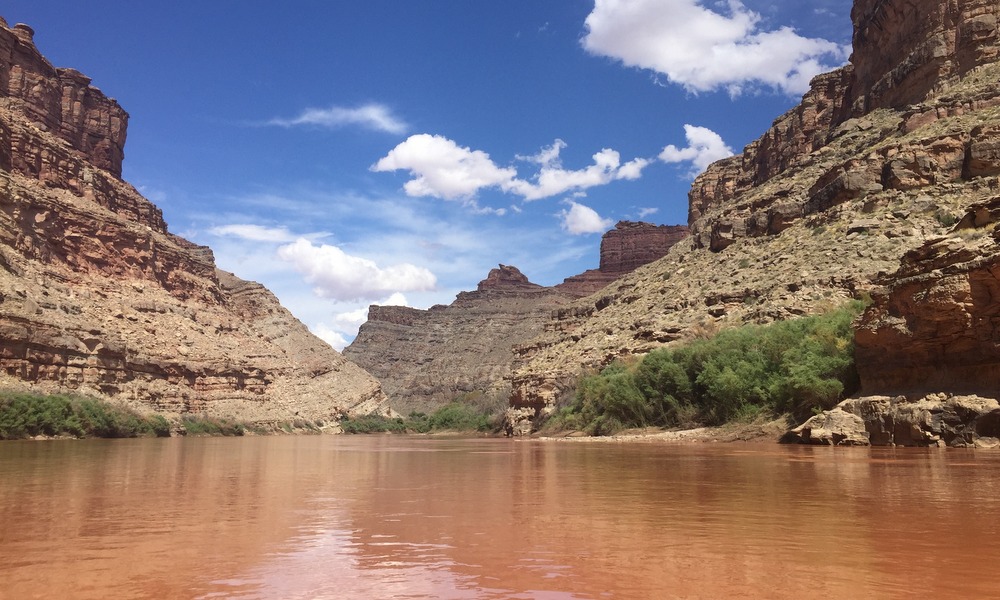
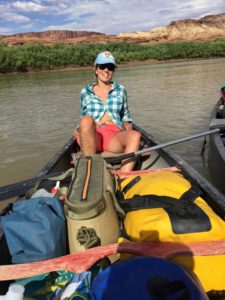
Heather Hansman is a freelance writer and editor whose work explores the intersection of science, adventure, and culture. Her new book Downriver: Into the Future of Water in the West should be required reading for everyone who enjoys this podcast—it strikes the perfect balance of being entertaining and educational while examining all sides of the many issues facing the West’s water supply. There are few topics in the West as divisive and emotional as water, and in her book, Heather provides a balanced overview of all the issues, delving deep into the substance of water-related arguments, without crossing over into the mind-numbing jargon that defines most water-related writing.
The book follows Heather’s 730-mile float down the length of the Green River, starting at the base of Wyoming’s Wind River mountains and ending at the confluence of the Green and Colorado Rivers in Utah. Along the way, she meets with a wide range of western water stakeholders—ranchers, farmers, river guides, government employees, scientists, conservationists, and more—and digs into their sometimes competing interests fighting for their shares of water in the West. But the book is far from an academic examination of water law—Heather paddled two-thirds of the river completely alone, so there is also a compelling adventure narrative that runs throughout the book.
To understand most of the challenges facing the West, you need to understand water, and this episode is a perfect place to start. Heather and I start our conversation by laying out some of the basics around water—terminology that you may have heard thrown around but never truly understood. She explains how water in the West is a property right separate from land, and she explains some of the common
As a guy who spends much of my day working with water and water rights, I can’t thank Heather enough for writing this book. I hope you enjoy this conversation as much as I did!
Photos courtesy of Heather Hansman
Click Here to Download on iTunes
—
Click Here to Download on Spotify
—
Click Here to Download on Google Play
—
Click Here to Download on Stitcher
—
Episode Notes
Topics Discussed:
- 4:15 – Events leading to writing the book
- 7:30 – Overview of the river trip
- 11:00 – Women pursuing adventure for adventure’s sake
- 15:00 – Water as a private property right
- 16:30 – What does “over-allocation” mean?
- 19:20 – How do we overcome water shortages?
- 20:30 – Transbasin diversions and the West’s plumbing system
- 23:00 – Ins-and-outs of dams
- 26:00 – Importance of being open-minded to all sides of issues in the West
- 29:40 – “Water flows uphill towards money”
- 32:00 – True value of water
- 33:45 – Potential water crisis
- 35:00 – Reasons for optimism
- 39:10 – Early years of river guiding
- 42:30 – Pursuing a career in journalism
- 44:30 – Benefits of journalism grad school
- 45:45 – Process of writing and writing the book
- 48:00 – Mentors
- 50:50 – Becoming a full-time writer
- 52:15 – Favorite books
- 56:30 – Favorite films
- 57:30 – Scariest event on the Green River trip
- 1:02:30 – Favorite location in the West
- 1:05:00 – Request of the podcast listeners
- 1:06:30 – Connect with Heather online
Information Referenced:
- Heather Hansman
- Downriver: Into the Future of Water in the West by Heather Hansman
- Heather on Instagram and Twitter
- Wild by Cheryl Strayed
- Mike Phillips interview
- Pete McBride interview
- Pat Mulroy
- Freeskier magazine
- Megan Michelson
- Longform podcast
- Raven’s Exile by Ellen Meloy
- The Far Away Brothers by Lauren Markham
- The Rise Theodore Roosevelt by Edmund Morris
- The Monkey Wrench Gang by Edward Abbey
- Encounters with the Archdruid by John McPhee
- There There by Tommy Orange
- Peter Heller
- Damnation
- Life of Pie
Enjoy this episode? Then you might like these as well:
- Charles Post – Stewardship, Science & Storytelling
- Brian Calvert – In-Depth Journalism in the New West
- Sarah Wentzel-Fisher – Conservation in the Radical Center
- Rebecca Jewett – Big Ideas for the New West
- Pat O’Toole – Six Generations of Balanced Ranch Stewardship
- Spencer Williams – From River Guide to Water Innovator
David Gessner, Part 2 – Ambition, Art, and Arête
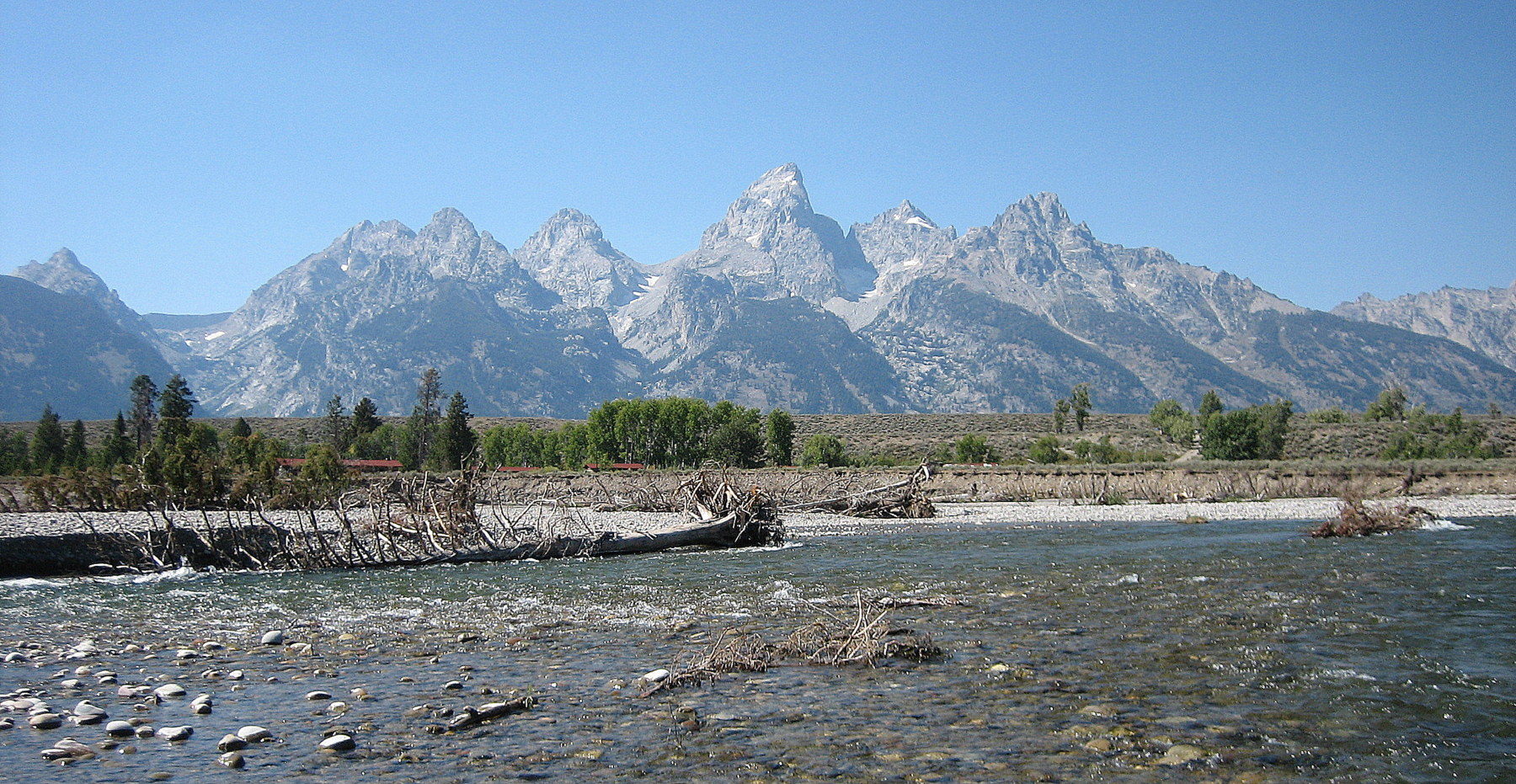
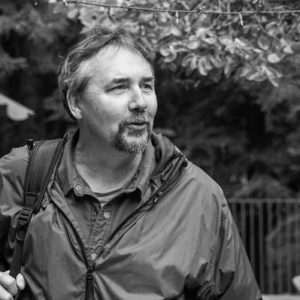
If you’re a regular Mountain & Prairie listener, then you are undoubtedly familiar with best-selling author David Gessner. He has written several of my all-favorite books, most notably All the Wild That Remains: Edward Abbey, Wallace Stegner, and the American West. He was also a past guest on this podcast almost exactly a year ago—a conversation that continues to receive excellent feedback and ranks as one of my most downloaded episodes. Between his writing, teaching, chairing the Creative Writing department at University of North Carolina Wilmington, and his role as a committed family man, David is a busy guy—so I greatly appreciate his sitting down to record a second episode.
We caught up during his annual trip to Colorado and covered a wide range of fascinating topics, all presented with his signature style of deeply considered insightfulness balanced with a hilarious sense of humor. We chatted about his ongoing work on his new book about public lands and Theodore Roosevelt, as well as a recent research trip in which he flew in a Cessna from Colorado to northwest Montana and many places in between. We discussed his thoughts on Theodore Roosevelt, and how his opinions of the man have evolved throughout this book project. David shares more insights into his writing process and how endurance and team sports have helped build his discipline and work ethic as an author. We spend a good amount of time discussing his book Ultimate Glory, digging into the mindset that allowed David to pursue the sport of Ultimate Frisbee—and writing—with laser-focused obsession. We finish up by chatting about some of the best books he’s read in the past year, as well as one relatively unknown author that everyone who loves the West should read.
This episode will obviously be of great interest to people who love the West, but I highly recommend it to anyone who is focused on a creative pursuit—writing, painting, poetry, sculpture, you name it. Thanks to his decades of daily grinding and obsession, David is a shining example of the discipline and commitment required to be a professional artist, and he’s damn good at explaining it in a way that really sinks in.
If you haven’t already, check out my first conversation with David as well—there’s a link in the episode notes. But right now, enjoy this enlightening and hilarious conversation with David Gessner.
Headshot courtesy of David Gessner, Banner photo by Ed
Click Here to Download on iTunes
—
Click Here to Download on Spotify
—
Click Here to Download on Google Play
—
Click Here to Download on Stitcher
—
Episode Notes
Topics Discussed:
- 4:00 – The importance of Boulder, Colorado in David’s life and work
- 9:00 – Endurance feats as a metaphor for writing
- 11:00 – Importance of having massive goals
- 12:45 – Importance of ambition
- 15:00 – Current book project and trip to the West
- 18:45 – Recent flight around the West
- 20:00 – Examining TR in a modern context
- 22:20 – Reluctance to become an activist
- 25:50 – Changing perspectives on TR
- 30:00 – Political cartooning
- 32:00 – David on taking feedback from editors and others
- 35:15 – Importance of constraints in writing and life
- 39:50 – Arête
- 42:15 – Finding camaraderie outside of team sports
- 46:50 – Teaching the writing mindset
- 50:50 – Best books David read this year
- 53:45 – Lesser known authors worth reading
Information Referenced:
- David Gessner
- David’s Part 1 Podcast
- All the Wild That Remains by David Gessner
- Ultimate Glory by David Gessner
- All of David’s books
- Oak Thorne
- Flagstaff Mountain
- Reg Saner
- Under the Devil’s Thumb by David Gessner
- Life Work by Donald Hall
- Walter Jackson Bate
- John Keats
- David’s article about Bears Ears
- Rick Bass
- American Prairie Reserve
- Auden Schendler episode
- Edmund Morris
- Nina de Gramont
- How to Change Your Mind by Michael Pollan
- The Overstory by Richard Powers
- Bernard DeVoto
- This Land by Christopher Ketcham
Enjoy this episode? Then you might like these as well:
- David Gessner – Voice of the West’s Past and Present
- Hampton Sides, Part 2 – How to Tell a Damn Good Story
- Sara Dant – A Deep Dive Into the History of the West
- Chris Dombrowski – Words, Water & the West
- Bryce Andrews – People, Predators, and the American West
Mike Phillips – Audacious Goals, Relentless Action
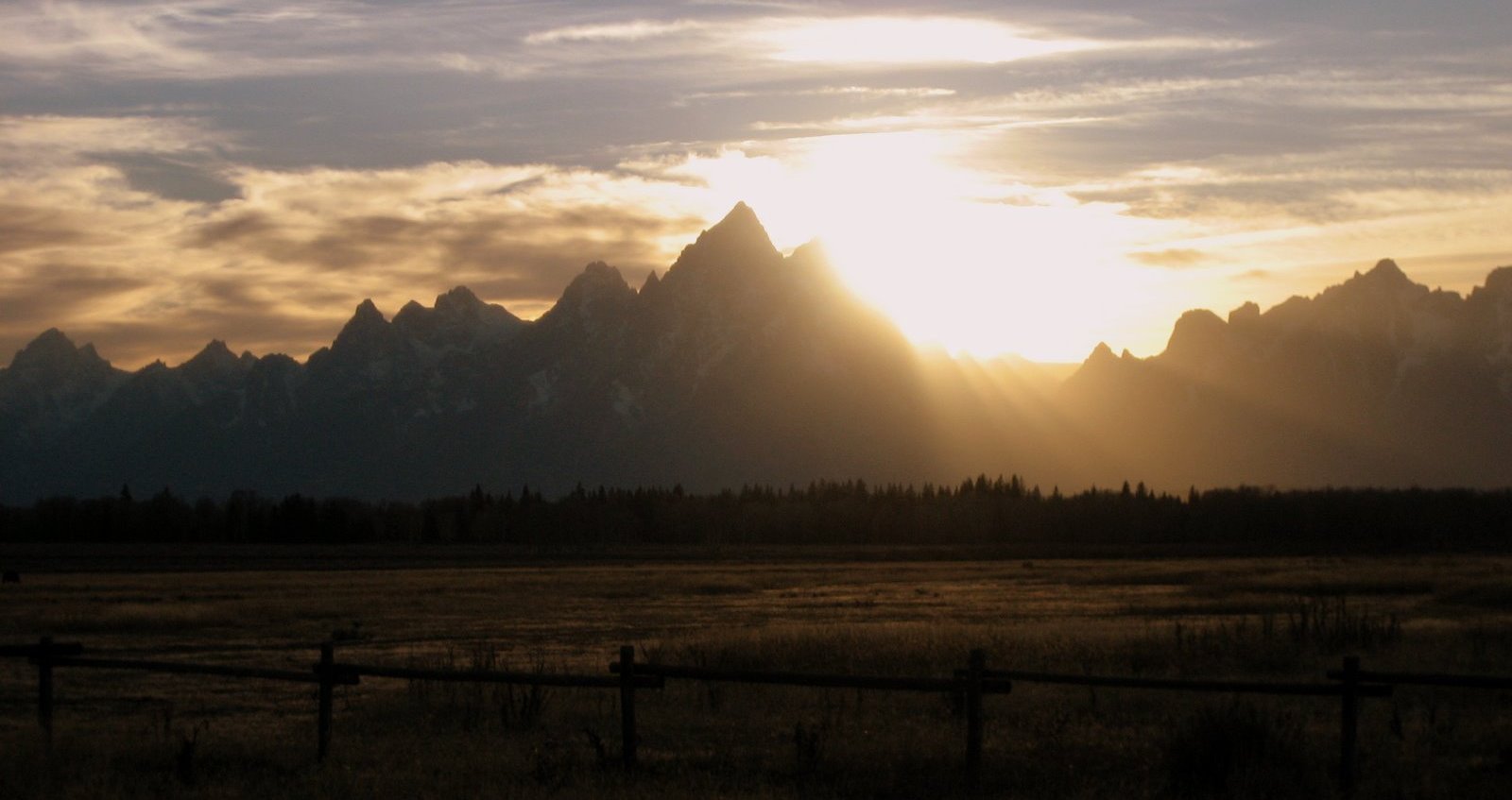
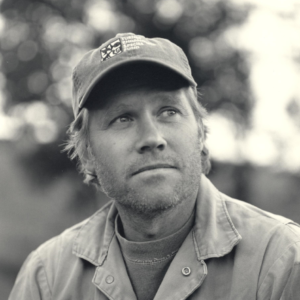
Mike Phillips is the Director of the Turner Endangered Species Fund (“TESF”), an organization that he co-founded in 1997 with Ted Turner. Mike is also a Montana state senator representing District 31, which encompasses parts of his hometown of Bozeman and the surrounding area. In his work as an ecologist, Mike has spent much of his career studying and implementing the reintroduction of wolves throughout the United States. And in both science and politics, he’s never shied away from taking vocal leadership roles involving a wide range of important issues in southwest Montana and beyond
Mike is very well known for his work with gray wolves in the Greater Yellowstone Ecosystem, and also for his efforts to reintroduce the species into western Colorado. But as you’ll hear in our conversation, wolves are just a small part of his work– his overarching interest is the persistence of many imperiled species, with a particular emphasis on private land’s role in the recovery efforts. Whether considering the fate of monarch butterflies, cutthroat trout, or gray wolves, Mike’s approach is the same– an action-oriented, science-backed strategy toward conserving biological diversity.
No matter where you stand on the issue of gray wolf reintroduction, I encourage you to give this conversation with Mike a very close listen. If you’re like me, you’ll be struck not only by his passion for ecology but by his deep reliance on non-emotional, quantitative scientific data. You’ll also notice his insatiable curiosity and his willingness to change his when presented with compelling new information. And finally, I think you’ll be impressed by his ability to discuss controversial topics such as wolves or politics in a respectful, considered tone that welcomes conversation and input from all sides of the issues
Headshot courtesy of Mike Phillips
Click Here to Download on iTunes
—
Click Here to Download on Spotify
—
Click Here to Download on Google Play
—
Click Here to Download on Stitcher
—
Episode Notes
Topics Discussed:
- 3:30 – Beginnings of the Turner Endangered Species Fund
- 9:30 – Mike’s background in ecology
- 14:00 – TESF success stories
- 17:30 – Wolf recovery in Colorado
- 24:30 – Mike addresses the counterarguments to wolf recovery
- 35:00 – Mike’s ability to not shy away from conflict—in ecology and politics
- 39:30 – Decision to enter into politics
- 43:30 – Importance of being mission and service oriented
- 44:30 – Lessons learned from baseball
- 47:30 – Importance of being able to “see around the next corner”
- 48:30 – Private land’s role in conservation
- 53:30 – Favorite books
- 56:00 – Favorite films
- 58:00 – Favorite location in the West
- 1:00:00 – Request of the listeners
Information Referenced:
- Turner Endangered Species Fund
- Ted Turner
- Bolson Tortoise
- TESF Gray Wolf work
- Rocky Mountain Wolf Project
- Endangered Species Act
- “Coyote Whacking” article
- Song of the Dodo by David Quammen
- The Sixth Extinction by Elizabeth Kolbert
- Report on the Lands of the Arid Region of the United States by John Wesley Powell
- The American West as Living Space by Wallace Stegner
- The Fog of War
Enjoy this episode? Then you might like these as well:
- Bryce Andrews – People, Predators, and the American West
- Melissa DiNino – Building a Unique Life in Big Sky Country
- Brian Calvert – In-Depth Journalism in the New West
- Dan Flores – Chronicling the West’s Rich Natural History
James Decker – Inspired Leadership for the New West


James Decker is a farmer, attorney, and the Mayor of Stamford, TX, a tight-knit agricultural community located about 45 minutes north of Abilene. James grew up in Stamford, left for college and law school, but immediately returned home to begin his career– his love of his hometown and desire to contribute to its success far outweighed any material success that could result from practicing law in a big city. With his service-oriented mindset and natural leadership abilities, James worked his way up from city council to Mayor, all while working as an attorney and growing his family.
Like so many devoted small-town mayors, James is driven by a deep desire to see his community thrive, despite the many forces that seem to be conspiring against small-town America. He approaches local politics with an inspiring amount of focus and determination, and he’s not afraid to seek out new ideas from a variety of sometimes-unexpected sources. His weekly essays are worth a read whether you live in Stamford or not– he explores subjects ranging from the nuts and bolts of economic development to the writings of Wendell Berry to quotations from Theodore Roosevelt.
James is a shining example of the positive impact that one passionate person can have when he or she decides to lead with enthusiasm, optimism, and old-fashioned hard work. We covered a lot in our conversation, starting with his upbringing in Stamford and some of the history of the town. We talk about how he chose to return to Stamford after law school, despite having plenty of other opportunities elsewhere. We discuss the challenges facing rural America and how he chooses to approach economic development with an aggressive, proactive posture. We also talk about his mentors and heroes, and how his love of history and biographies inform his leadership. We obviously talk a lot about Wendell Berry and Theodore Roosevelt, as well as his favorite books and our shared love of the greatest movie of all time, Road House.
The West is full of many small agricultural towns, and many of those communities share the same opportunities and challenges facing Stamford. I think you’ll be inspired by this episode, and be sure to check the notes for links to everything we discuss. Enjoy!
Photos courtesy of James Decker
Click Here to Download on iTunes
—
Click Here to Download on Spotify
—
Click Here to Download on Google Play
—
Click Here to Download on Stitcher
—
Episode Notes
Topics Discussed:
- 4:15 – How James describes his work
- 5:00 – Stamford, Texas described
- 7:00 – Family history
- 8:30 – Growing up in Stamford
- 9:30 – Choice to return to Stamford
- 15:30 – Local heroes and mentors
- 18:00 – What creates community pride?
- 22:30 – James’s weekly essays
- 26:00 – Decision to run for mayor
- 28:00 – Biggest surprise of being mayor
- 31:30 – Biggest challenge facing Stamford
- 35:30 – Economic opportunities in small towns
- 39:45 – Sources of inspirations, Wendell Berry and TR
- 45:15 – Seeking out different opinions
- 47:00 – National and local politics
- 51:45 – How kids have changed James’s perspective
- 57:00 – Importance of aggression
- 1:00:00 – Best Texas history books
- 1:02:30 – Favorite books
- 1:08:50 – Favorite films
- 11:11:30 – Hobbies away from work
- 1:13:30 – Favorite location in the West
- 1:15:30 – Best advice ever received
- 1:16:30 – Request of the listeners
- 1:18:00 – Connect with James
Information Referenced:
- James on Twitter, Instagram, and Facebook
- Stamford, Texas
- The Bullock Texas State History Museum
- Wendell Berry
- Theodore Roosevelt
- Citizenship in a Republic
- The Unsettling of America by Wendell Berry
- Jesse Womack podcast
- The Second Mountain by David Brooks
- Russ Schnitzer podcast
- Lone Star by TR Fehrenbach
- Lone Star Nation by HW Brands
- HW Brands
- HW Brands on Twitter
- Goodbye to a River by John Graves
- Empire of the Summer Moon by SC Gwynne
- Elmer Kelton
- The Time it Never Rained by Elmer Kelton
- Theodore Roosevelt Trilogy by Edmund Morris
ROAD HOUSE - Lonesome Dove
- Jim Howell podcast 1 and 2
Enjoy this episode? Then you might like these as well:
- Teal Blake – On Being Authentic & Original
- Jay Kleberg – True Dedication to Conservation, Adventure & Texas
- Jesse Womack – Land Stewardship is in His Blood
- Allison Ryan – Connecting People With Place
- John Dunaway – Life and Times of a Merchant Mariner
Logan Maxwell Hagege – Artistic Evolution
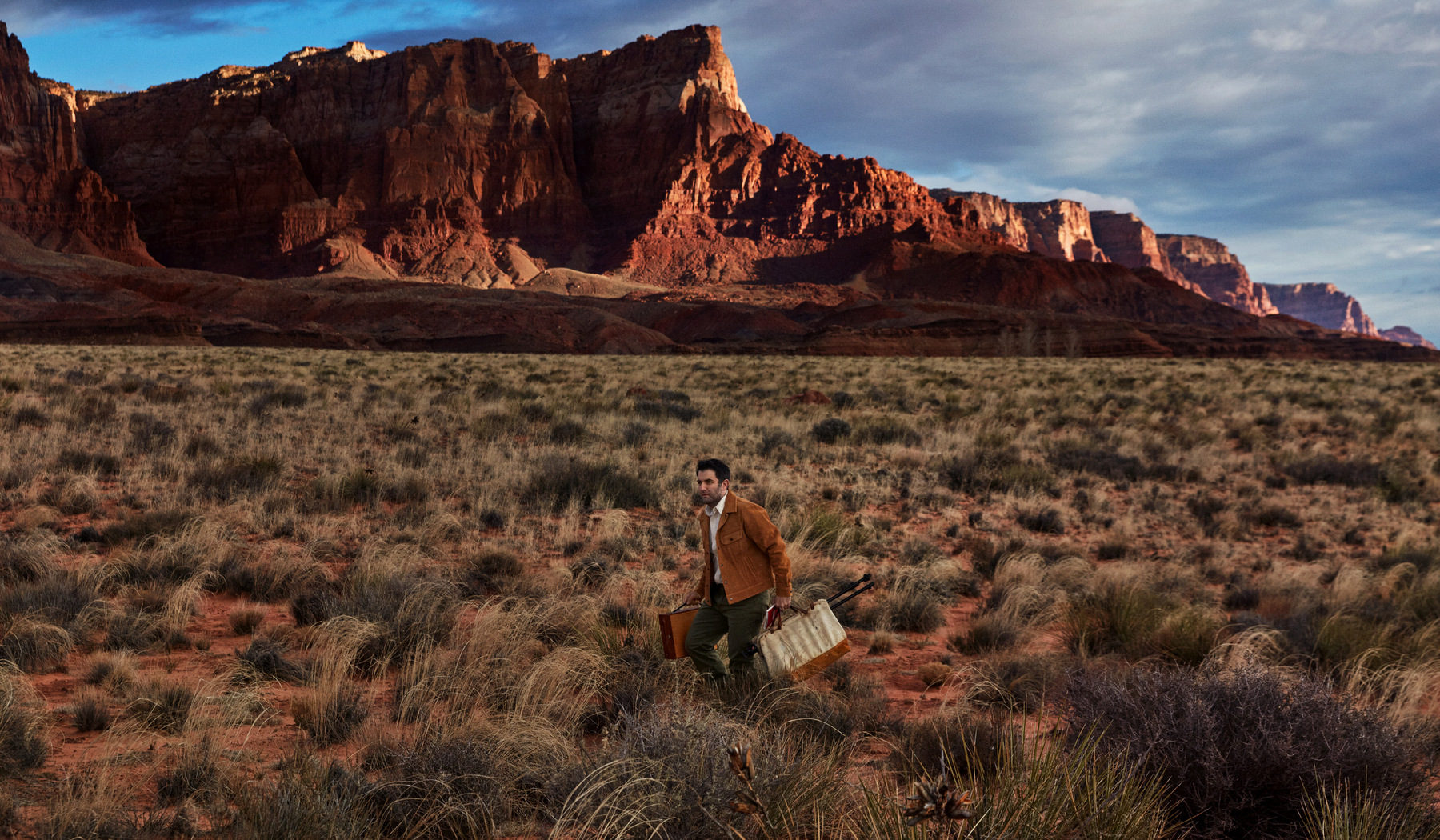
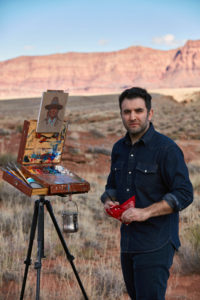
If you love the West and you love art, then you are likely already a fan of Logan Maxwell Hagege. He is a renowned painter whose depictions of the people and landscapes of the West have won him acclaim around the globe. His work is as stunning as it is unique, and when you see one of Logan’s pieces, there’s no doubt in anyone’s mind as to exactly who painted it. He uses bold colors and striking composition to create a style that is entirely his own– a style that continues to evolve, even after all of his success.
Logan was born and raised in California, and he has been an obsessive artist for as long as he can remember. Whether drawing, playing music, surfing, or painting, Logan has always gone “all in” on his creative pursuits. And as you’ll hear, Logan’s tendency towards obsession is fueled by a tireless work ethic and deep commitment to continuing to grow as an artist– he is always pushing himself and refuses to rest on his laurels. That’s not to say that Logan doesn’t suffer from artistic blocks from time to time. But when he does, rather than wallow, he’s developed hard-nosed, time-tested methods of summoning creativity and continuing to push forward.
I’ve been a fan of Logan’s for many years, so I was thrilled to get the opportunity to chat with him. We covered a lot, including his childhood creative obsessions and how his parents nurtured his artistic streak. We talk about his formal art education, and how he made the jump from art student to professional artist. Logan describes the evolution of his work, and how his early paintings are almost unrecognizable when compared to his current style. We chat about how he maintains focus after so many years of professional art, and he describes specific ways that he pushes himself to continue to evolve as an artist. He explains how he knows when a painting is finished, and how having a son has changed his routine and outlook. And as usual, we discuss favorite books, films, and the best advice he’s ever received.
There’s a ton of useful information in this episode so be sure to check the episode notes for links to everything. Enjoy!

Photos by Jason Frank Rothenberg for Best Made Co.
Click Here to Download on iTunes
—
Click Here to Download on Spotify
—
Click Here to Download on Google Play
—
Click Here to Download on Stitcher
—
Episode Notes
Topics Discussed:
- 4:00 – How Logan describes his work
- 6:30 – Logan’s childhood artistic endeavors
- 8:15 – Art education
- 10:00 – Transition from art school to professional artist
- 12:15 – Old work compared to new work
- 15:00 – Transition to a new style of painting
- 16:45 – Source of Logan’s independence
- 19:15 – Importance of work ethic
- 20:30 – How he keeps the artistic motivation alive
- 21:20 – When the southwest became a focus
- 23:15 – Logan’s daily creative schedule
- 25:00 – How parenthood affected Logan’s outlook
- 26:30 – Logan’s studio spaces
- 28:00 – The inspiration for Logan’s works
- 29:45 – How to know when a painting is done
- 32:00 – Thoughts on looking at others’ artwork
- 35:00 – What Logan listens to while painting
- 36:30 – The business of art
- 38:35 – Mentors and heroes
- 41:00 – Books on creativity
- 42:30 – Other non-art activities
- 46:30 – Favorite books
- 48:30 – Daily rituals and getting to work
- 51:00 – More favorite books
- 52:00 – Favorite films
- 54:30 – Most powerful outdoor experience
- 58:45 – Best advice ever received
- 1:03:30 – Request of the listeners
Information Referenced:
- Logan Maxwell Hagege
- Logan on Instagram and Facebook
- Joaquin Sorolla
- Dan McCaw
- Glenn Dean
- Maynard Dixon
- Georgia O’Keeffe
- Vincent Van Gogh
- Claude Monet
- Bob Dylan
- The Art Spirit by Robert Henri
- Hawthorne on Painting by Charles Hawthorne
- Desert Solitaire by Edward Abbey
- David McCullough
- Daily Rituals by Mason Curry
- Chuck Close
- The Wright Brothers by David McCullough
- Born Standing Up by Steve Martin
- Andrew Wyeth – PBS Documentary
- Snow Hill by Bo Bartlett
- Herb and Dorothy
- The Cool School
- Jeremy Lipking
- Josh Elliott
- Scott Burdick
Enjoy this episode? Then you might like these as well:
- Mark Maggiori – A Fresh View of the American West
- Teal Blake – On Being Authentic & Original
- Daniel Vergés – The Pursuit of Simplicity in Art & Life
- Duke Beardsley – Art in the Big, Bold American West
- AD Maddox – The Art of Trout and Fly Fishing
- Nicholas Coleman – Painting the Heritage and History of the American West
Mary Rondepierre – Melding Work, Play, and Purpose

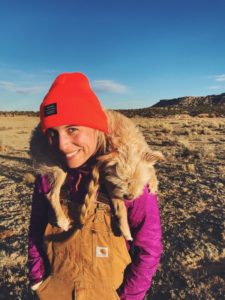
Mary Rondepierre is a fourth-generation Montanan, avid sportswoman, and a public lands advocate who has explored our nation’s wild places from coast to coast. She is also the Marketing and Experiences Manager at Filson, one of the most renowned and respected outdoor apparel brands anywhere. Currently based in Seattle, Mary has managed to combine her personal and professional passions into an exciting and rewarding career that melds together high-performance business with conservation and time in wide-open spaces.
As a child, Mary grew up in a household that respected the outdoors and valued rich experiences over accumulating endless amounts of “stuff.” Her father worked as a commercial fisherman and logger, wearing– you guessed it– Filson gear to his jobs in the often-brutal environments of Alaska and the West. Mary headed to Oregon State for college, and soon after graduation entered the apparel business, eventually landing at Filson. Since then, she’s worn many hats at the company and now works closely with Filson’s partnership with Backcountry Hunters and Anglers, helping to produce their “Campfire Stories” events around the country.
If you’re like me, love the outdoors, and own a ridiculously large stash of gear, odds are you’ve dreamed about working at a well-known outdoor apparel company. Mary’s career serves as an excellent case study for anyone interested in pursuing this path, and she reveals how she managed to land such a dream job. We talk about her education and early career, as well as her decision to work retail at Filson to “get her foot in the door.” We discuss the critical lessons she learned from working on the sales floor, and how those retail experiences inform and enhance her current role at Filson. We chat about an epic road trip she took with her husband in which they visited public lands from coast to coast, and we talk about how her upbringing in rural Montana instilled a deep love and respect of public lands. As usual, we discuss favorite books, places in the West, and the best advice she’s ever received. Enjoy!
Photos courtesy of Mary Rondepierre
Click Here to Download on iTunes
—
Click Here to Download on Spotify
—
Click Here to Download on Google Play
—
Click Here to Download on Stitcher
—
Episode Notes
Topics Discussed:
- 4:30 – How Mary describes her work
- 6:30 – History of Filson
- 9:40 – Holding high standards
- 11:45 – Outdoor apparel marketing
- 13:30 – Partnership with Backcountry Hunters and Anglers
- 18:10 – How Mary began working in outdoor apparel
- 19:00 – Mary’s dad’s secret camps!
- 20:00 – Family history in Montana
- 22:55 – Childhood outdoor adventures
- 24:00 – Decision to leave Montana
- 26:30 – First job out of college
- 28:30 – First job at Filson
- 30:10 – Experience working retail
- 33:30 – Filson’s “Unfailing Goods”
- 35:30 – Humility gained from retail
- 38:00 – Advice to recent college grads
- 41:00 – Thoughts on reading business books versus real-world experience
- 44:10 – Epic public lands roadtrip
- 49:30 – Proposal story!
- 42:00 – Lessons learned from the road trip
- 55:00 – Favorite spots in the PNW
- 59:30 – Awesome TR side conversation
- 1:01:45 – Mentors
- 1:04:30 – Favorite books
- 1:09:00 – Most powerful outdoor experience
- 1:12:45 – Favorite location in the West
- 1:13:30 – Best advice ever received
- 1:14:30 – Request of the listeners
- 1:16:00 – Connect with Mary
Information Referenced:
- Mary on Instagram
- Filson
- The Klondike Quest by Pierre Berton
- Backcountry Hunters and Anglers
- BHA-Filson Campfire Stories
- The Moth
- Bigfork, Montana
- Hoka shoes
- Jessica Lewis podcast
- Bryce Andrews podcast
- Down from the Mountain by Bryce Andrews
- Badluck Way by Bryce Andrews
- Jim Harrison
- Dalva by Jim Harrison
- A Good Day to Die by Jim Harrison
- Legends of the Fall by Jim Harrison
- This House of Sky by Ivan Doig
- Deep Creek by Pam Houston
- Cowboys Are My Weakness by Pam Houston
- Sarah Calhoun podcast
Enjoy this episode? Then you might like these as well:
- Melissa DiNino – Building a Unique Life in Big Sky Country
- Sarah Calhoun – Community Building Through Commerce
- Christine Su – The Business of Healthy Grasslands
- Connor Coleman – How to Build a Meaningful Life in the West
Bryce Andrews – People, Predators, and the American West
Bryce Andrews – People, Predators, and the American West
Bryce Andrews is a Montana-based rancher, conservationist, and author whose unique set of experiences gives him uncommon insights into the relationship between humans and carnivores in the West. Having worked as a ranch hand, ranch manager, and ranch owner, Bryce understands agriculture and the myriad of challenges faced by producers. As Field Director at the non-profit People and Carnivores, he has gained first-hand knowledge of the predicaments facing large predators in the Rockies. And as an author, he has researched and written extensively about all sides of the issue– most notably in his books Badluck Way and his new book Down from the Mountain, which was published earlier this week.
Bryce grew up in Seattle, far removed from ranching, farming, and the arid ruggedness of the Rocky Mountain West. But soon after college, he landed an entry-level job at the 20,000-acre Sun Ranch, located in Montana’s spectacular Upper Madison River Valley. On the Sun Ranch, Bryce received a trial-by-fire education in the sometimes-problematic relationship between agriculture and wild animals, a relationship he has spent much of his professional career exploring. The latest manifestation of this exploration is Down from the Mountain, an educational, entertaining, and sometimes-heartbreaking book that explores specific interactions between grizzly bears and farms in Montana’s Mission Valley. I was lucky enough to receive an advanced copy of this book and cannot recommend it enough.
If you are familiar with this podcast and the topics that I love to discuss, then you know that Bryce is a perfect guest. He’s smart, funny, insightful, and has a real gift for explaining complex, sometimes controversial topics in an engaging way. We talked a lot about Down from the Mountain, discussing grizzlies, farming, and the unique location and topography of the Mission Valley. We talk about Bryce’s upbringing in Seattle, and what drove him to explore the West after college. We discuss his work with People and Carnivores, and how his background in agriculture helps him to span the divide between his organization and the farming and ranching communities. Bryce also explains his writing and research process and offers some excellent advice for aspiring authors. And as usual, we spend a lot of time discussing books, authors, and his most powerful outdoor experience.
I encourage you to find a copy of Down from the Mountain and give it a read. You will not be disappointed!
Photos courtesy of Bryce Andrews and HMH Publishing
Click Here to Download on iTunes
—
Click Here to Download on Spotify
—
Click Here to Download on Google Play
—
Click Here to Download on Stitcher
—
Episode Notes
Topics Discussed:
- 4:00 – Bryce describes his work
- 5:20 – How Bryce started ranching
- 6:30 – First experiences ranching
- 7:20 – Heading to the Rockies after college
- 9:00 – Getting a hand-hold in ranching
- 10:30 – Culture shock of the West
- 13:50 – First encounter with carnivores
- 16:30 – Primal thrill of wildlife encounters
- 17:30 – Work with People and Carnivores
- 20:00 – Finding common ground in the carnivore controversies
- 25:00 – “Down from the Mountain”
- 29:00 – Mission Valley explained
- 34:00 – Similarities between humans and Grizzlies
- 37:30 – Unexpected tension of bears in a cornfield
- 41:20 – Bryce’s history as a writer
- 42:50 – Favorite/important writers
- 46:30 – Bryce’s relationship with writing
- 50:00 – Writing, the flow state, and fear
- 52:00 – Intense life events versus the boring “real world”
- 56:15 – Advice for aspiring writers
- 59:45 – Favorite books about the West
- 1:01:50 – Most powerful outdoor experience
- 1:03:30 – Request of the listeners
- 1:05:30 – Connect with Bryce
Information Referenced:
- Down from the Mountain: The Life and Death of a Grizzly Bear by Bryce Andrews
- Badluck Way: A Year on the Ragged Edge of the West by Bryce Andrews
- People and Carnivores
- Sun Ranch
- Madison River
- A Sand County Almanac by Aldo Leopold
- The Meadow by James Galvin
- David James Duncan
- Chris Dombrowski
- Chris Dombrowski podcast
- Coming Home to the Pleistocene by Paul Shepard
- Angle of Repose by Wallace Stegner
- Perma Red by Debra Magpie Earling
Enjoy this episode? Then you might like these as well:
- Chris Dombrowski – Words, Water & the West
- Dan Flores – Chronicling the West’s Rich Natural History
- Melissa DiNino – Building a Unique Life in Big Sky Country
Jessica Lewis – Doing More With Less
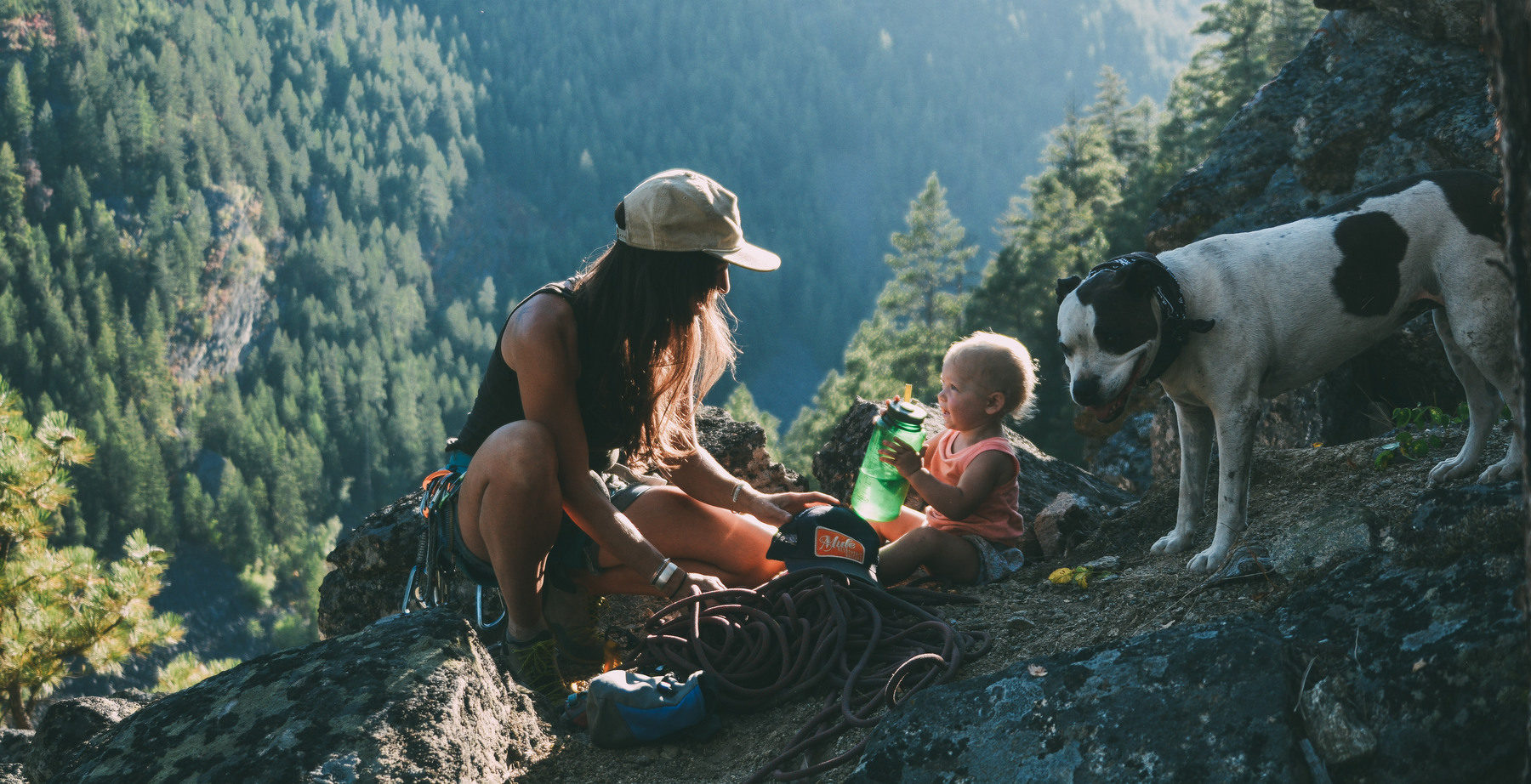
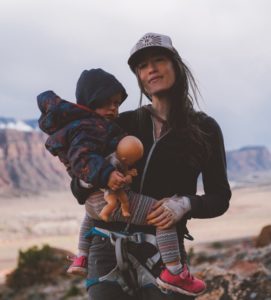
Jessica Lewis is a Montana-based metalsmith who is best known for the beautifully unique jewelry she creates for her online shop, Ruby and Revolver. She is also the mother of a two-year-old daughter, who she is raising with her husband in the home they constructed with their own hands in Montana’s Bitterroot Valley. Thanks to her tireless work ethic and disciplined creativity, Jessica has built an authentic and full life around the things she loves most– her family, her craft, and Western landscapes.
Montana’s rugged mountains and valleys have been a part of Jessica’s life for as long as she can remember, and even though she has traveled widely, she has always returned to Big Sky Country. The Rocky Mountain landscapes inform many aspects of her work, as does her ethic of “doing more with less.” By American standards, she and her family embrace a purposefully minimalist lifestyle which allows Jessica to focus on quality over quantity in both her professional and personal endeavors. In our world of constant connectivity and endless distraction, I’m truly inspired by Jessica’s genuine and mindful approach toward living a simple yet rich and meaningful life.
Jessica was kind enough to take a break from her numerous projects for this fun conversation about her life, creative process, and love of Montana. We chatted about how she got her start making jewelry and how the impending birth of her daughter inspired her to pursue art full time. We talked about how she began making jewelry with the simplest of tools, and how the desire for fancy equipment can distract from the act of making art. We talk a lot about parenthood, and Jessica explains how becoming a mother shifted her perspectives on work and life. We discuss our shared appreciation for Stoic philosophy, and how several specific books have impacted Jessica’s creativity. We talk about the importance of international travel and wisdom gained from spending time abroad. And as usual, we discuss favorite books about the West, the best advice she’s ever received, and several of her unexpected hobbies.
I really loved the conversation and know you will too. Thanks again to Jessica for taking the time to chat. Enjoy!
Photos courtesy of Jessica Lewis
Click Here to Download on iTunes
—
Click Here to Download on Spotify
—
Click Here to Download on Google Play
—
Click Here to Download on Stitcher
—
Episode Notes
Topics Discussed:
- 3:40 – How Jessica describes her work
- 5:00 – Jessica’s jewelry described
- 7:00 – Embracing the rawness of her work
- 8:50 – Materials used for her jewelry
- 10:30 – Why she was drawn to metalworking
- 12:15 – Starting out with simple tools
- 14:30 – Importance of her studio
- 17:00 – Making the leap into full-time art
- 19:45 – The bravery to pursue artistic dreams
- 22:50 – How kids change parents’ perspectives
- 23:45 – Creative mentors and influences
- 25:50 – Books that have influenced creativity
- 29:30 – Daily routines
- 30:55 – Importance of exercise
- 31:50 – Living in the Bitterroot Valley
- 32:45 – Growing up in Montana
- 35:30 – International travels*
- 36:45 – Lessons learned from international travel
- 39:00 – “Doing more with less”
- 42:00 – Ed’s weird story about accumulating junk
- 44:00 – More on parenthood and its effects
- 46:10 – Advice to new parents
- 48:30 – Current project of building a new house by hand
- 52:00 – Jessica’s healthy relationship with technology
- 57:15 – Advice to aspiring creatives
- 59:50 – Favorite books
- 1:03:25 – Favorite films
- 1:05:30 – Surprising activities
- 1:07:00 – Favorite location in the West
- 1:08:30 – Best advice received
- 1:10:30 – Request of the listeners
- 1:11:50 – Connect with Jessica online
- (*Quick correction – In our discussion around travel, we mistakenly mispoke about Maoist insurgency in Vietnam, which was incorrect. The insurgency was in Nepal, where Jess also worked in the women’s clinic. Apoloigies for any confusion!)
Information Referenced:
- Ruby and Revolver
- Jessica on Instagram
- Matt Eich – Instagram and Website
- The Obstacle is the Way by Ryan Holiday
- Stoic Philosophy
- The War of Art by Steven Pressfield
- Florence, MT
- Digital Minimalism by Cal Newport
- Deep Work by Cal Newport
- Screen Time App for iPhone
- Bury My Heart at Wounded Knee by Dee Brown
- Mountain & Prairie Book Club
- Meditations by Marcus Areilus
- Sapiens by Yuval Noah Harari
- The Daily Stoic by Ryan Holiday
- The Dawn Wall
- A River Runs Through It
- Bob Marshall Wilderness
- Frank Church Wilderness
- Bitterroots
- Sawtooths
Enjoy this episode? Then you might like these as well:
- Jillian Lukiwski – Art and Adventure in the American West
- Camrin Dengel – Slow Living in the American West
- Cate Havstad – Cultivating Creativity & Craftsmanship
Len Necefer – Indigenous Advocate
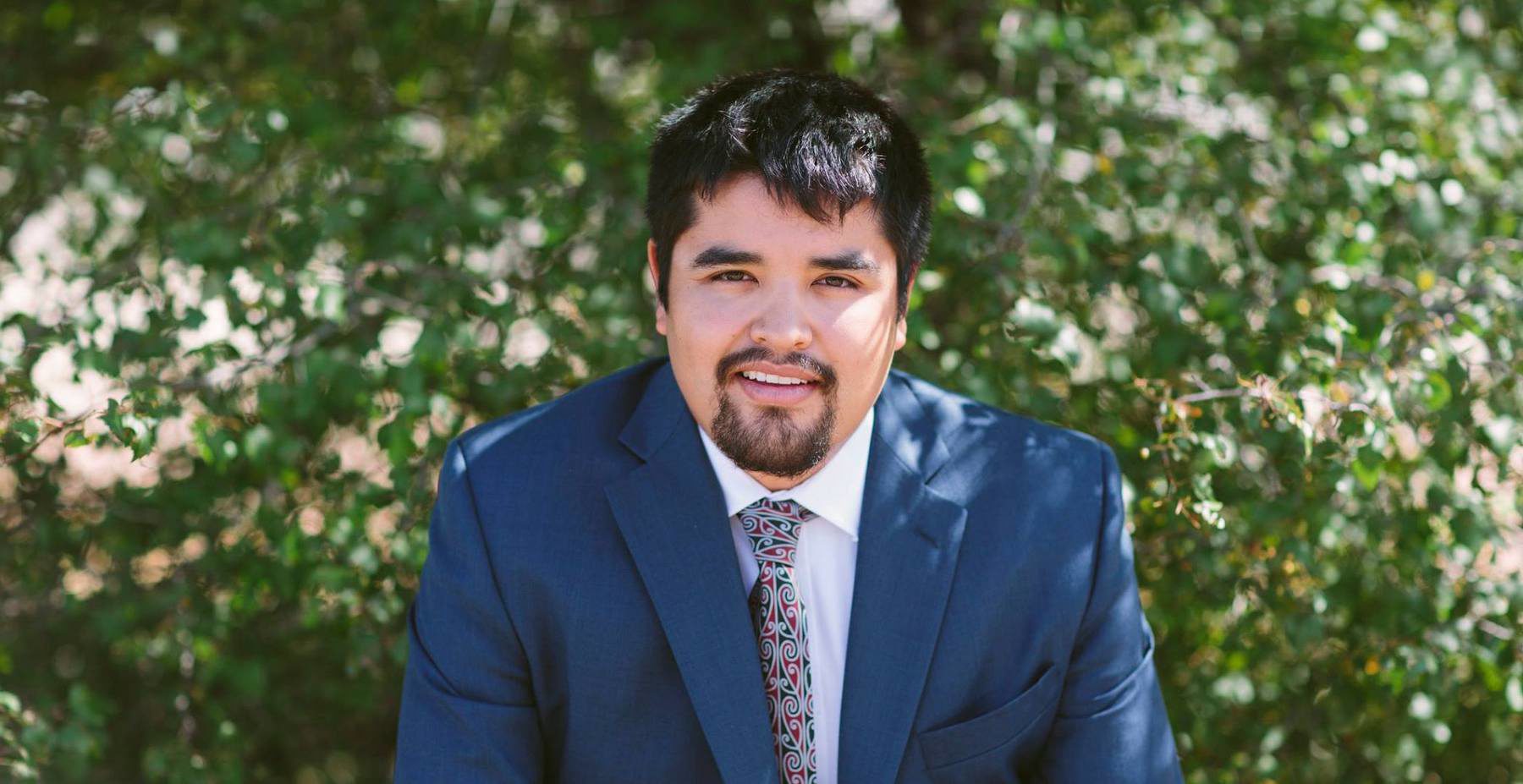
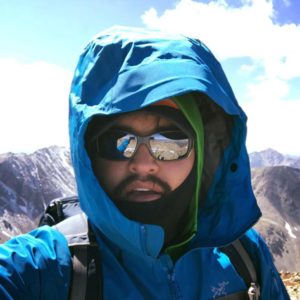
Len Necefer is a scholar, entrepreneur, and outdoor adventurer who is also a proud member of the Navajo Nation. Academically, Len holds a Ph.D. in engineering and public policy, and he is currently a professor of both Indian Studies and public policy at the University of Arizona. In business, he’s the CEO of NativesOutdoors, a cutting-edge outdoor apparel company that uses its platform to advocate for the cultural empowerment indigenous people. And to top it all off, Len is a committed mountaineer, backcountry skier, and rock climber, having ticked off countless impressive adventures throughout the West.
It is clear that Len has accomplished a lot personally, but what is even more impressive is the positive ripple effect his work is having on the outdoor industry. By melding his professional expertise, personal interests, and cultural heritage, he has become one of the leading voices advocating for Native American representation in outdoor recreation and conservation. His work and personal story have been featured in big-time publications such as Outside and Alpinist, and he’s recently delved into filmmaking with his newest film Welcome to Gwichyaa Zhee. As you’ll hear, Len has a unique ability to educate and inspire, and his message is striking a chord with a large, engaged audience.
As you’d expect from a guy as multifaceted as Len, he offers up a wealth of knowledge in our conversation. We talked about his Navajo heritage and discussed the unique history and culture of the Navajo tribe. We chatted about his recent film and discussed the of impact oil and gas development on Native populations in areas such as Bears Ears and the Arctic National Wildlife Refuge. We chatted about the need for mutual respect between the outdoor industry and indigenous groups, and Len explains two fascinating case studies around rock climbing on sacred Native lands. He gives an excellent overview of his company NativesOutdoors, and he explains why he chose to start a business instead of a non-profit. And as usual, we discuss favorite books, films, and the best advice he ever received.
Thanks so much to Len for carving out time to chat. I hope you enjoy this conversation as much as I did!
Photos courtesy of Len Necefer
Click Here to Download on iTunes
—
Click Here to Download on Spotify
—
Click Here to Download on Google Play
—
Click Here to Download on Stitcher
—
Episode Notes
Topics Discussed:
- 4:10 – How Len describes his work
- 6:15 – Len’s early years
- 7:00 – Navajo background
- 9:00 – History of the Navajo tribe
- 12:00 – Len’s new film: “Welcome to Gwichyaa Zhee”
- 16:15 – Oil and gas development’s impact on humans
- 19:40 – Historic native management of landscapes
- 22:15 – Preservation of people as new phase of conservation
- 27:15 – NativesOutdoors
- 33:00 – For-profit versus non-profit
- 34:00 – Native Americans and the outdoor industry
- 38:30 – Climbing Case Studies: Devil’s Tower versus Bears Ears
- 43:00 – How does he accomplish so much?
- 45:00 – Len’s work ethic
- 48:15 – Best books about Native American culture
- 50:45 – Favorite books about the West
- 52:00 – Favorite films
- 53:30 – Most powerful outdoor experience
- 56:15 – Favorite locations in the West
- 57:00 – Best advice ever received
- 58:30 – Request of the listeners
- 59:15 – Connect with Len
Information Referenced:
- Dr. Len Necefer
- Len on Instagram and Facebook
- NativesOutdoors
- Navajo
- Welcome to Gwichyaa Zhee
- Honnold Foundation
- Bears Ears
- Arctic National Wildlife Refuge
- Renan Ozturk
- Patagonia
- Alpinist article
- Brody Leven
- An Indigenous Peoples’ History of the United States by Roxanne Dunbar-Ortiz
- West of the Thirties by Edward T Hall
- The Firecracker Boys by Dan O’Neill
- Cormac McCarthy
- Hampton Sides Podcast 1
- Hampton Sides Podcast 2
- Blood and Thunder by Hampton Sides
- House of Rain by Craig Childs
- Free Solo
- Dawn Wall
Chris Dombrowski – Words, Water & the West
Chris Dombrowski – Words, Water & the West
Chris Dombrowski is an author, poet, and fishing guide who lives and works in Missoula, Montana. As a writer, Chris is probably best known for his book Body of Water: A Sage, a Seeker, and the World’s Most Elusive Fish, which is one of the best books I’ve read in years. He has also published several collections of poetry, and his newest volume titled Ragged Anthem will be released this week. When you merge Chris’s decades of experience in the outdoors with his phenomenal skills as a wordsmith and creative, the end product is some of the most engaging writing that any outdoor lover could ever hope to read.
Chris grew up in Michigan and was always drawn to fishing, hunting, and outdoor adventure. During high school, his favorite English teacher gave him a copy of A River Runs Through It—he devoured the book in a day and from that point forward he knew he wanted to be a professional writer living in the American West. Over the following years, he began fish guiding in Montana, attended graduate school in Missoula, and built a solid career as a working writer and poet. Along the way, he formed friendships with such notable western writers as Jim Harrison and David James Duncan, and he established his nonprofit writing workshop, the Beargrass Writing Retreat.
If you are interested in creativity, writing, or the writing process, then you will absolutely love this episode with Chris. We discuss that fateful day when he read A River Runs Through It and exactly how that moment changed his life. We discuss his work as a teacher and a guide, and how those skills inform his writing. We talk about his writing process and his writing studio, the importance of creating art with a disciplined, workman-like approach, and how he deals with any self-doubt that may come with publishing his work. We chat in depth about poetry, and Chris offers some great advice for poetry novices like me who want to better understand the art form. We talk about specific writers Chris particularly admires, including John McFee, James Galvin, Thomas McGuane, David James Duncan, Jim Harrison, and more. He offers a ton of great book recommendations, discusses his favorite rivers in Montana, and shares some excellent words of wisdom to people who love the West.
Thanks again to Chris for this fun conversation—I hope you enjoy it!
Photos courtesy of Chris Dombrowski
Click Here to Download on iTunes
—
Click Here to Download on Spotify
—
Click Here to Download on Google Play
—
Click Here to Download on Stitcher
—
Episode Notes
Topics Discussed:
- 3:00 – How Chris describes his work
- 6:30 – Story behind “Body of Water”
- 13:00 – How writing poetry helps his nonfiction work
- 17:00 – Structuring nonfiction like McPhee
- 19:00 – Experience teaching
- 21:00 – Reading seriously
- 23:15 – Teaching as a complement to writing
- 25:30 – Early experiences in Montana
- 27:00 – First big trip to the Rockies
- 27:30 – First time reading “A River Runs Through It”
- 29:00 – Importance of fishing
- 31:00 – Importance of passion in work
- 34:30 – Chris’s writing process
- 38:00 – Importance of having a writing studio
- 44:00 – Struggle of staying on task
- 48:30 – Dealing with self doubt
- 54:30 – How to read poetry
- 1:00:30 – Lessons learned from Jim Harrison
- 1:05:00 – Background on “Ragged Anthem”
- 1:08:30 – In depth conversation on podcasts
- 1:12:00 – Favorite books about the West
- 1:19:00 – Favorite rivers in the West
- 1:21:00 – Words of wisdom
- 1:25:15 – Connect with Chris
Information Referenced:
- Chris Dombrowski
- Chris on Instagram
- Body of Water by Chris Dombrowski
- Ragged Anthem by Chris Dombrowski
- Earth Again by Chris Dombrowski
- Beargrass Writers Retreat
- Chris on Meateater Podcast
- The Meadow by David Galvin
- David James Duncan
- Orion Magazine
- James Salter
- Draft No. 4 by John McPhee
- Wall Street Journal Body of Water Review
- Juanita Vero podcast
- A River Runs Through It by Norman Maclean
- Hampton Sides podcast
- David Gessner podcast
- War of Art by Steven Pressfield
- Gary Snyder
- Jim Harrison
- Tom McGuane
- Christian Wiman
- The Solace of Open Spaces by Gretel Ehrlich
- Indian Horse by Richard Wagamese
- Gallatin Canyon by Thomas McGuane
- Down from the Mountain by Bryce Andrews
Auden Schendler – The Optimistic Pragmatist

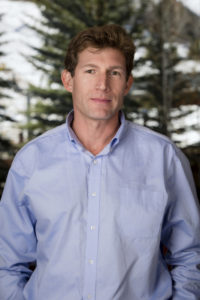
Auden Schendler is Senior Vice President of Sustainability at Aspen Skiing Company, where he focuses on finding large-scale solutions to climate change, specifically through clean energy and activism. Aspen Skiing Company has long been at the forefront of sustainable business practices, and Auden is one of the main forces behind the scenes driving those efforts—efforts that have positively influenced the ski and outdoor industries at large. In addition to his daily work in Aspen, he’s a well-known author and speaker, and he wrote the amazingly impactful book Getting Green Done: Hard Truths from the Front Lines of the Sustainability Revolution.
For a guy who spends his days deep in the trenches fighting the forces of climate change, Auden is surprisingly upbeat, energetic, and funny—as you’ll hear, we spend quite a bit of time laughing. But he’s far from naive or overly idealistic—he is quick to call out “greenwashing” when he sees it and is unapologetically focused on achieving specific, measurable results. Through trial and error and a lot of hard work, Auden has managed to find the balance of the optimism needed to pursue audacious initiatives with the pragmatism required to succeed in a competitive business environment.
From a personal perspective, Auden’s work and writing have been especially impactful on my career—I read his book a few months after earning my MBA, and it provided a much different perspective from the profit-at-all-costs philosophy that was the norm in business school. So it was obviously an honor to meet him, and I appreciate his letting me hassle him with questions for an hour.
We had
This is an excellent episode, and I can’t thank Auden enough for making time in his busy schedule to chat. Links to everything are in the episode notes. Enjoy!
Photos courtesy of Auden Schendler
Click Here to Download on iTunes
—
Click Here to Download on Spotify
—
Click Here to Download on Google Play
—
Click Here to Download on Stitcher
—
Episode Notes
Topics Discussed:
- 3:10 – How Auden began his career in sustainability
- 4:15 – Transition from theoretical sustainability to the business world
- 7:10 – Balancing patience with action
- 8:45 – Work as a practice
- 11:30 – Understanding the need for big challenges
- 12:45 – Mentors
- 16:00 – First visits to the West
- 17:30 – Republicans and the history of conservation
- 18:45 – On the Road’s influence on Auden
- 20:00 – Favorite failures
- 22:00 – Influence of Pat O’Donnell
- 24:30 – Publicly traded versus private companies
- 26:00 – Companies as political levels
- 29:00 – Dealing with climate change deniers
- 31:15 – Dealing with criticism
- 33:00 – Basalt fire and community
- 35:30 – Why does Auden choose to stay in the trenches?
- 37:15 – Auden’s daily routine
- 40:15 – How kids change his perspective
- 42:20 – Favorite books about the West
- 45:50 – Favorite films
- 47:50 – Most powerful outdoor experience
- 51:00 – Favorite location in the West
- 52:45 – Best advice he’s ever received
- 54:40 – Request of the podcast listeners
- 55:50 – Connect with Auden
Information Referenced:
- Aspen Skiing Company
- Rocky Mountain Institute
- Getting Green Done by Auden Schendler
- Life Work by Donald Hall
- Reinhold Niebur
- Cormac McCarthy
- JRR Tolkien
- Randy Udall
- Ed Marston
- High Country News
- Pete McBride podcast
- On the Road by Jack Kerouac
- Drilled podcast
- Auden’s fire aftermath story
- Tribe by Sebastian Junger
- Florence Williams
- The Road by Cormac McCarthy
- The Sheep Queen by Thomas Savage
- Crossing to Safety by Wallace Stegner
- David Gessner podcast
- My Antonia by Willa Cather
- Peter Heller
- Blade Runner
- Apocalypse Now
- Auden’s Facebook
Russ Schnitzer – A Life Devoted to Western Landscapes
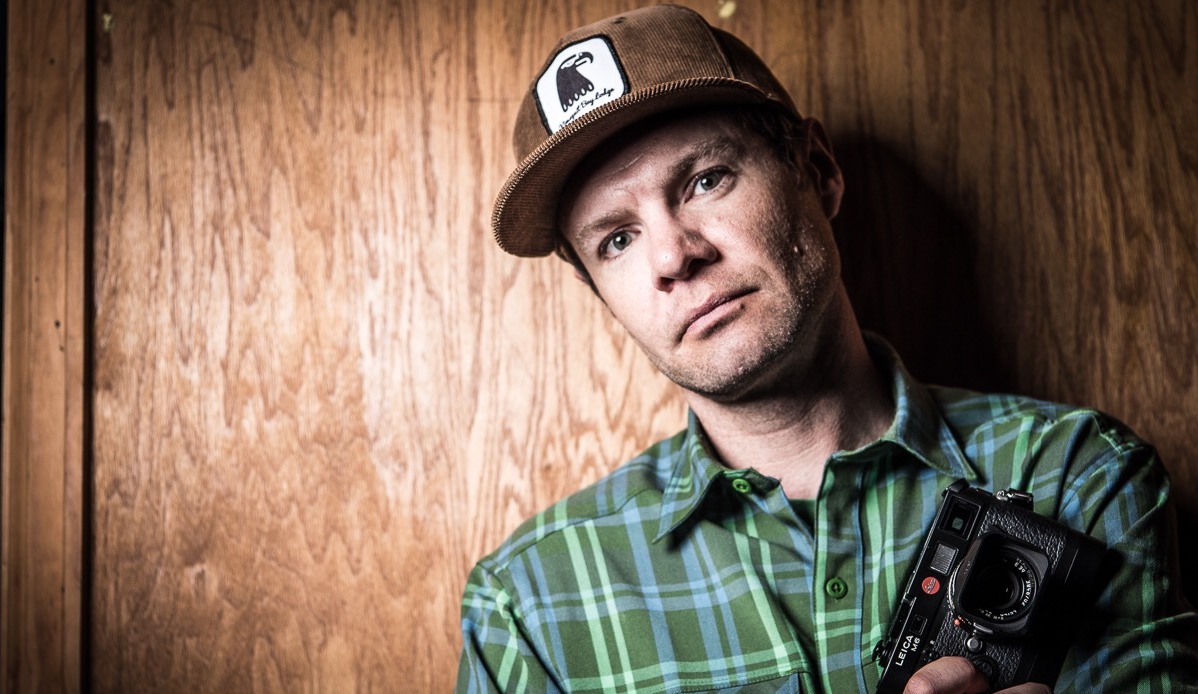
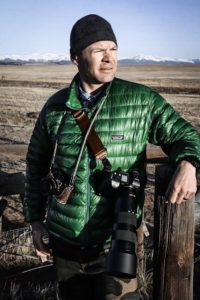
The virtual event planned with Russ has is being rescheduled for early-to-mid April. Check back soon for a specific date and time!!
Russ Schnitzer is a Colorado-based conservationist and professional photographer whose love for the landscapes and people of the American West shines through in all aspects of his life. Russ is the Senior Program Officer for Natural Resources at the Gates Family Foundation, one of Colorado’s most effective and generous conservation funders. As a photographer, he’s worked with some of the biggest names in the flyfishing world, including Patagonia, R.L Winston Rod Co., Orvis, The Drake Magazine, The Flyfish Journal, and more. And to top it all off, Russ is a former hotshot wildland firefighter and smokejumper, and, as you’d expect, he has some amazing stories from that period of his life.
Russ grew up in the midwest, but he headed to Idaho for college and has never looked back. During and after college, he fought fires throughout the West, and through that challenging, intense, dangerous work– and at least one devastating tragedy– he learned lessons that he still applies to his life today. Russ’s entire career has focused on protecting Western landscapes, and prior to the Gates Family Foundation, he worked for such notable organizations as Trout Unlimited and the Nature Conservancy. In his current role with Gates, he is laser-focused on finding community-driven conservation solutions for threatened landscapes, and during this episode, we go into great depths discussing his philosophies around effective conservation in the West.
Whether you’re interested in the nitty-gritty details of large-scale land conservation or lessons learned from a life of hardcore adventure, there’s something in this episode for you. Russ and I were on a tight schedule, but we still managed to cover a lot… and left plenty of room for a part two at some point in the future. We discuss the value of private land conservation in the West and the need for community buy-in and ownership for all conservation initiatives. We talk about the importance of agriculture from an ecological and economic standpoint, with some very specific examples from eastern Colorado. Russ also shares some stories from his time as a hotshot and smokejumper– the life-long bonds he formed with his teammates, the impact of these intense experiences on his life, and how he pushed through a terrible tragedy early in his firefighting career.
There is so much wisdom and valuable information in this episode, so listen closely and check the episode notes for links to everything. Thanks again to Russ for taking the time to chat. Hope you enjoy!
Photos courtesy of Russ Schnitzer
Click Here to Download on iTunes
—
Click Here to Download on Spotify
—
Click Here to Download on Google Play
—
Click Here to Download on Stitcher
—
Episode Notes
Topics Discussed:
- 3:55 – How Russ describes his work
- 5:10 – Background in photography
- 7:00 – Growing up in Minnesota
- 9:00 – Intersection of photography and conservation
- 11:00 – Importance of community in conservation
- 14:40 – Conservation in southeast Colorado
- 20:30 – Ecological diversity in southeast Colorado
- 21:30 – Importance of grazing for grassland health
- 27:00 – Favorite conservation books
- 29:00 – Importance of aggression in conservation
- 33:00 – Water in Colorado
- 38:20 – Greater Sage Grouse discussion
- 41:10 – Tips for those who want to get into conservation
- 47:30 – Career as a smokejumper and hotshot
- 55:00 – Hard work and teamwork in firefighting
- 56:40 – Enduring tragedy in firefighting
- 59:00 – Joining the smokejumpers
- 1:00:15 – Remembering life as a smokejumper
- 1:03:00 – Lessons learned from firefighting
- 1:08:00 – Importance of self awareness
- 1:12:00 – Connect with Russ online
Information Referenced:
- SchnitzerPHOTO
- Gates Family Foundation
- Southeast Colorado conservation example
- For the Love of Land by Jim Howell
- Jim Howell podcast 1 and 2
- A Sand County Almanac by Aldo Leopold
- Where the Water Goes by David Owen
- Greater Sage Grouse article
- Can’t Hurt Me by David Goggins
- Prineville Hotshots
Chandra Brown – Fostering Creativity Through River Adventures
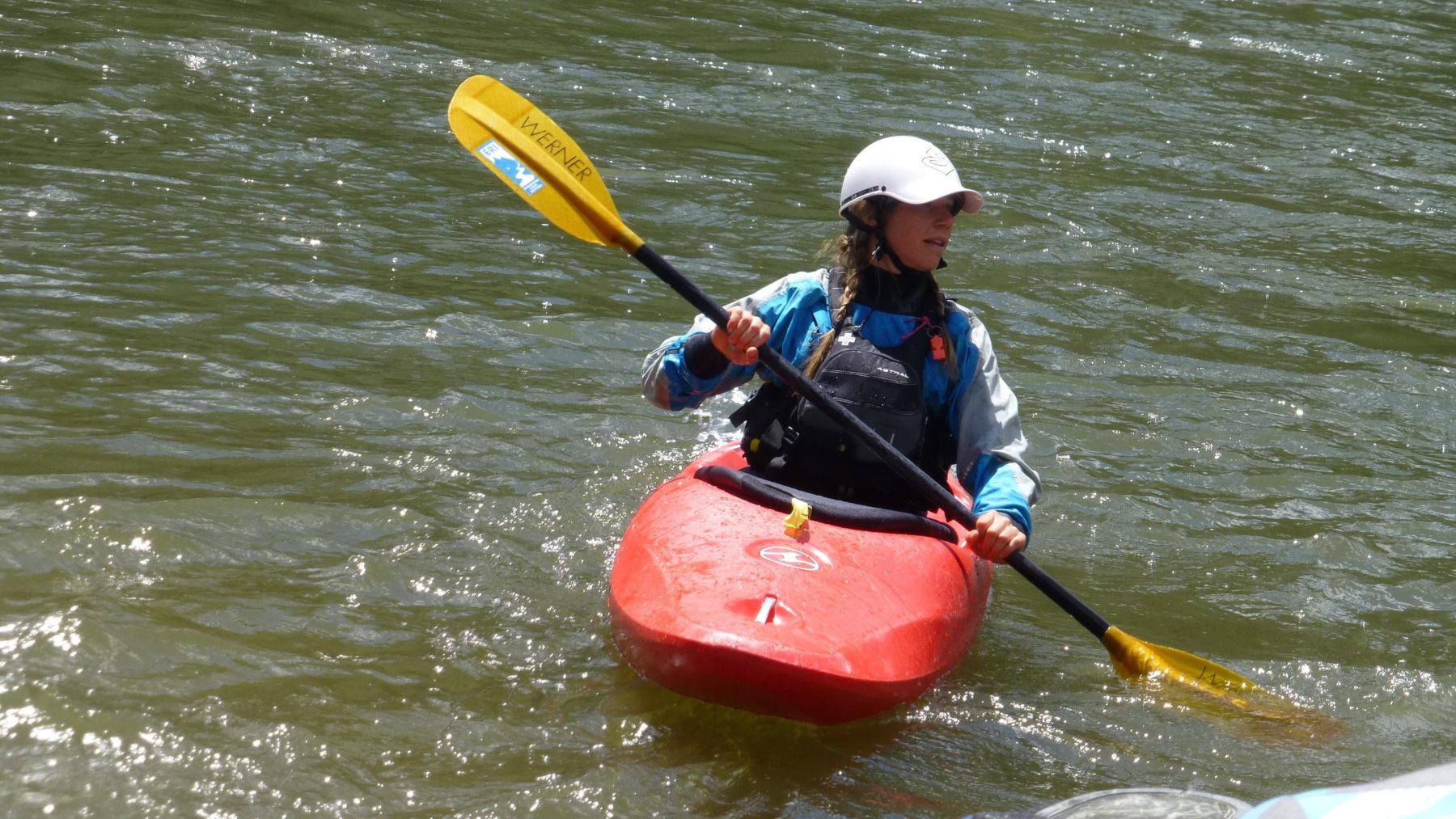
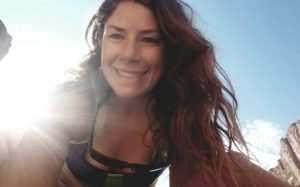
Chandra Brown is an educator, writer, and river guide who has worked on the West’s most iconic rivers, including many seasons below the rim of the Grand Canyon. She’s also the founder of the Freeflow Institute, a unique Montana-based program that offers multi-day river trips for writers and creatives that combine immersion in the natural world with instruction from some of the West’s most well-known, prolific outdoor writers. By combining creativity with adventure in some of the West’s most spectacular landscapes, Freeflow helps to “eliminate the barrier between artist and environment,” resulting in creative inspiration and an increased desire to preserve our wild places.
Growing up in Alaska, Chandra has always had close connections to the land and life in the outdoors. It was during a family trip to Montana during high school that she fell in love with rivers; since then, rivers have played a foundational role in both her personal and professional lives. She attended college in Bozeman, studied in Ecuador as a Fulbright Scholar, and spent extensive time on rivers in both places. Currently she burns the candle at both ends– teaching high school Spanish during the school year and guiding rivers in the summer, all while working as a freelance writer and building the Freeflow Institute from the ground up.
Thanks to her love of books, writing, adventure, and conservation, Chandra is a perfect guest for this podcast. We cover a lot in just over an hour, including the genesis of the idea for the Freeflow Institute and how she turned that idea into reality. We discuss some of the well-known writers who teach on Freeflow trips, including Hal Herring, Chris Dombrowski, and past podcast guests Alexis Bonogofsky and Brendan Leonard. We talk about lessons learned from her time in Ecuador, her creative process for writing, and her own writing heroes and mentors. We discuss conservation, adventure, and, of course, favorite books, films, and locations in the West.
Chandra is an amazing woman who is pursuing her passions with an inspiring amount of focus and determination, and she’s created something very special in the Freeflow Institute. Check out the episode notes for links to everything, including a short film below that gives an excellent overview of the project. Enjoy!
All photos courtesy of Chandra Brown
Click Here to Download on iTunes
—
Click Here to Download on Spotify
—
Click Here to Download on Google Play
—
Click Here to Download on Stitcher
—
Episode Notes
Topics Discussed:
- 3:40 – Chandra describes her work
- 5:00 – Freeflow Institute explained
- 7:00 – Taking Freeflow from idea to reality
- 9:15 – Hal Herring
- 11:30 – Importance of open-mindedness
- 14:00 – Wilderness breaking down barriers
- 17:40 – Growing up in Alaska
- 19:00 – Outdoor experiences as a kid
- 22:00 – Falling in love with rivers
- 23:30 – College in Montana
- 26:30 – Fulbright Scholar in Ecuador
- 28:00 – Lessons learned from international living
- 35:40 – Writing as a focus of her life
- 38:40 – Life in Missoula and teaching
- 40:50 – The Grand Canyon
- 42:40 – Lessons from guiding
- 44:15 – Talent versus hard work in writing
- 47:30 – Chandra’s writing routine
- 52:00 – Heroes and mentors
- 57:30 – Conservation challenges
- 1:02:30 – Favorite books
- 1:05:00 – Favorite films
- 1:06:00 – Hobbies
- 1:07:50 – Most powerful outdoor experience
- 1:10:30 – Favorite location in the West
- 1:11:15 – Best advice ever received
- 1:12:00 – Request of the listeners
- 1:13:10 – Connect with Freeflow online
Information Referenced:
- Chandra Brown
- Freeflow Institute
- Freeflow on Instagram and Facebook
- Willam deBuys
- Hal Herring
- Backcountry Hunters and Anglers Podcast
- Brendan Leonard episode
- Alexis Bonogofsky episode
- The Nature Fix by Florence Williams
- Montana State
- Fulbright Scholarship
- Make It Till You Make It by Brendan Leonard
- David James Duncan
- The River Why by David James Duncan
- Chris Dombrowski
- Body of Water by Chris Dombrowski
- Meateater Podcast with Chris Dombrowski
- Recovering a Lost River by Stephen Hawley
- Dammed to Extinction
- A River Lost by Blaine Harden
- Coming Into the Country by John McPhee
- Wade Davis
- One River by Wade Davis
- 100 Years of Solitude by Gabriel Marquez
- Baraka
- No Man’s Land
Jesse Womack – Land Stewardship is in His Blood
Jesse Womack – Land Stewardship is in His Blood
Jesse Womack wears many hats, but at his core, he is a rancher. He is the fifth generation to operate his family’s ranch near Victoria, Texas, a large-scale cattle operation that uses progressive land management techniques in a very unique landscape. Jesse also works closely with Texas Christian University’s Institute of Ranch Management, traveling far and wide to teach sustainable agricultural techniques to ranchers and farmers around the world. And on top of all of that, he is also a cofounder of Explore Ranches, alongside past podcast guests Jay Kleberg and Allison Ryan.
Responsible land stewardship is in Jesse’s DNA, and it is the foundation of all of his professional ventures. And as you’ll hear, he’s an open-minded, independent, and critical thinker who is able to speak eloquently on a wide array of sometimes-controversial issues surrounding agriculture. When you combine those traits with his rock-solid work ethic and focus, you will understand why he has been able to establish himself as such a leader in agriculture, both in Texas and abroad. Whether you’re deeply involved in agriculture or you’ve never set foot on a ranch, you’ll glean a great deal of value from Jesse’s perspective—his knowledge, passion, and worldly perspective are applicable for any type of endeavor.
Jesse and I went to high school together, and even after knowing him for more than 25 years, I still learned a lot from this conversation. We talk about his work with TCU, and he shares some success stories from his time teaching in Panama, Ghana, Nigeria, and Brazil. He explains the importance of community buy-in and how focusing on commonalities and shared goals can help overcome cultural divides. We talk about his family’s history in Texas, and how he is raising his two sons to love and respect the outdoors. Jesse give a few updates on Explore Ranches, and talks about some exciting events they will be hosting soon. We also chat about his involvement with the Texas Agricultural Land Trust, and how conservation easements can be a useful tool for ranchers in Texas and beyond. And as usual, we discuss favorite books and movies, and Jesse shares the best piece of advice he’s ever received, which I especially appreciated .
Thanks so much for listening, and I hope you enjoy this conversation with Jesse Womack!
All photos courtesy of Jesse Womack
Click Here to Download on iTunes
—
Click Here to Download on Spotify
—
Click Here to Download on Google Play
—
Click Here to Download on Stitcher
—
Episode Notes
Topics Discussed:
- 3:30 – Funny story about Jesse’s son
- 5:00 – How Jesse describes his work
- 6:30 – TCU Institute of Ranch Management explained
- 8:30 – Experience in Brazil
- 10:00 – Countries where Jesse works
- 12:45 – Adjusting to different landscapes and cultures
- 14:00 – Success stories from TCU
- 17:45 – Importance of community buy-in
- 20:15 – Challenges of ranching in Brazil
- 23:30 – Misconceptions of ranching by environmentalists
- 30:30 – The need to be open-minded and consider other viewpoints
- 34:30 – Climate change and ranching
- 38:00 – Jesse’s family history in Texas
- 41:30 – Jesse’s family’s commitment to conservation
- 44:30 – Pressure of multigenerational ranch ownership
- 46:00 – Jesse’s career
- 47:30 – Surprises of running a ranch
- 49:00 – Texas Agricultural Land Trust
- 42:30 – Easements as a tool for agricultural
- 55:30 – Updates on Explore Ranches
- 57:30 – Mentors and heroes in ranching
- 59:30 – Our shared experience at Woodberry Forest School
- 52:00 – Lessons learned at Woodberry
- 1:05:30 – Favorite books
- 1:08:15 – Favorite films
- 1:08:45 – Hobbies
- 1:09:30 – Most powerful outdoor experience
- 1:14:15 – Favorite location in the West
- 1:14:45 – Best advice ever recieved
- 1:16:45 – Connect with Jesse online
Information Referenced:
- TCU Institute of Ranch Management
- Explore Ranches
- Jay Kleberg podcast
- Allison Ryan podcast
- John Cain Carter
- Jeff Geider
- Jim Howell podcasts 1 and 2
- Texas Agricultural Land Trust
- Conservation easements
- Woodberry Forest School
- The Big Ranch Country by JW Williams
- The Far Horizons by Christopher Empson
- Narcos
Melissa DiNino – Building a Unique Life in Big Sky Country
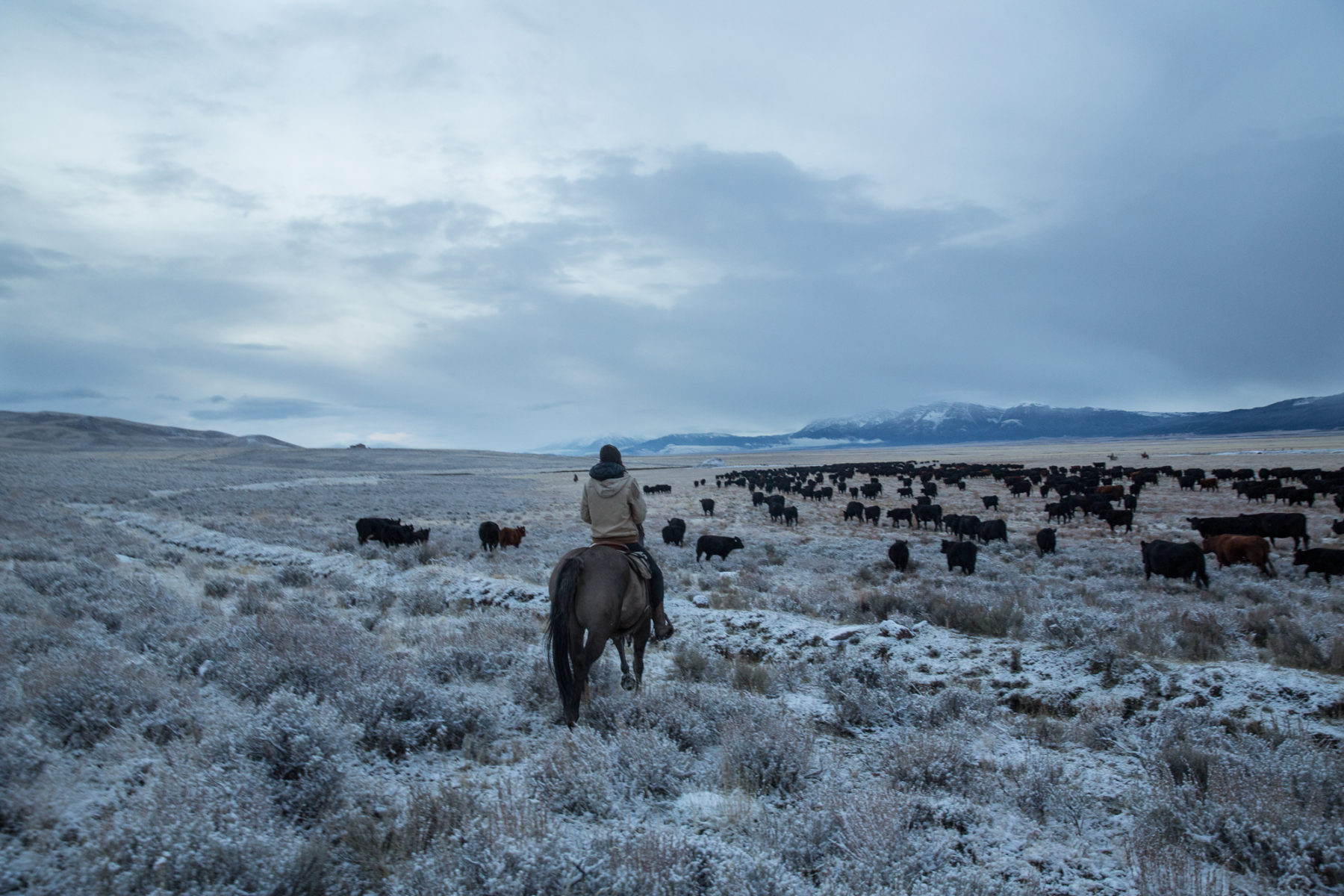
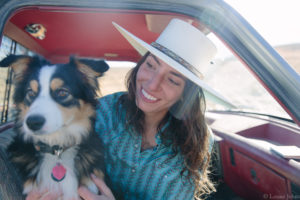
Melissa DiNino is a biologist, artist, and designer who currently lives and works in Montana’s legendary Tom Miner Basin. A native easterner, Melissa moved West soon after college to work as a range rider– a job that involves monitoring livestock on horseback in an effort to encourage the successful coexistence of livestock and apex predators in the Greater Yellowstone Ecosystem. In her role as a range rider, Melissa developed a deep appreciation for Montana’s spectacular landscapes, the challenging relationship between people and predators, and the importance of compassionate communication between all stakeholders.
Melissa grew up in Connecticut, and developed an early love of adventure and the outdoors while spending time at her family’s cabin in Maine. She’s also a committed athlete and played competitive basketball from age five through college. As you’ll hear, Melissa is humble and soft spoken, but she has a track record of pushing herself hard, both in academics and athletics, as well as in her present-day professional work and art. Although only in her mid-20s, Melissa is wise beyond her years and is committed to doing meaningful work in a place that she loves, surrounded by a supportive community… and she’s making it happen in an inspiring way.
I know regular listeners will really enjoy this conversation, but it will be especially valuable to anyone who is in the early stages of their career, looking to do work that is meaningful and fulfilling. Melissa and I discuss her path to Montana, as well as some of the challenges and funny mishaps of adjusting to life in the West. We talk about the realities of piecing together a variety of different jobs and artistic endeavors, while remaining focused on the big picture of doing work that matters. We chat about lessons learned from athletics, the value of being competitive with oneself, and importance of being willing to “put yourself out there” in creative pursuits. We also dig into some details around wolves, grizzlies, and the importance of civil discourse when discussing emotional subjects like wolves. And as usual, we talk about favorite books, films, and places in the West. Links to everything are in the episode notes.
Thanks so much for listening, and I hope you enjoy this conversation with Melissa DiNino!
All photos courtesy of Louise Johns
Click Here to Download on iTunes
—
Click Here to Download on Spotify
—
Click Here to Download on Google Play
—
Click Here to Download on Stitcher
—
Episode Notes
Topics Discussed:
Allison Ryan – Connecting People With Place
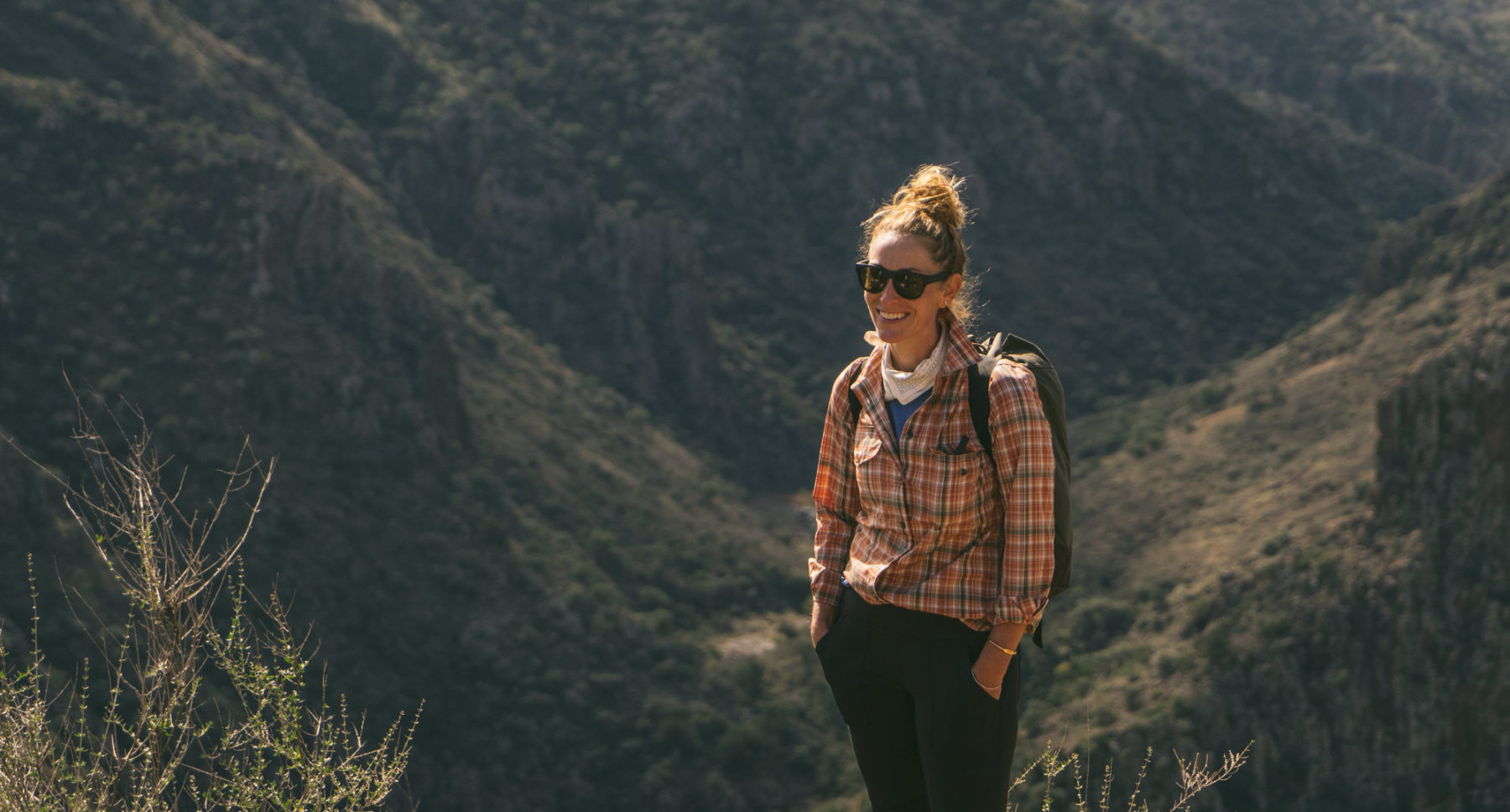
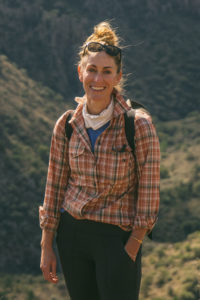
Allison Ryan is a West Texas native and co-founder of Explore Ranches, a company that connects its customers with spectacular private ranches throughout Texas and Colorado—some have described it as “AirBnB for ranches.” For those seeking a truly unique outdoor experience, Explore Ranches offers access to private land that has rarely, if ever, been visited by the public. And for the ranch owner, Explore Ranches creates an additional revenue stream to support the costs of land ownership, encourage conservation, and reduce the likelihood of subdividing large ranches due to financial strain. Given the lack of public land in Texas and the financial realities of owning large ranches, Explore Ranches offers a welcome solution for both landowners and adventure-loving non-landowners.
Allison grew up in El Paso, Texas, in a conservation-minded family that valued time in the outdoors and understood the importance of land stewardship. Between her childhood experiences at summer camp in West Texas, time spent on her family’s ranch, and a love of fitness and wellness, Allison has a deep understanding of the many benefits of recreating in open spaces. But Allison is also familiar with the financial commitments of land ownership, and she understands first hand the need to identify new revenue streams in order to make ranch ownership financially viable. In fact, her family’s ranch, known as the Withers, is available on Explore Ranches– it serves as an excellent case study that demonstrates the need that Explore Ranches fulfills for landowners.
If you listened to my recent interview with Allison’s co-founder Jay Kleberg, you may remember that we briefly discussed Explore Ranches. But in this conversation with Allison, we dig into the nitty-gritty details of the business—how the idea came about, descriptions of some of the available properties, and the challenges and opportunities arising from the small amount of private land in Texas. We discuss how Explore Ranches can be a useful tool for landowners, and why her family’s ranch was a prime candidate to partner with Explore Ranches. We talk about her childhood in West Texas, conservation lessons learned from her parents and grandparents, and some of her formative experiences in the outdoors. Allison also dives into her other career in the fitness world, and I veer the conversation completely off track by asking way too many questions about diet, exercise, and fasting—if you like any of my interviews with professional athletes, you’ll probably enjoy that part. And as usual, we discuss favorite books, films, and her most powerful outdoor experience.
Take a moment to visit Explore Ranches—there are links in the episode notes. And please enjoy this fun conversation with Allison Ryan.
All photos courtesy of Logan Lewis
Click Here to Download on iTunes
—
Click Here to Download on Spotify
—
Click Here to Download on Google Play
—
Click Here to Download on Stitcher
—
Episode Notes
Topics Discussed:
- Jay Kleberg interview
- Dan Flores trespassing article
- Dan Flores podcast
- The Withers
- Prude Ranch
- Hudspeth River Ranch
- Fed Up
- Jamie Oliver
- Intermittent Fasting
- Ben Masters interview
- Big Bend: A Homesteaders Story by JO Langford
- Manhunt by James Swanson
- Hellhound on His Trail by Hampton Sides
- Hampton Sides interviews 1 and 2
- Unbranded
Jay Kleberg – True Dedication to Conservation, Adventure & Texas
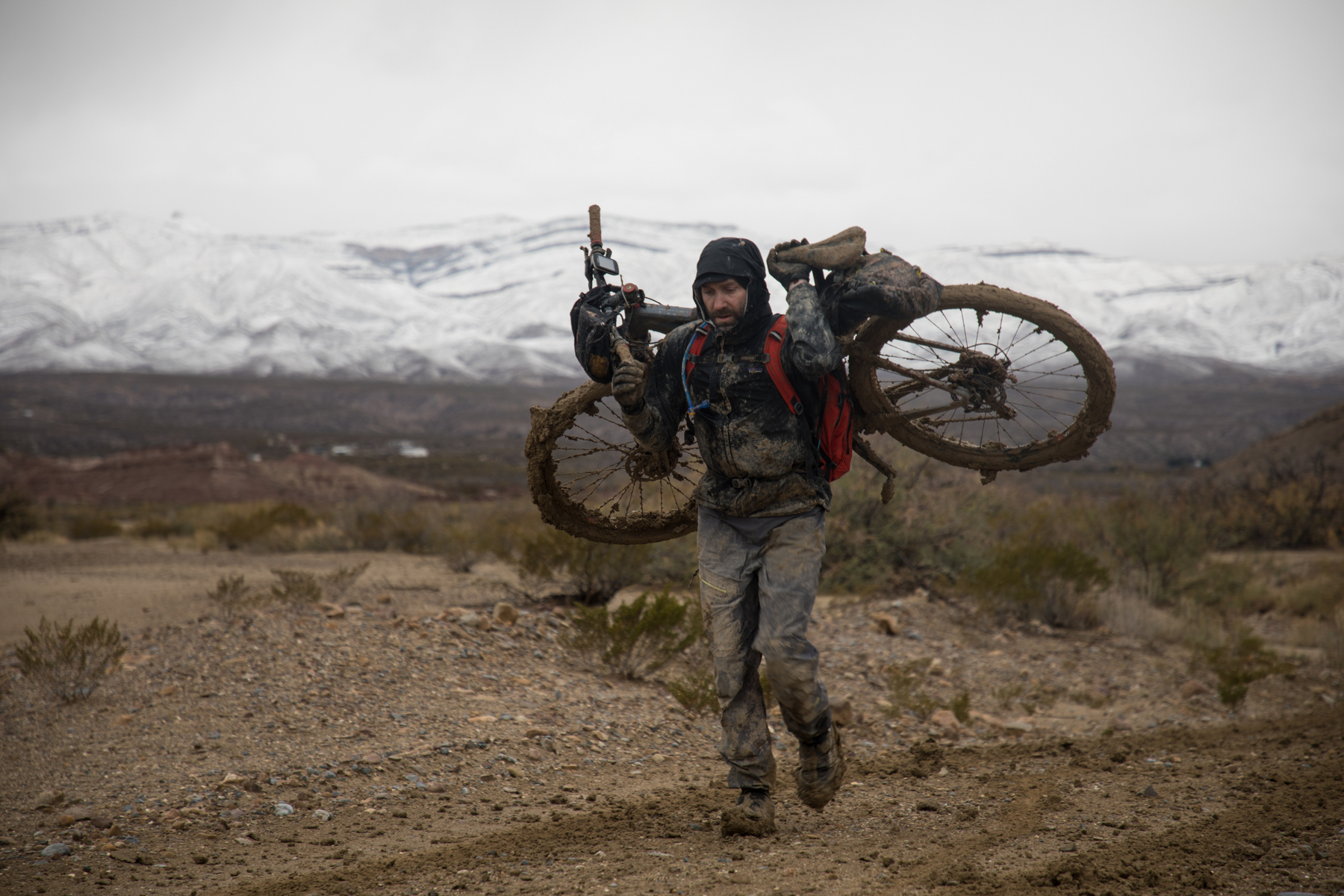
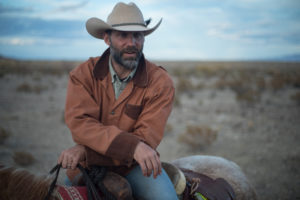
Jay Kleberg is a conservationist and Associate Director of the Texas Parks and Wildlife Foundation. He’s also the co-founder of Explore Ranches, a new company that connects outdoor enthusiasts to some of the most iconic private ranches in Texas and beyond. Jay has built his career and life around a deep respect for land and an inborn sense of responsibility to protect these landscapes, as well as the wildlife and heritage they support. As a sixth-generation Texan landowner, responsible land stewardship is in Jay’s blood, and as you’ll hear in our conversation, he’s laser-focused on leaving Texas an even better place than he found it.
Growing up on his family’s large-scale South Texas working ranch, Jay has been closely connected to the land for as long as he can remember. After high school and college on the east coast, Jay headed to Brazil for several years, where he worked with renowned conservationist John Cain Carter to protect the region’s threatened landscapes. It was in Brazil that Jay began to hone his personal conservation philosophy and had a number of crazy adventures along the way. After working a stint in for-profit real estate and earning his MBA, Jay decided to focus all of his professional energy on conservation in his home state.
Jay and I have been friends for over 25 years, so it was a real treat to connect with him on the podcast to discuss our shared passions for land conservation and adventure… we normally just re-tell hilarious stories from high school! As usual, we cover a lot– we discuss his upbringing on his family ranch and lessons learned from both his family and the larger ranch community. We talk about his time in Brazil, conservation challenges in South America, and one close call in a small airplane that could’ve been the end of Jay. We discuss Explore Ranches, his work with Texas Parks and Wildlife Foundation, his role in the upcoming film “The River and the Wall,” and other adventures throughout the West. We also discuss the importance of humility and honesty, benefits of having a for-profit mentality in the nonprofit world, favorite books, films, and more.
Be sure to check out the episode notes for a full list of topics discussed and links to everything… there’s a ton of great information here. I know you’ll enjoy this fun conversation with Jay Kleberg.
All photos courtesy of Ben Masters
—
Click Here to Download on iTunes
—
Click Here to Download on Spotify
—
Click Here to Download on Google Play
—
Click Here to Download on Stitcher
—
Episode Notes
Topics Discussed:
1:24:00 – Connect with Jay online
- Jay on Instagram and Facebook
- Explore Ranches
- Explore Ranches on Instagram and Facebook
- Explore Ranches team
- Texas Parks and Wildlife Foundation
- The River and the Wall
- The King Ranch
- Ben Masters podcast
- John Cain Carter
- The River of Doubt by Candice Millard
- Woodberry Forest School
- Empire of the Summer Moon by SC Gwynne
- Undaunted Courage by Stephen Ambrose
- The Nature Fix by Florence Williams
- The Dawn Wall
- Charged
- Becca Skinner podcast
- Teen Wolf
- Great Divide Mountain Bike Tour
Daniel Anderson – Finding Common Ground

Daniel Anderson is a Montana native and founder of The Common Ground Project, a nature-based retreat, hiking, and camping experience in which small groups of people from around the world share adventure, education, and conversation. Located on Daniel’s family ranch in the heart of Montana’s renowned Tom Miner Basin, The Common Ground Project seeks to strengthen connections between people, wildlife, and the stunning landscapes of the American West. As you’ll hear, Daniel and his family’s multi-generational commitment to community and holistic land stewardship make them the perfect people to pass along the wisdom they’ve gained from the land and from life in the Rockies.
To call Daniel’s personal story “fascinating” would be quite an understatement. Born in Missoula and raised in the Tom Miner Basin, Daniel attended boarding school on the east coast and graduated from college with a degree in engineering. But soon after beginning his professional career in California, doctors discovered two fist-sized, cancerous tumors in his body, one attached to his kidney and the other to his aorta. The cancer diagnosis, subsequent treatment, and return to health sharpened Daniel’s focus on the importance of helping and connecting with others, and also led him on a ten-year journey of rigorous personal spiritual work. The cumulative result of all of these intense life experiences was the creation of The Common Ground Project.
So, as you’ve probably gathered, Daniel is an interesting dude. We only covered a fraction of what I’d hoped to discuss, but I know you’ll enjoy the conversation. We discussed The Common Ground Project, the genesis of the idea, and the moment he decided to make the plan a reality. We also talked about lessons learned from his cancer experience and wisdom gleaned from his tight-knit family, including his grandfather who purchased their ranch in the 1950s after being a POW during World War II. We chatted about his family’s long-standing commitment to collaborative land stewardship in the Tom Miner Basin, and the challenges and opportunities of land ownership in the Greater Yellowstone Ecosystem. Finally, we discussed influential books, his most powerful outdoor experience, and the insights Daniel has gained from a decade of rigorous spiritual inquiry… with mentors that even include a Peruvian shaman.
I encourage you to check out The Common Ground Project online and if the mission speaks to you, consider donating to their Indiegogo campaign. Links to everything are in the episode notes. Thanks for listening, and I hope you enjoy this conversation with Daniel Anderson.
All photos courtesy of Louise Johns
Click Here to Download on iTunes
—
Click Here to Download on Overcast
—
Click Here to Download on Google Play
—
Click Here to Download on Stitcher
—
Episode Notes
Topics Discussed:
- The Common Ground Project
- Indigogo Campaign
- Daniel on Instagram
- The Common Ground Project on Instagram
- Louise Johns
- Tom Miner Basin Association
- Paradise Valley
- Good article about the Tom Miner Basin
- TCGP leadership team
- Greater Yellowstone Ecosystem
- Ismael by Daniel Quinn
- Last Child in the Woodsby Richard Louv
- Presence by Peter Senge et. al.
- Mountain & Prairie book list
- Becca Frucht
- Melissa DiNino
- Jaunita Vero interview
- Trails Plowed Underby Charles Russell
- Living in the Futures Past
- Road House (aka Greatest Movie of All Time)
- Dumb and Dumber
- Last of the Mohicans
- Avatar
- The Man from Snowy River
- Lonesome Dove
- The Dude and the Zen Master by Jeff Bridges
- Charles Post interview
- The Great Animal Orchestra by Bernie Krause
Alexis Bonogofsky – Taking a Stand for the West
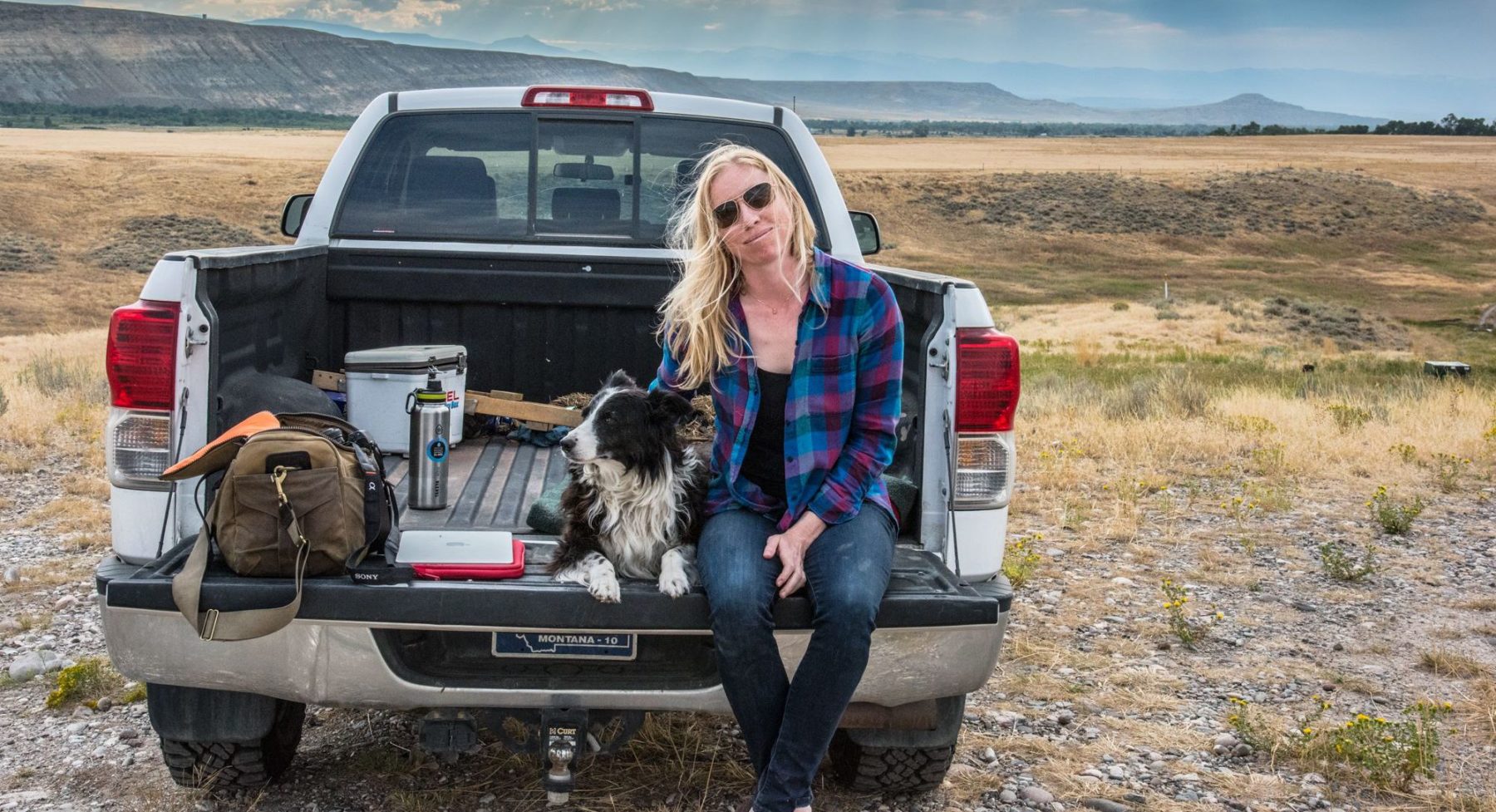
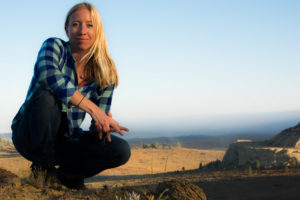
Alexis Bonogofsky is a rancher, conservationist, and community organizer who is fiercely committed to protecting the landscapes and communities of eastern Montana. While much of Alexis’s career has been devoted to environmental issues in the West, the 2011 Exxon oil spill in the Yellowstone River brought the fight to her doorstep—her family’s pastures were inundated with oil, threatening not only the local ecosystem, but the livelihoods of her family and community. Since that spill and the ensuing battle with Exxon, Alexis has become an outspoken advocate for ranchers, farmers, and rural Montana stakeholders. Through her writing, photography, and old-fashioned relationship-building, Alexis has become an invaluable force in bringing people together even in today’s divisive political climate.
Alexis grew up in eastern Montana as part of a tight-knit, hardworking, blue-collar family. Her parents engrained in her a rock-solid work ethic, a deep sense of responsibility, and a refusal to back down from bullies– characteristics that have served her well in her life and career. Alexis studied international development in undergrad and grad school, but decided that rather than taking her expertise to another country, she could apply those invaluable skills to her home of eastern Montana. As you’ll hear in our conversation, Alexis is humble and open-minded, but completely unwavering when it comes to standing up against individuals or companies that seek to take advantage of the less powerful.
I can’t overstate how much I enjoyed this conversation. Alexis is a shining example of the impact that one person can have if she’s willing to work hard, be humble, play the long game, and have the bravery to put herself out there. We cover a lot, including the Exxon oil spill and how it affected her life, work, and sense of responsibility. We talk about her time working with Native Americans as part of the Tribal Lands Partnership, and some of the wisdom gained from that job. She discusses the lessons learned from her parents and shares some thoughts on her father’s tragic death several years ago. We also delve into her writing process, hunting, public lands, goats, llamas, and our mutual contempt for bullies. And Alexis also offers a ton of book recommendations that have never been mentioned on the podcast before.
This is a seriously inspiring episode, so I’m very excited for you to listen. Be sure to check out Alexis’s blog East of Billings and follow her on social media. I have links to everything in the episode notes below. Enjoy!
Photos courtesy of Alexis Bonogofsky
Click Here to Download on iTunes
—
Click Here to Download on Overcast
—
Click Here to Download on Google Play
—
Click Here to Download on Stitcher
—
Episode Notes
Topics Discussed:
- East of Billings
- Alexis on Instagram
- Exxon oil spill in the Yellowstone
- Vanessa Braided Hair
- Wally McRae
- Gonzaga University
- University of Denver
- Albert Hirschman – Opinionated Opinions and Democracy
- The Public and Its Problems by John Dewey
- Bowling Alone by Robert Putnam
- Seeing Like a State by James Scott
- Wendell Berry
- Tribe by Sebastian Junger
- When the Ground Thaws by Alexis Bonogofsky
- On Common Ground public lands video
- Modern Huntsman
- Artemis Sportswomen
- The Mountain and the Fathers by Joe Wilkins
- West of 98 by Lynn Stegner
- Montana: An Uncommon Land by Ross Toole
- Three Day Road by Joseph Boyden
- Arctic National Wildlife Refuge
Sara Dant – A Deep Dive Into the History of the West
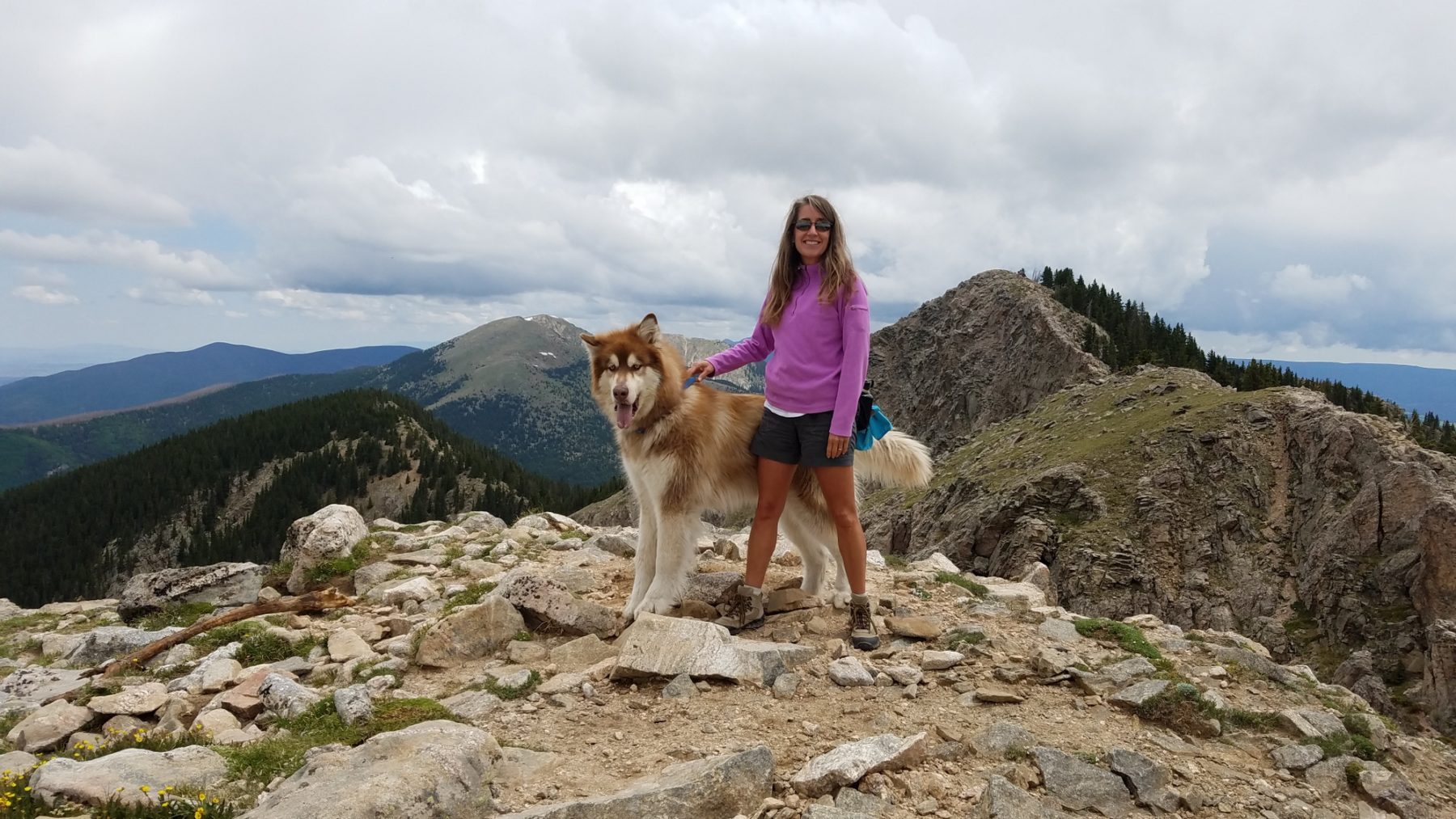
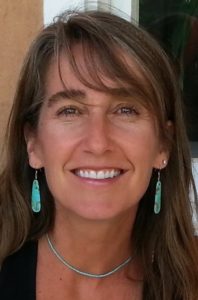
Sara Dant is a historian, professor, and chair of the history department at Weber State University. She’s also the author of one of my new favorite books: Losing Eden: An Environmental History of the American West. Sara’s work touches many of the topics we discuss regularly on this podcast, including conservation, water, public lands, building consensus around divisive issues, historical figures of the West, and much more. As you’ll hear in our conversation, Sara has a unique ability to explain complex and potentially dry topics regarding the American West in an engaging and easy-to-understand manner.
Whether you’re like me and have read dozens of books on the history of the West or simply have a general interest the subject, I think Losing Eden should be mandatory reading. It lays out the history of the region, starting with human migration into North America 15-30,000 years ago and ends in the present-day West with our scramble to find solutions to natural resource shortages and climate change. For me, the book connected many different time periods and concepts into one cohesive narrative, while simultaneously introducing me to new ideas and people, all in just under 200 pages.
Sara and I had a great conversation covering key concepts from her book, as well as her life as a historian, teacher, and life-long Westerner. We chat about the concept of the “tragedy of the commons,” conservation versus preservation, and the myth that the West was a sort of Garden of Eden prior to European settlement. We also dig into some of the key historical figures of the West, including Brigham Young, John Wesley Powell, Theodore Roosevelt, and John Muir. Most of you know that I’m weirdly obsessed with Teddy Roosevelt—I’ve got a life-sized cardboard cut-out of him in my office, for Pete’s sake!—so Sara gently offers a more “balanced” examination of his conservation legacy. We also discuss Sara’s upbringing in Arizona, love of trail running, favorite books, and much more. Be sure to visit the episode notes for links to everything we discuss, because there’s a lot.
And since many of you are members of the Mountain & Prairie Book Club, I wanted to let you know that Losing Eden will be the November/December selection. Sara has graciously offered to answer questions about the book or even participate in some sort of online discussion, so I’ll be sorting out those details in the coming weeks. In the meantime, start reading the book and visit the book club webpage for more information as it becomes available.
For now, please enjoy this fun and educational conversation with Sara Dant.
Photos courtesy of Sara Dant
Click Here to Download on iTunes
—
Click Here to Download on Overcast
—
Click Here to Download on Google Play
—
Click Here to Download on Stitcher
—
Episode Notes
Topics Discussed:
- Dr. Sara Dant
- Losing Eden: An Environmental History of the American West by Sara Dant
- Sara at the Aspen Institute: Discussion 1 & Discussion 2
- Oranges by John McPhee
- Tragedy of the commons
- Beyond the Hundredth Meridian by Wallace Stegner
- Wallace Stegner
- John Wesley Powell
- 100th Meridian
- Theodore Roosevelt
- John Muir
- Hampton Sides podcast
- Dan Flores podcast
- Changes in the Land by William Cronon
- Wallace Stegner Quote that Sara mentioned: From “Variation on a Theme by Crevecoeur”
- Where the Bluebird Sings to the Lemonade Springs by Wallace Stegner
- Cadillac Desert by Mark Reisner
- Blade Runner
- Avatar
- Grand Staircase Escalante
- Hal Rothman
Hampton Sides, Part 2 – How to Tell a Damn Good Story
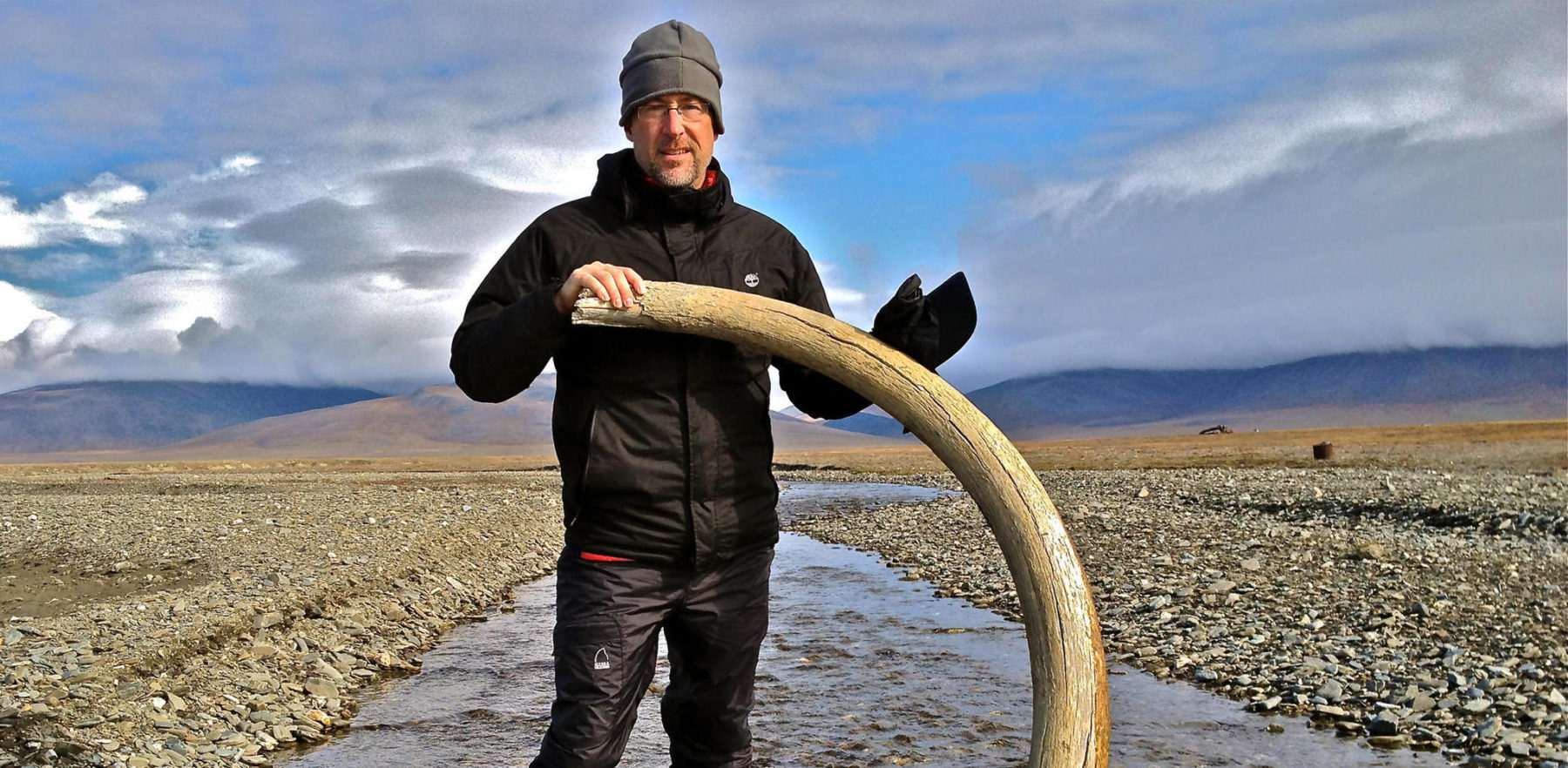
Hampton Sides, Part 2 – How to Tell a Damn Good Story
Anyone who has listened to this podcast surely knows of best-selling author and narrative historian Hampton Sides. I reference his books often and was lucky enough to interview him in August at the Aspen Institute, which I released as a podcast episode. In that conversation, we discussed the history of the 19th-Century American West, and many of you kindly reached out to let me know how much you enjoyed learning from Hampton. So I was thrilled—and I think you will be too—when Hampton generously stopped through Colorado Springs last week in the midst of a busy tour for his amazing new book, On Desperate Ground: The Marines at the Reservoir, the Korean War’s Greatest Battle.
As you’d expect, we had a fun conversation that expanded upon our first interview—we dig into his childhood in Memphis, Tennessee, and discuss his life-long desire to be a writer. We talk about his early years in journalism, and how his experiences writing and editing have contributed to his success as an author. We also chat about his years at “Outside”magazine and some of the realities of being a freelance journalist and author. Additionally, he shares some of the ins and outs of his writing process, including the struggle of cranking out a first draft, a process he describes as spending time in the “pain cave.” We also discuss the Grand Canyon, Wallace Stegner’s writing, and much more.
Finally, we spend some time talking about On Desperate Ground, which I can’t recommend enough. I knew next to nothing about the Korean War, but as usual, Hampton’s writing was simultaneously educational and entertaining, allowing me to learn a lot while thoroughly enjoying the process. You don’t have to be a military history buff to enjoy this book—his exploration of characters’ personalities, motivations, and egos makes for an engaging story that will appeal to anyone who is fascinated by interesting people. And being a weird guy who loves climbing big, absurdly cold mountains, I especially enjoyed our discussion of North Korea’s brutal winters and how sub-zero temperatures were one of the deadliest forces in this battle.
Thanks again to Hampton for making time to meet up during such a busy book tour. Be sure to check the episode notes for links to all the authors and books we discuss, as we cover a lot. This was a fun conversation, and I know you’ll enjoy it.
Header photo by SERGEY GORSHKOV, headshot by KURT MARKUS.
Click Here to Download on iTunes
—
Click Here to Download on Overcast
—
Click Here to Download on Google Play
—
Click Here to Download on Stitcher
—
Episode Notes
Topics Discussed:
- Hampton Sides
- Hampton’s Facebook page
- On Desperate Ground by Hampton Sides
- Washington Post review of On Desperate Ground
- All of Hampton’s Books
- David Grann
- Candice Millard
- Laura Hillenbrand
- Nathaniel Philbrick
- David McCullough
- Shelby Foote
- Steven King
- John Grisham
- Outside
- Tim Cahill
- David Quammen
- Jon Krakauer
- Sebastian Junger
- Ghost Soldiers by Hampton Sides
- Draft No. 4 by John McPhee
- General Douglas MacArthur
- Mao Zedong
- Cadillac Desert by Marc Reisner
- Beyond the Hundredth Meridian by Wallace Stegner
- Wallace Stegner books
- All the King’s Men by Robert Warren Penn
- Ken Burns – The Civil War
- Ken Burns – The Roosevelts
- The Grand Canyon by Pete McBride (foreword by Hampton)
Erik Petersen – Stories of Public Lands & the People Who Love Them

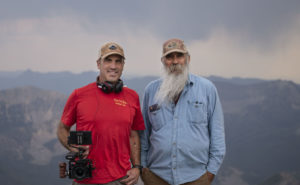
Erik Petersen is a Montana-based photographer, filmmaker, and photojournalist whose work showcases the American West and the many ways we enjoy our wide open spaces. His most recent film, A Few Steps Further, explores the commonalities between backcountry hunting and mountain endurance sports, while highlighting the spectacular wild landscapes that make these activities possible. Historically, hunters and adventure sports enthusiasts have not always seen eye to eye, but through his film, Erik demonstrates that the two groups have much more in common than not, most notably a love for public lands, pushing one’s physical limits, and hardcore adventure.
Growing up in Minnesota, Erik was an avid hunter and outdoorsman– but with a lifelong love for Montana, he moved West the day that he graduated from college. He worked for over ten years as a newspaper photographer throughout Montana, honing his craft and learning to produce high-quality work under the pressure and deadlines of traditional print media. Eventually Erik transitioned into freelance photography, taking some initial assignments that included trips to war-torn Afghanistan and the surrounding region. Today, much of his work centers around the landscapes of the American West, and his photographs and films highlight many of the values that we celebrate time and again on this podcast—conservation, public lands, adventure sports, and interesting people who love the West.
Erik and I caught up on the day that A Few Steps Further was released to the public, so I’ve embedded it in the episode notes—be sure to check it out, you’ll love it. In addition to that film, we talk about some of his other creative work, including a film he’s currently making that explores the threat of a goldmine near Yellowstone National Park and the promising bipartisan coalition that has emerged to fight the threat. We also cover the lessons he learned from his years in photojournalism, and how he manages to balance his roles as a husband and father of two boys while running his own creative business and pursuing adventure sports such as hunting and ultra running. We also discuss his creative mentors and heroes and his favorite books and films, plus he gives some good advice on how to take better landscape photos.
Visit the episode notes for links to everything, and enjoy this fun conversation with Erik Petersen.
A Few Steps Further from Erik Petersen on Vimeo.
All photos courtesy of Erik Petersen.
Click Here to Download on iTunes
—
Click Here to Download on Google Play
—
Click Here to Download on Stitcher
—
Episode Notes
Topics Discussed:
- Erik Petersen
- Erik on Instagram
- Erik on Vimeo
- A Few Steps Further
- Hardrock 100
- Jim Howell podcast
- Short Nights of the Shadow Catcher by Timothy Egan
- Patagonia media grant
- Gianforte body slamming reporter
- Jim Harrison
- The Road Home by Jim Harrison
- Legends of the Fall by Jim Harrison
- The House of Sky by Ivan Doig
- Sarah Calhoun podcast
- Red Gold
- Ben Knight
- Camp 4 Collective
- Harry Potter books
- Crazy Mountains
